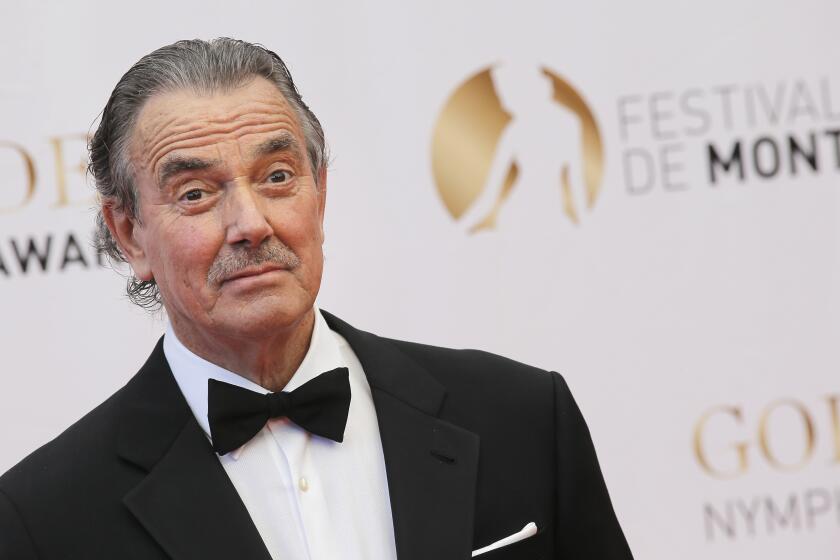Review: ‘Trudy and Max in Love’s’ amorous, adulterous journey
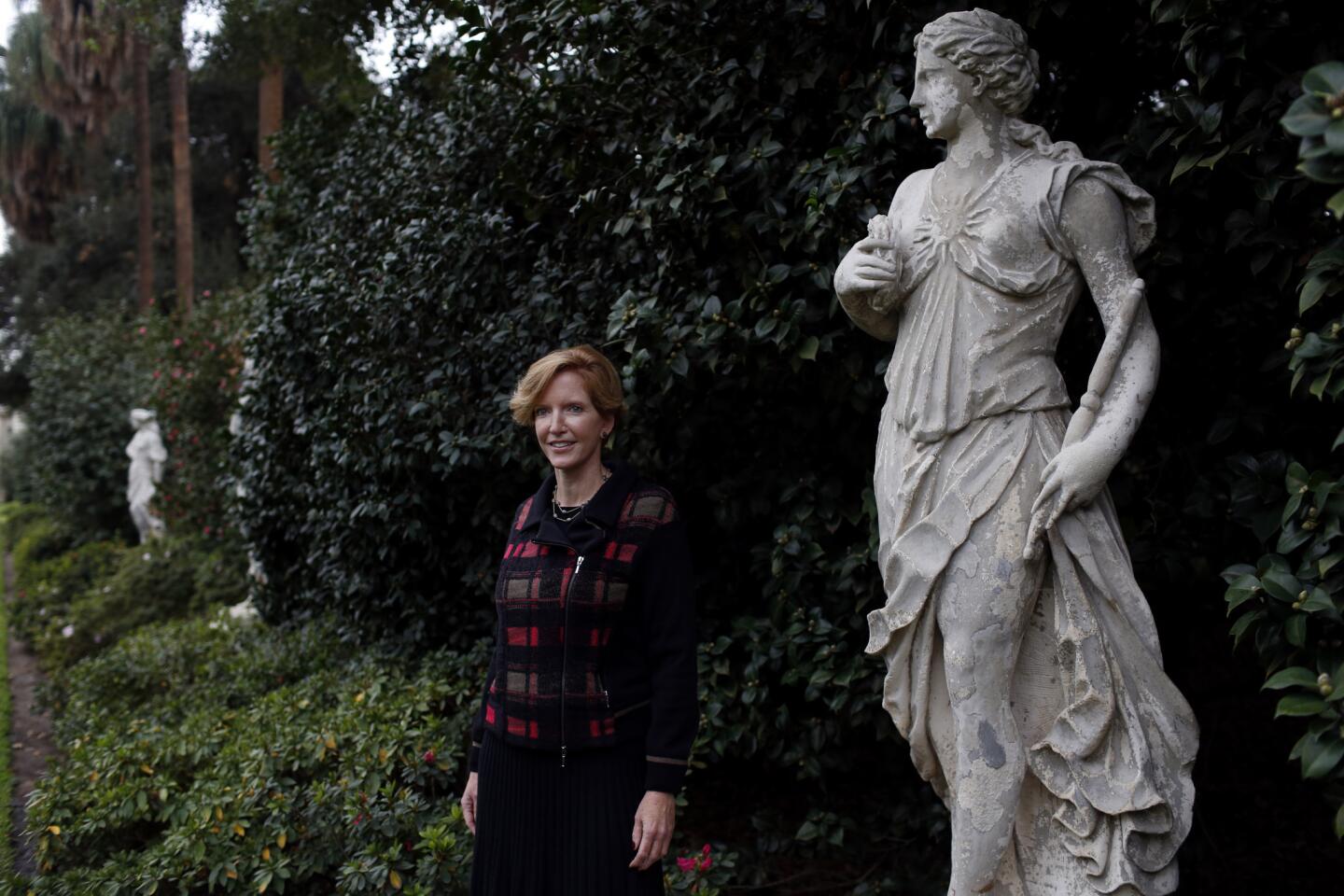
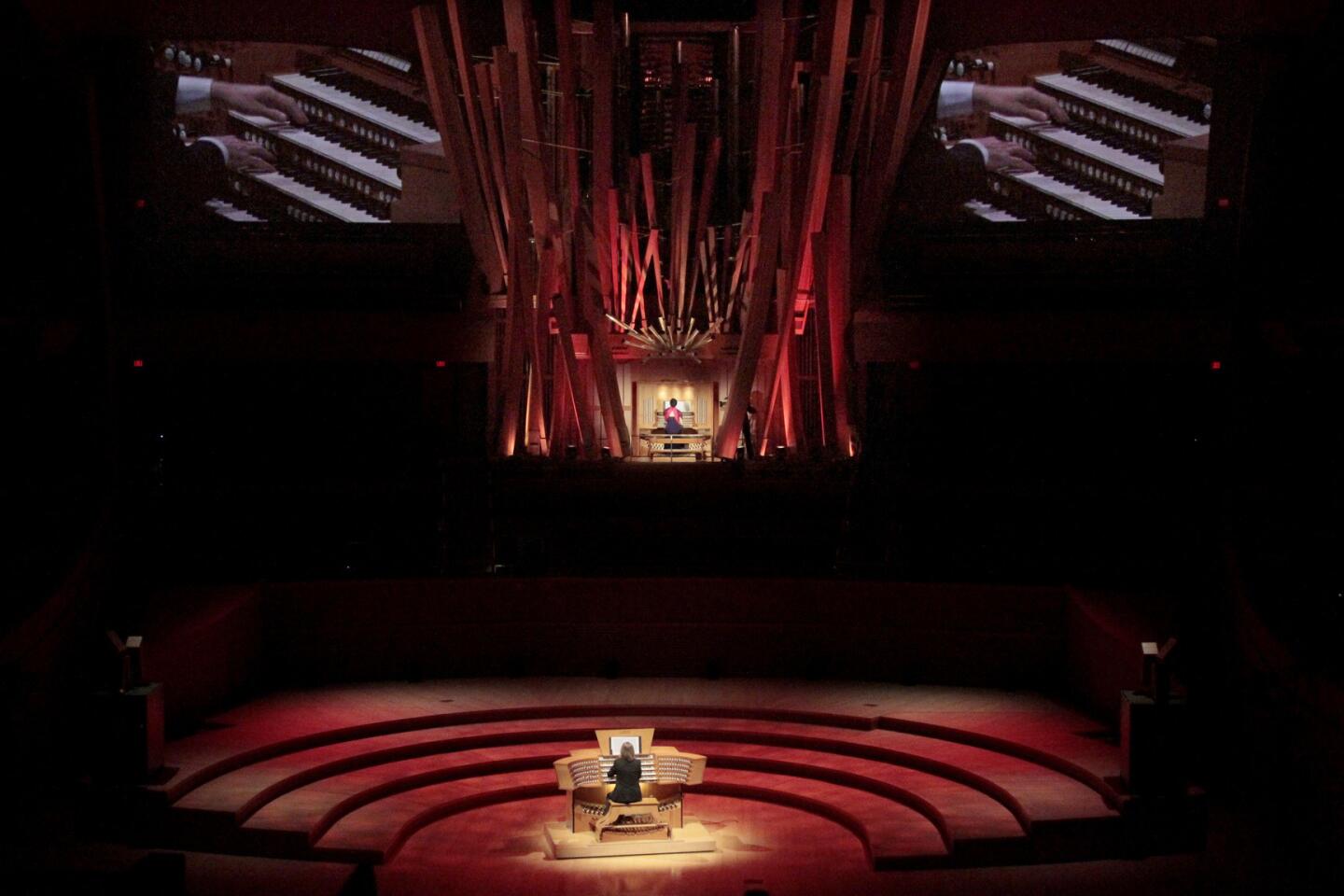
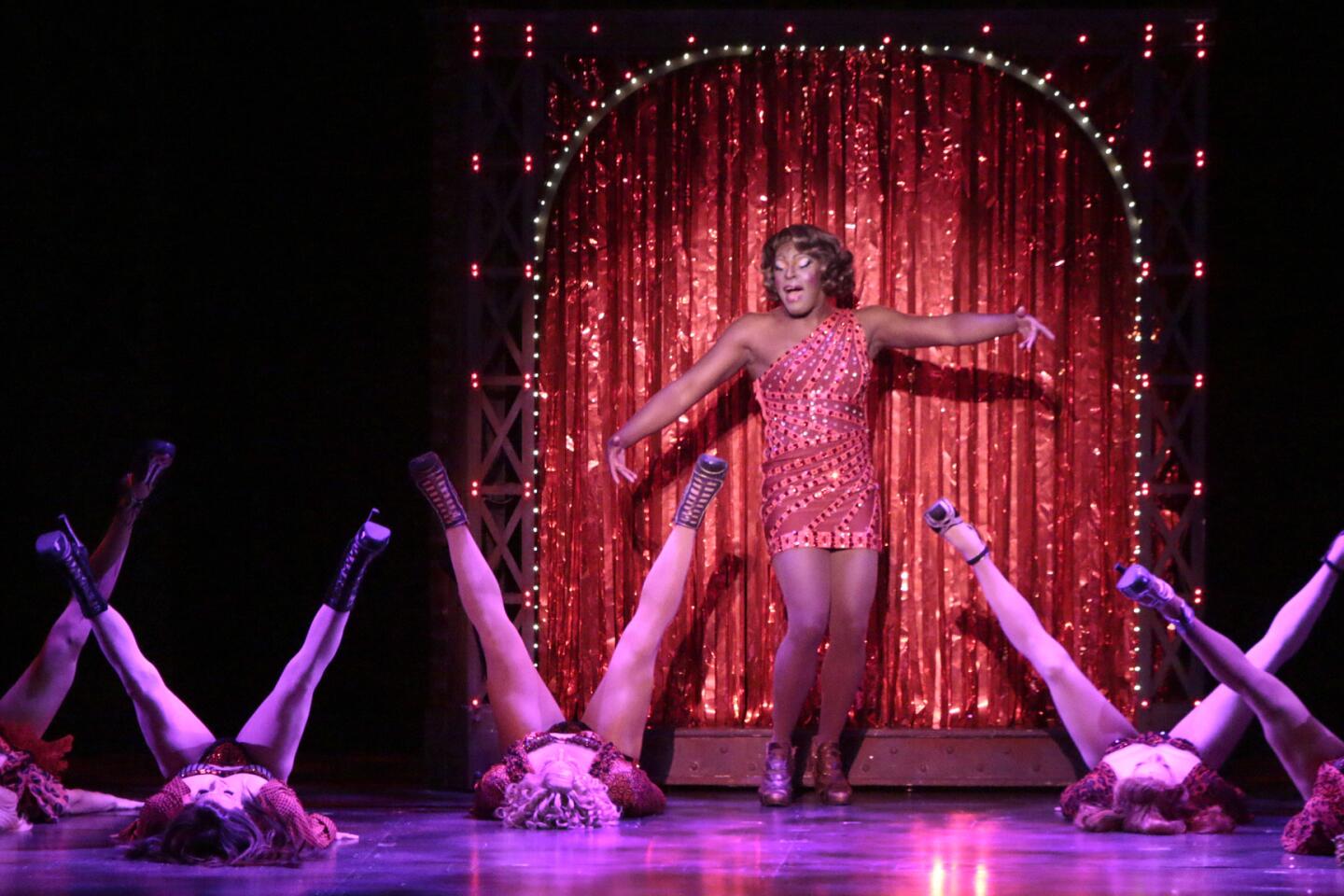
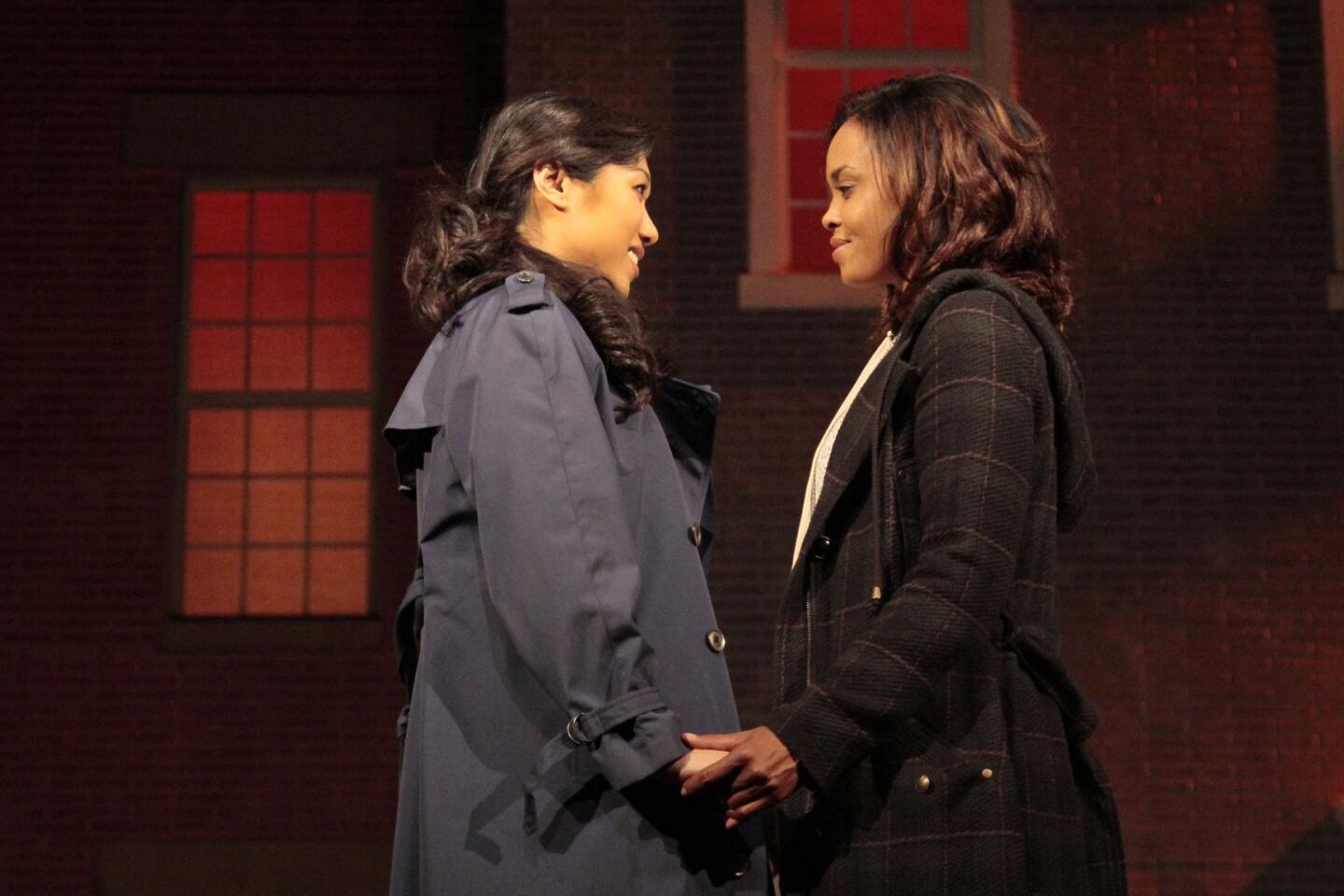
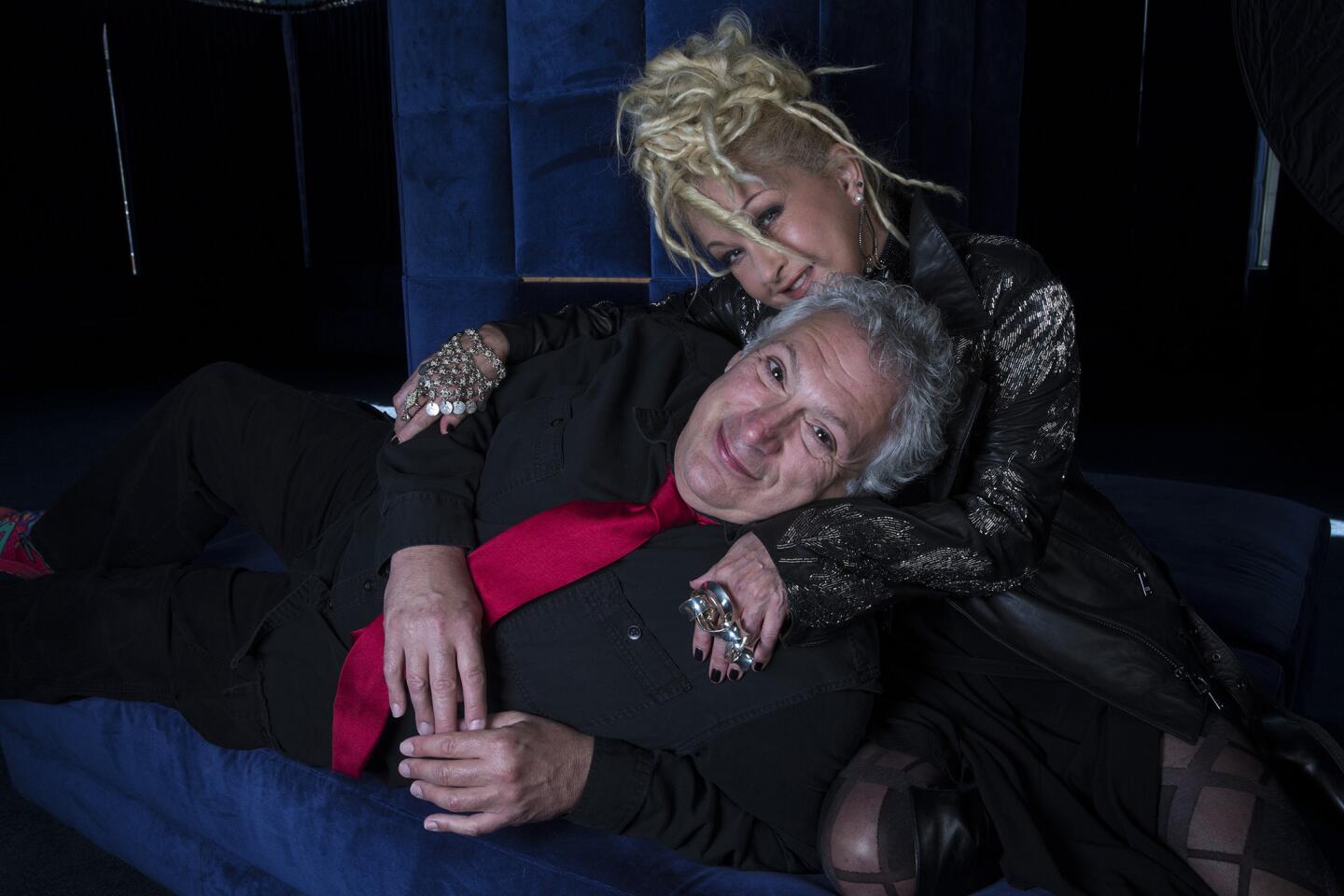
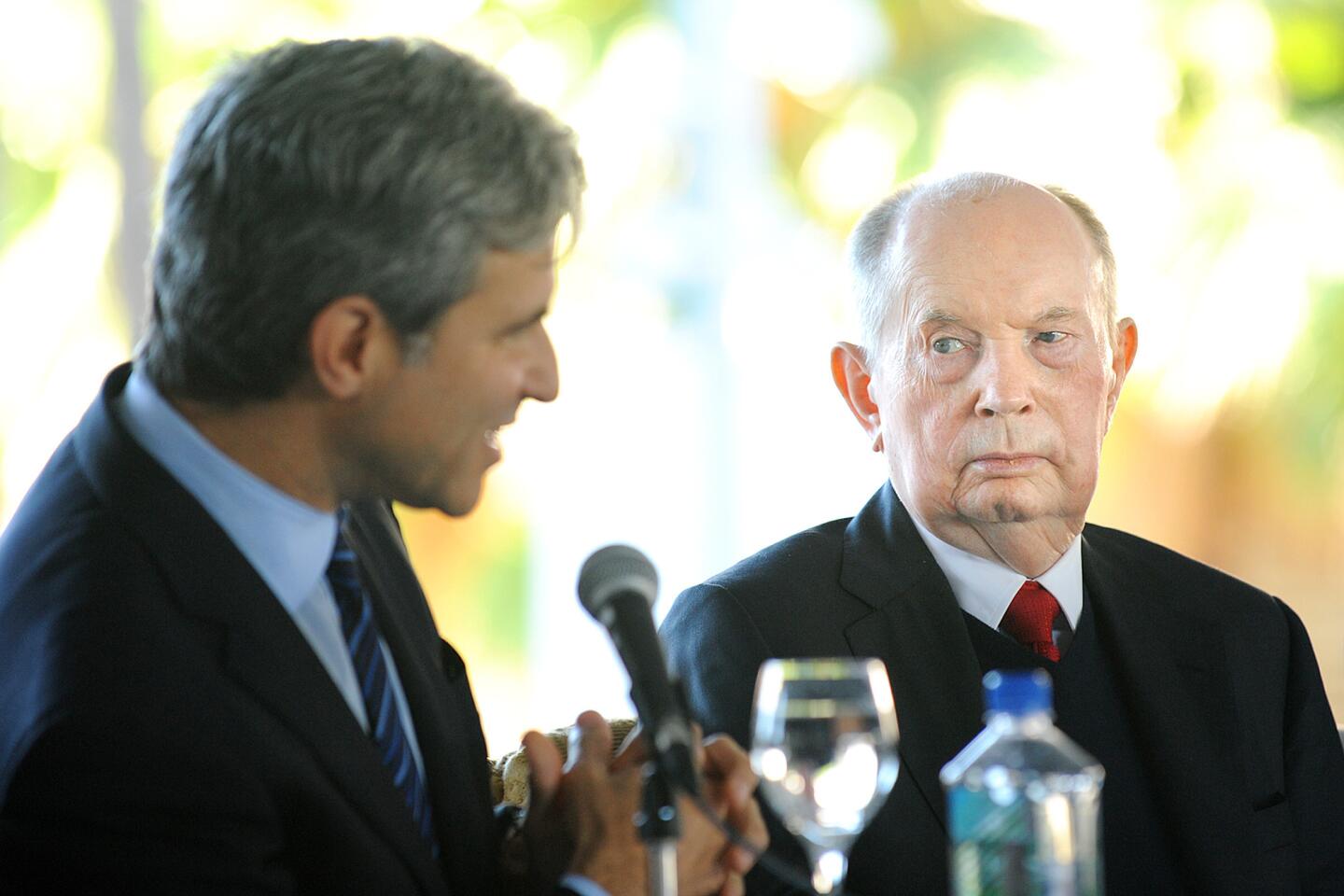
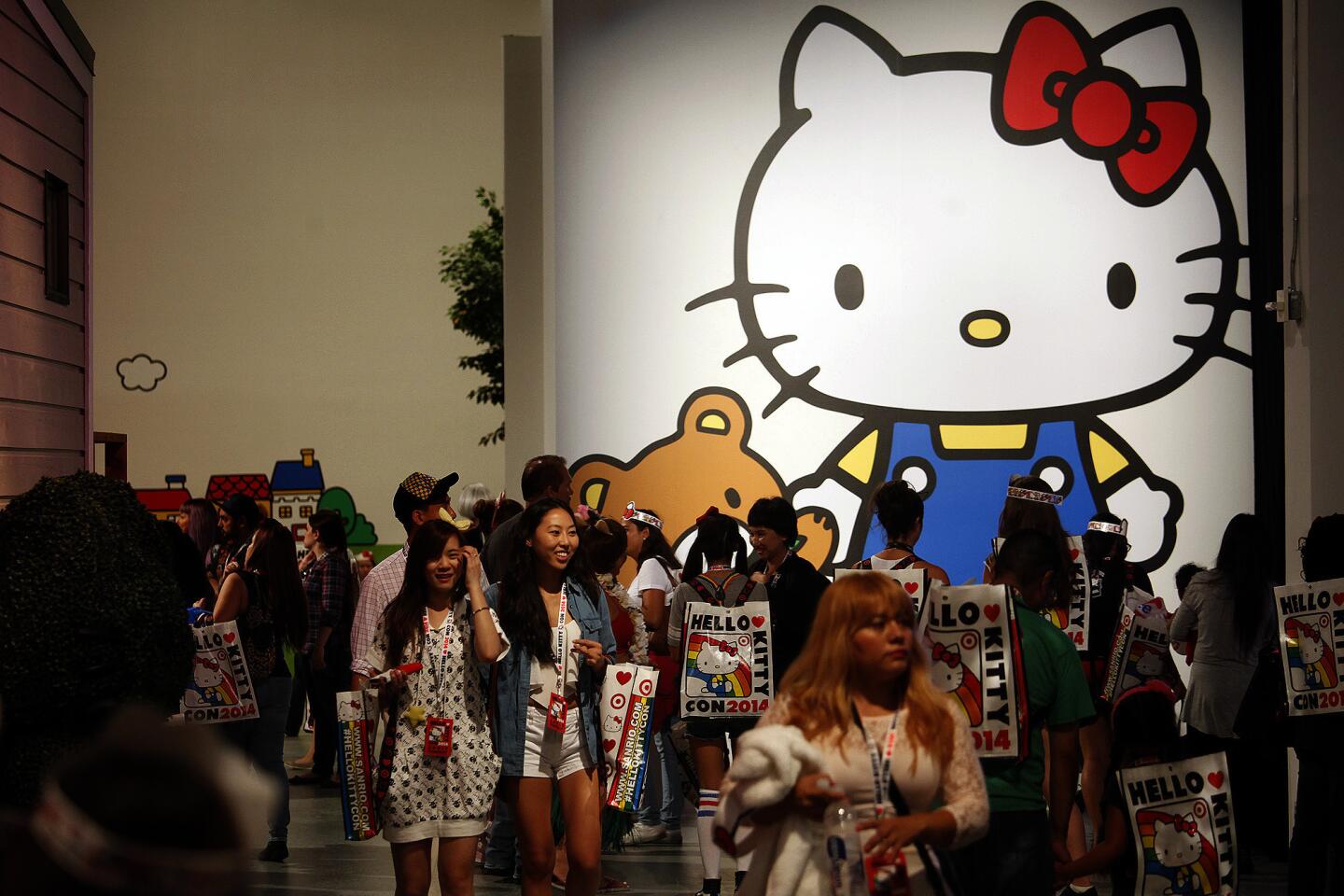
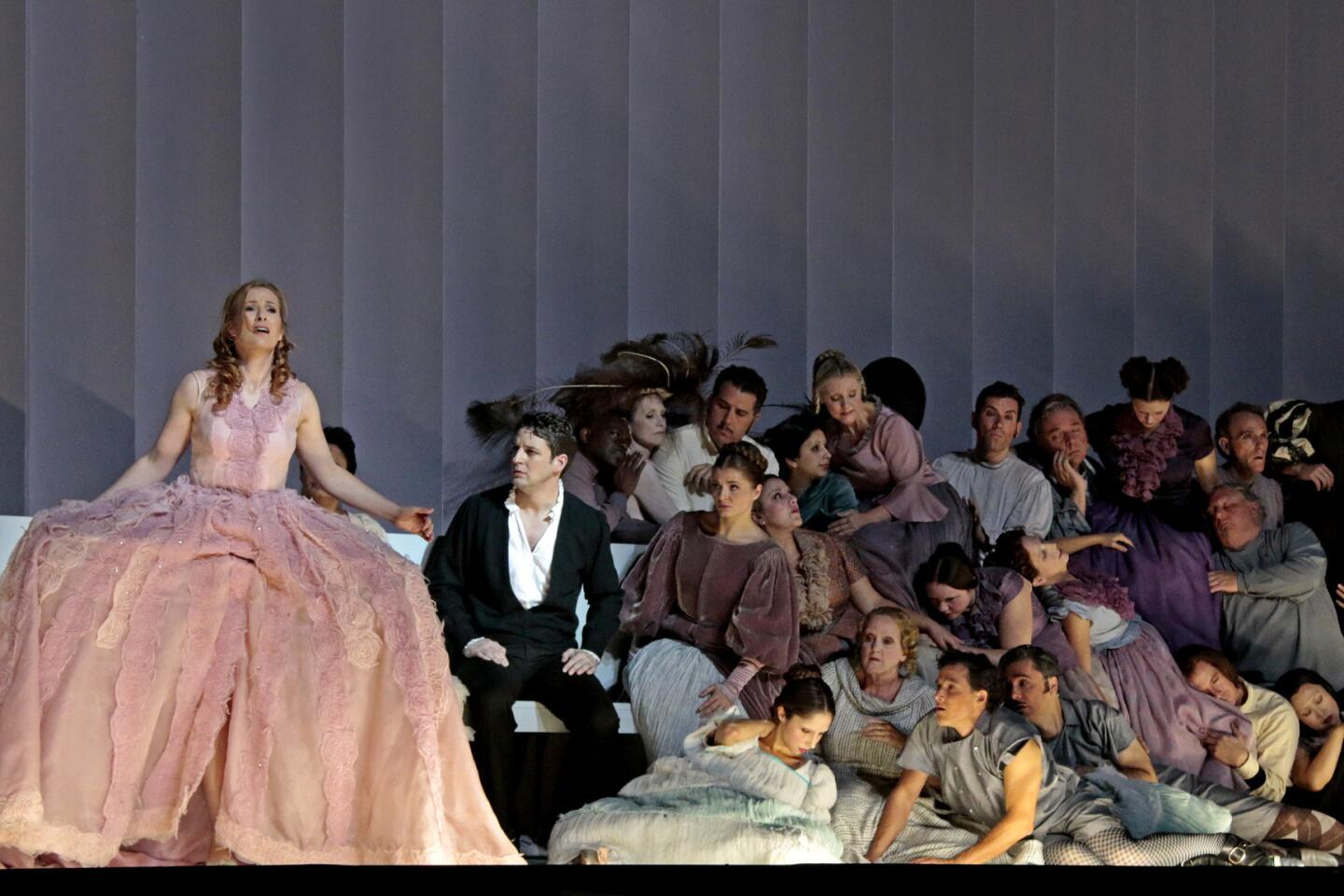
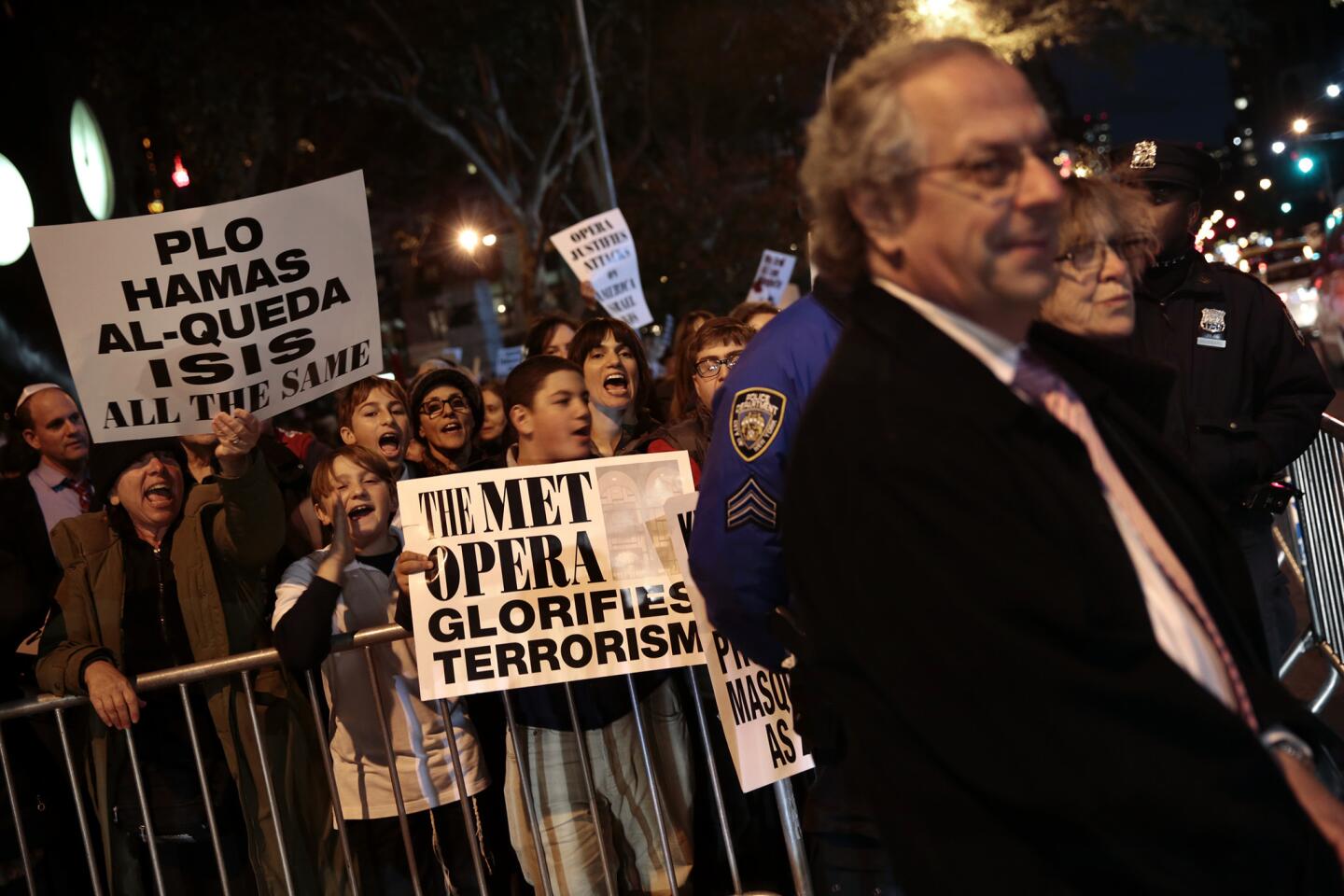
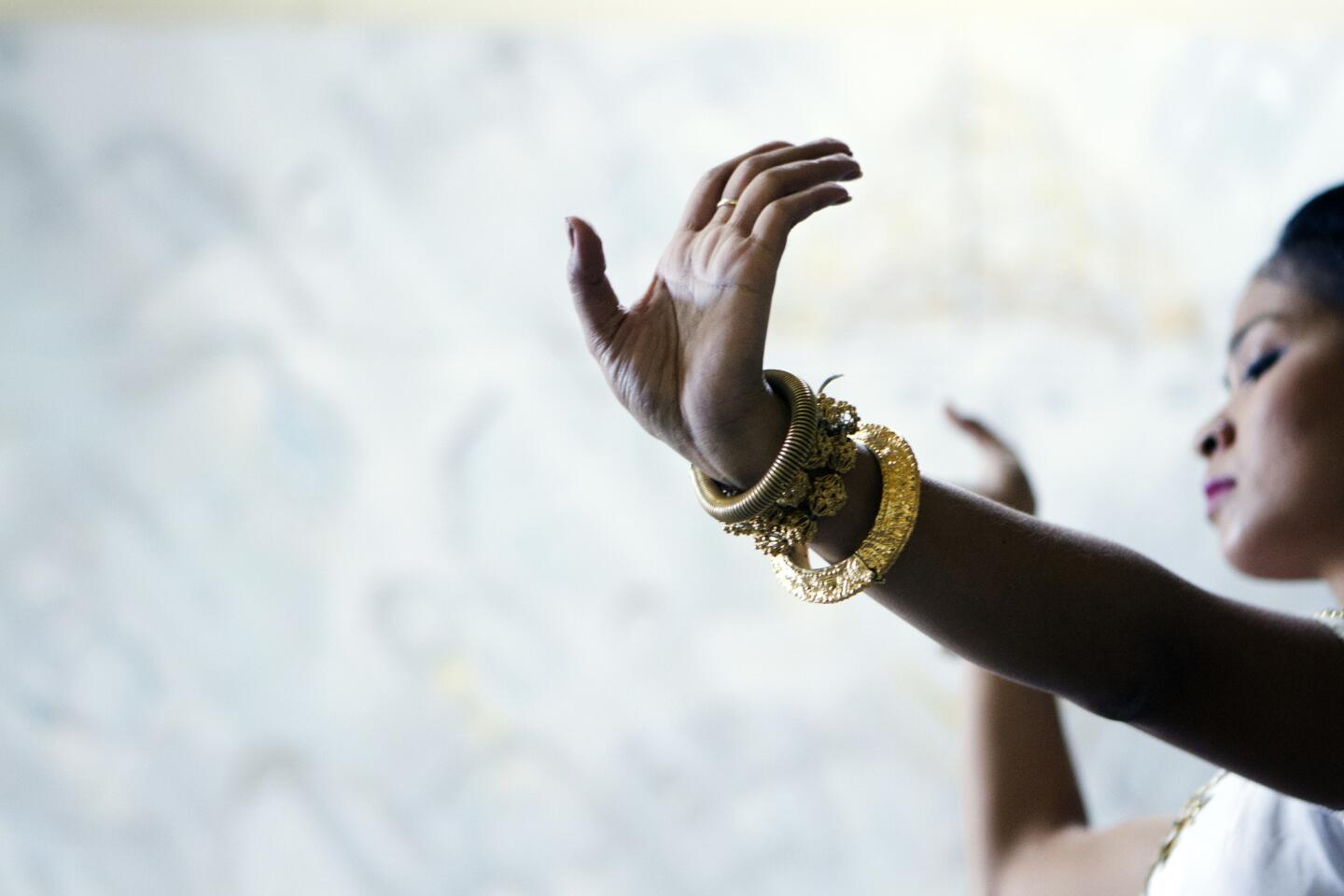
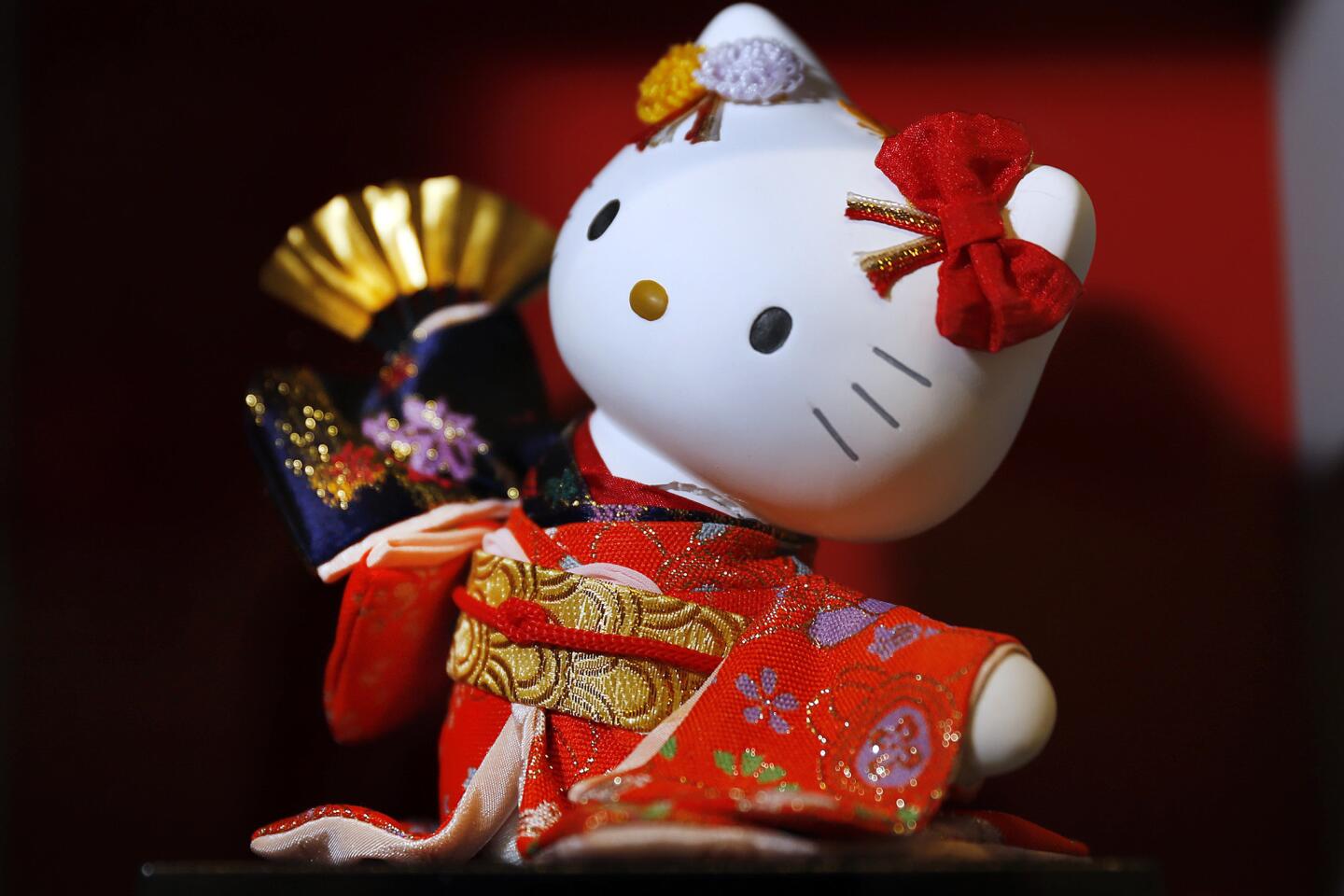
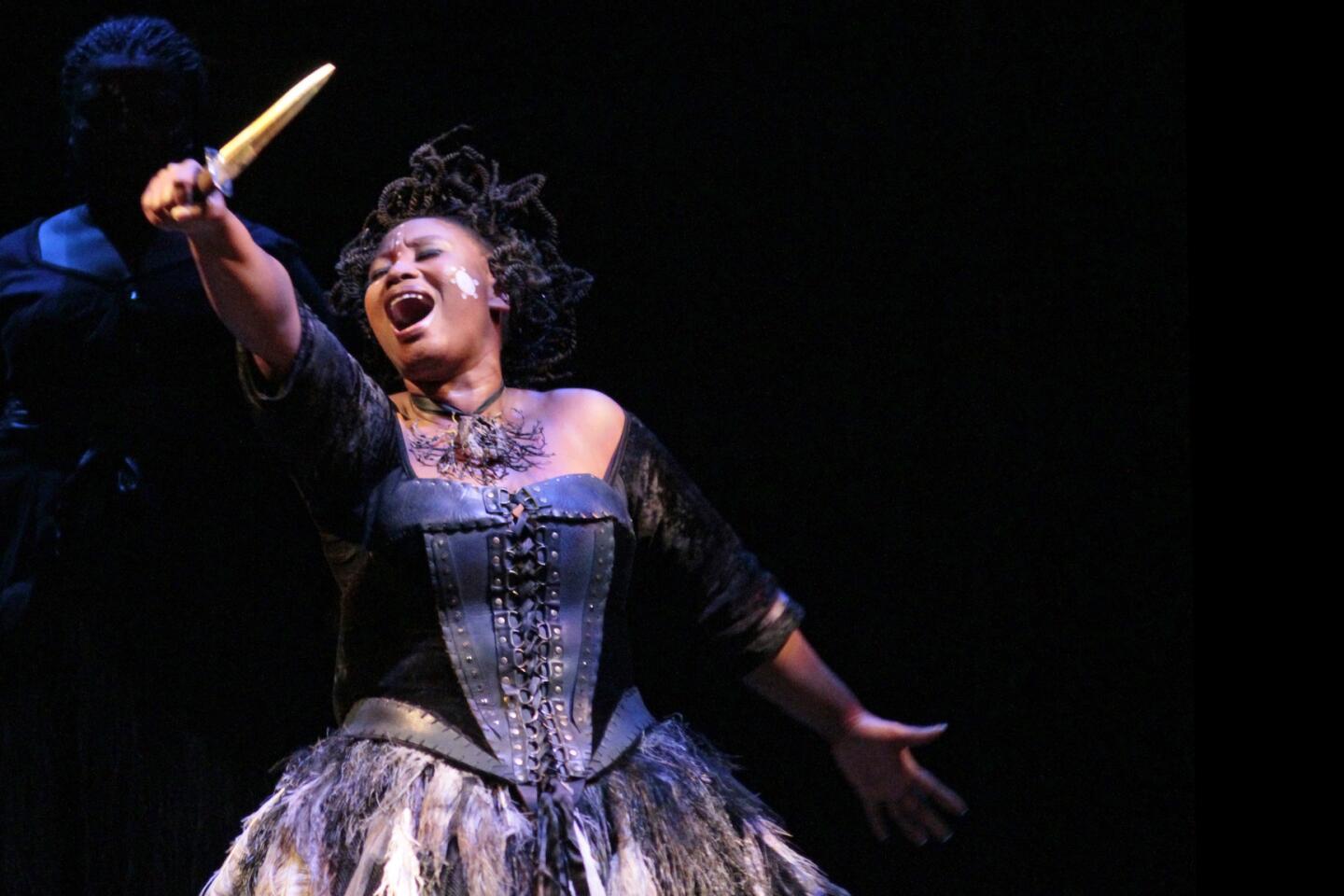
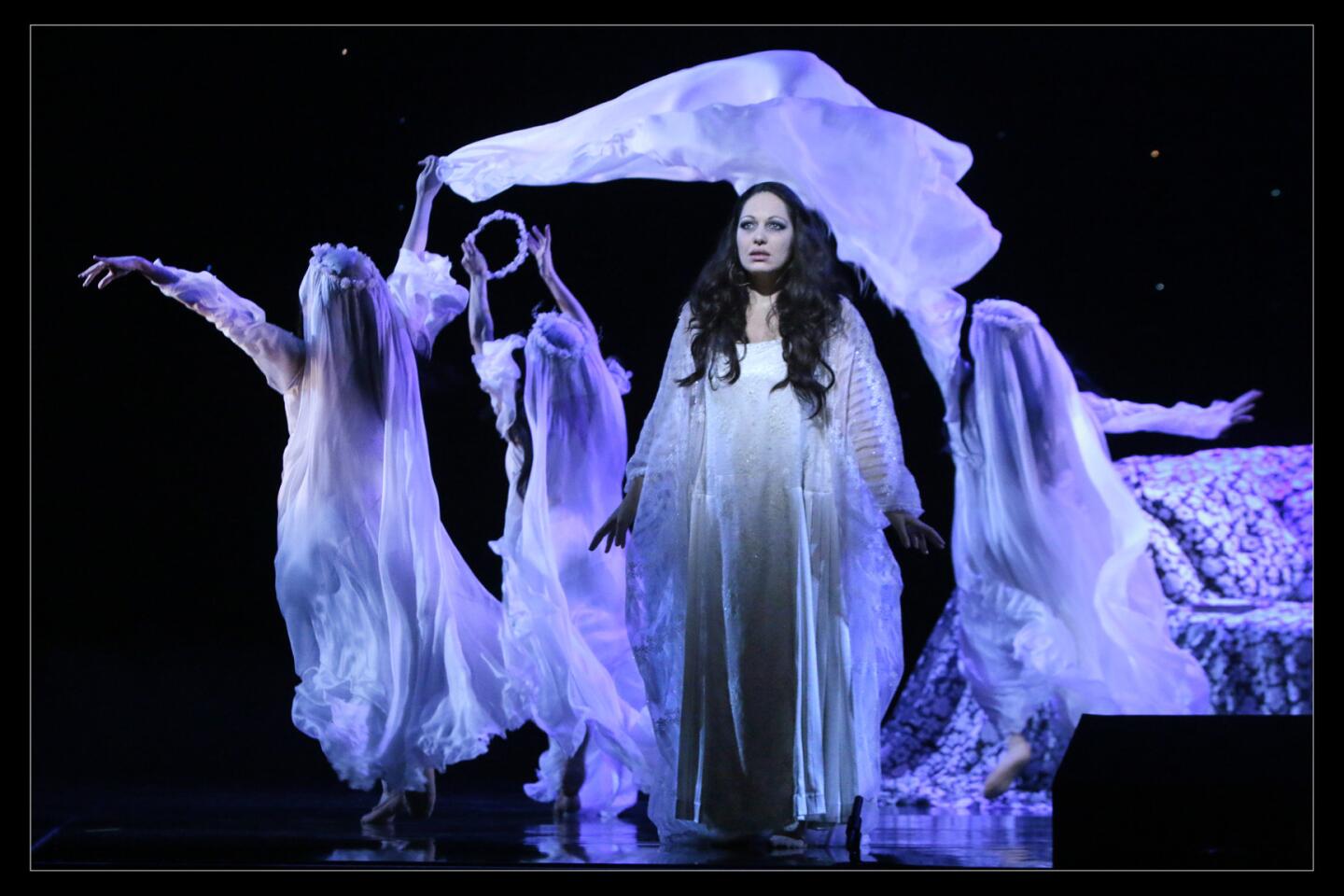
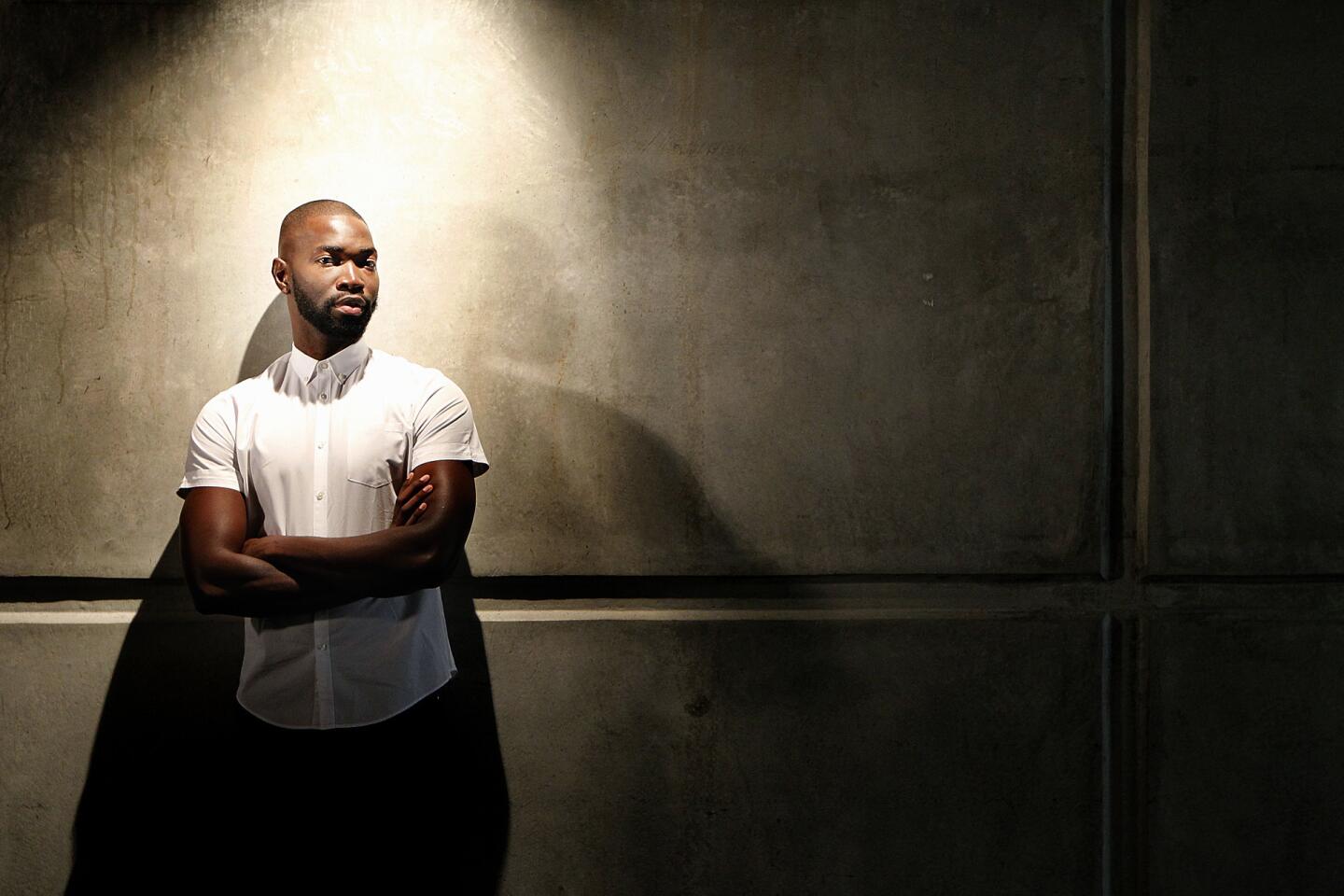
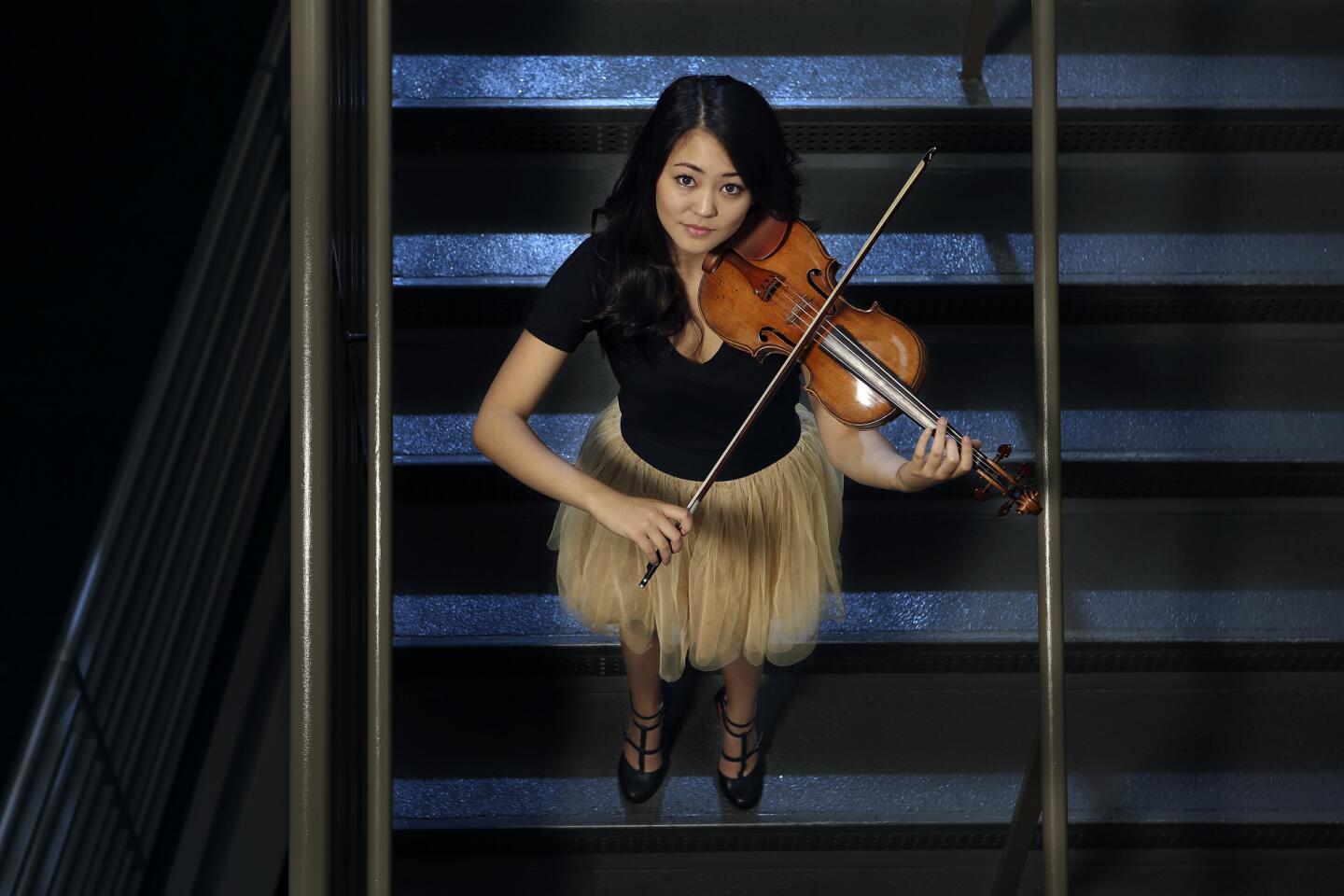
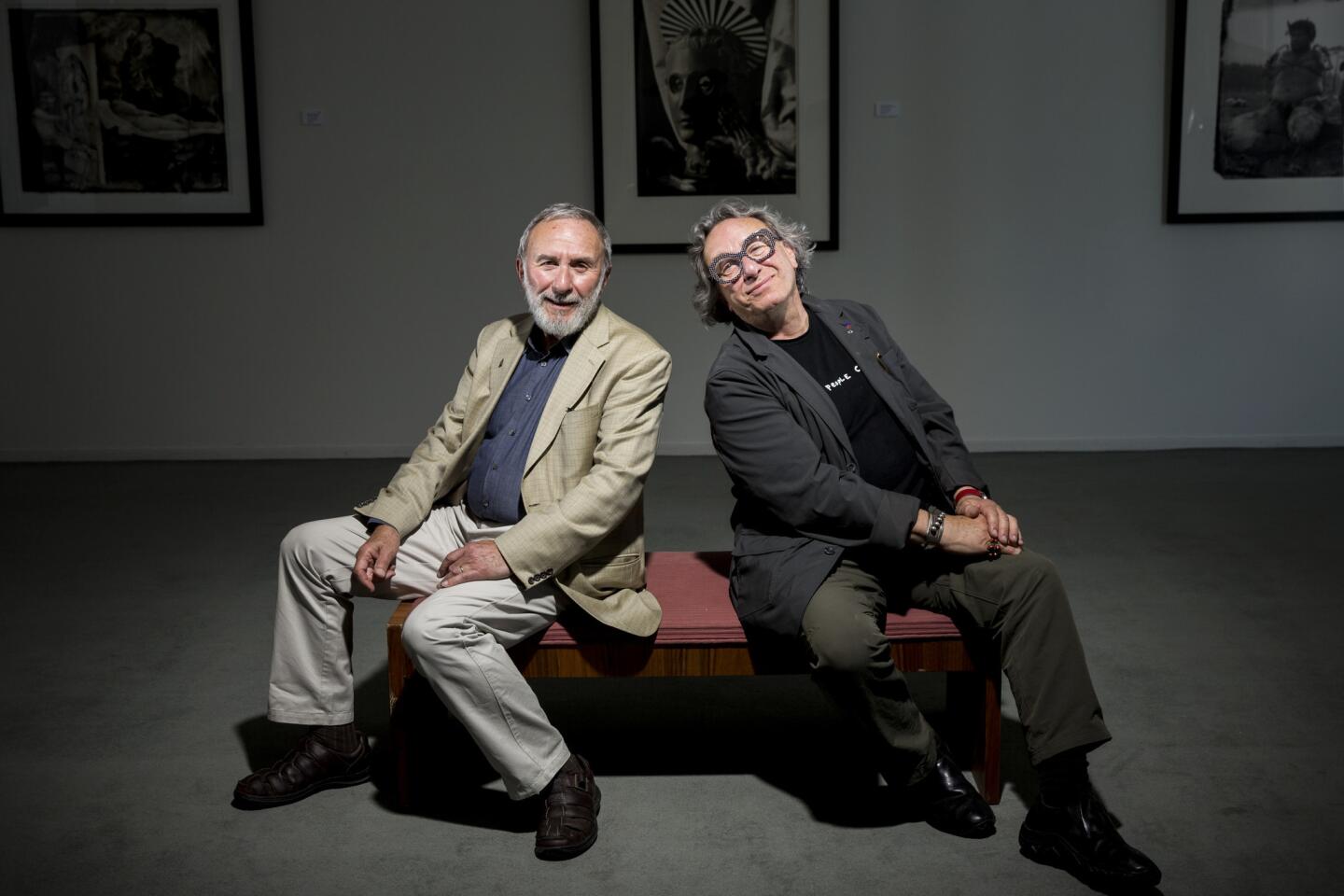
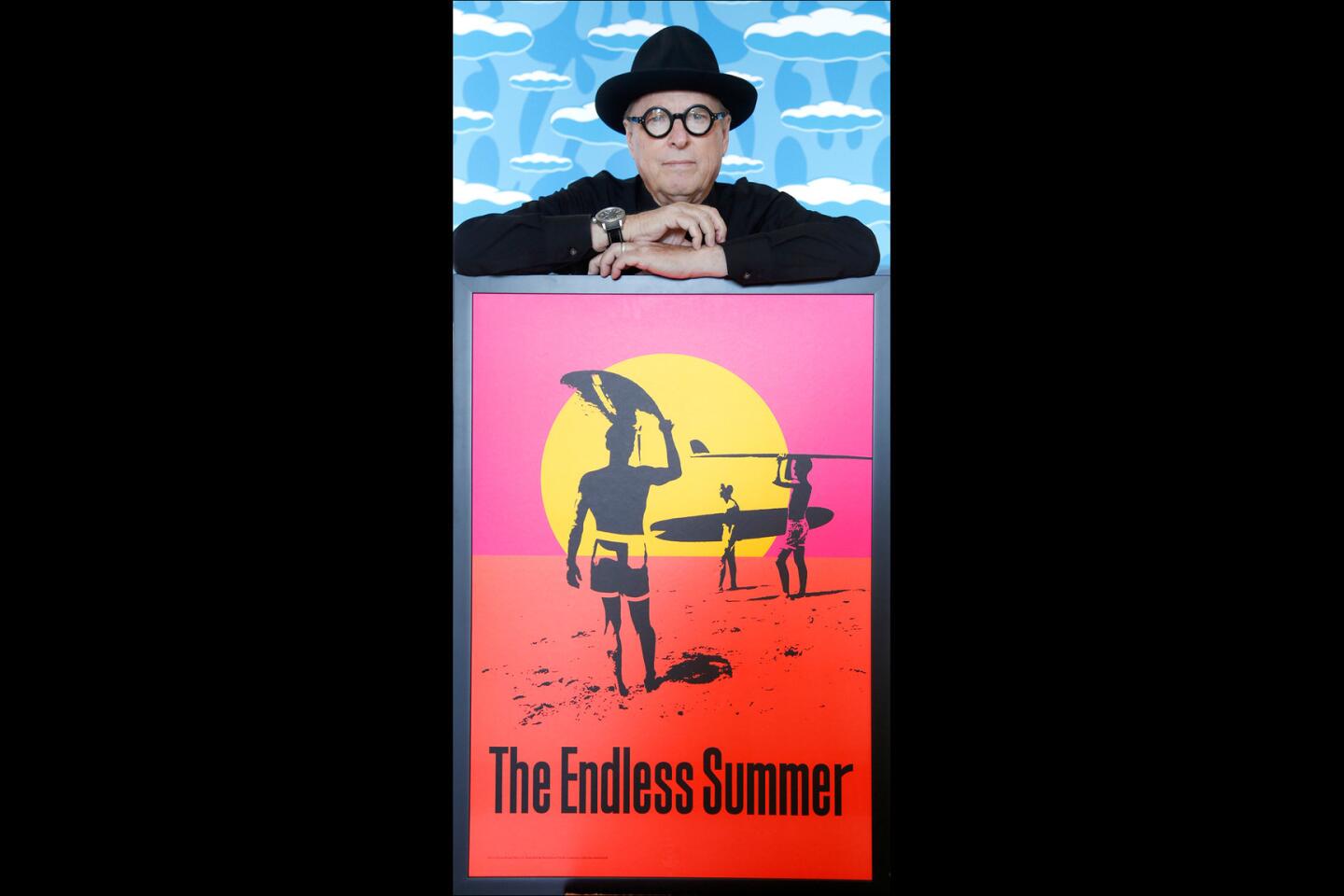
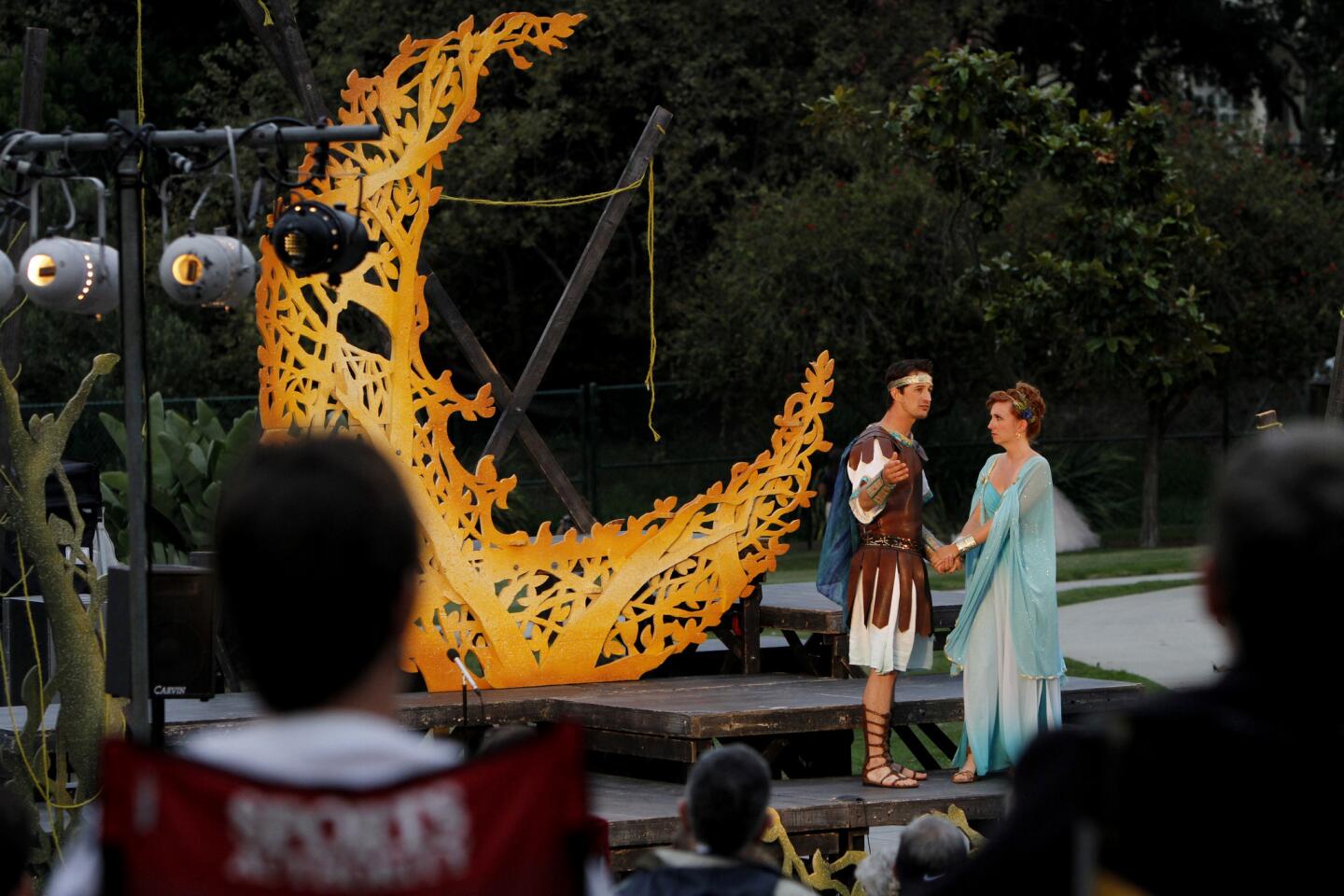
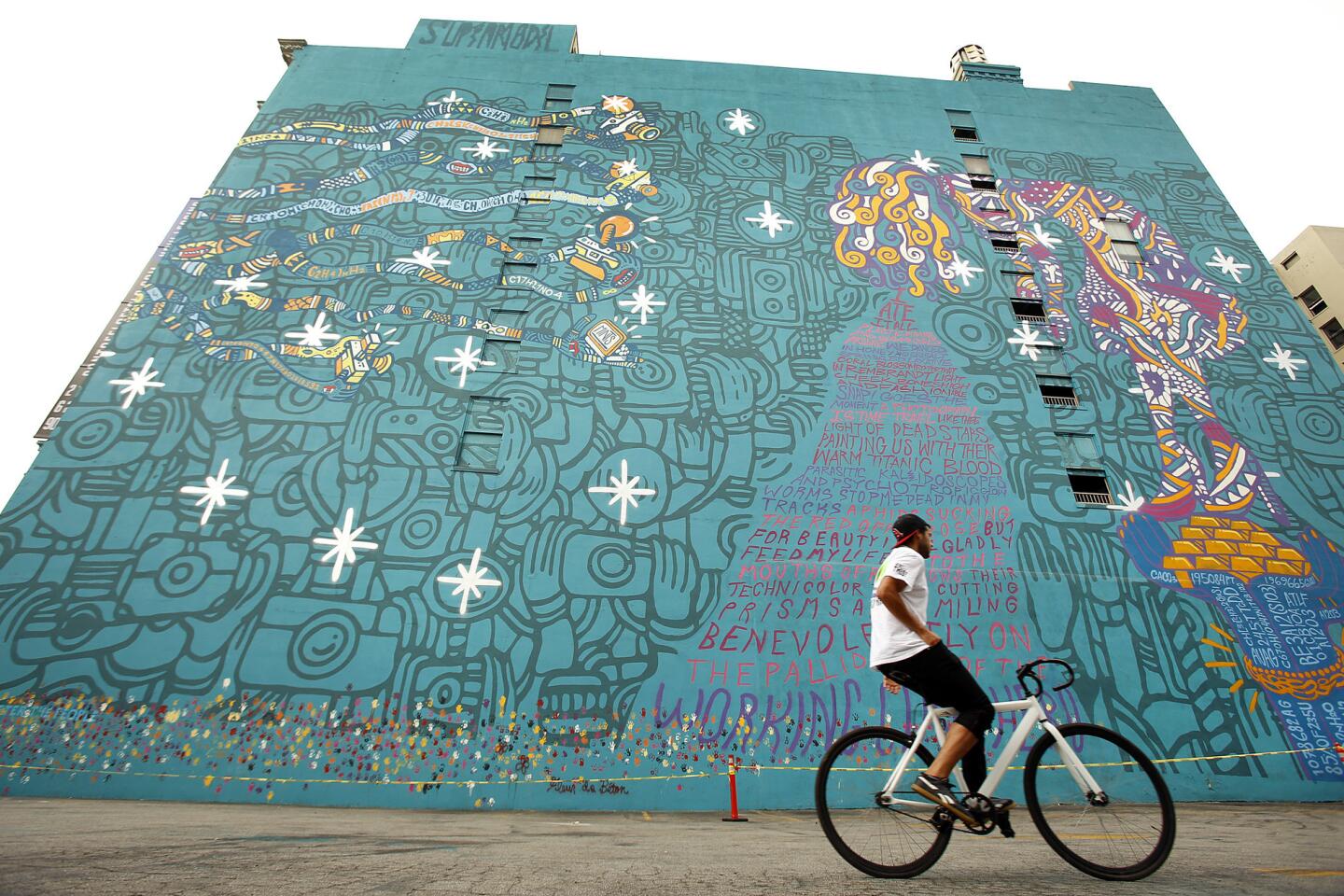
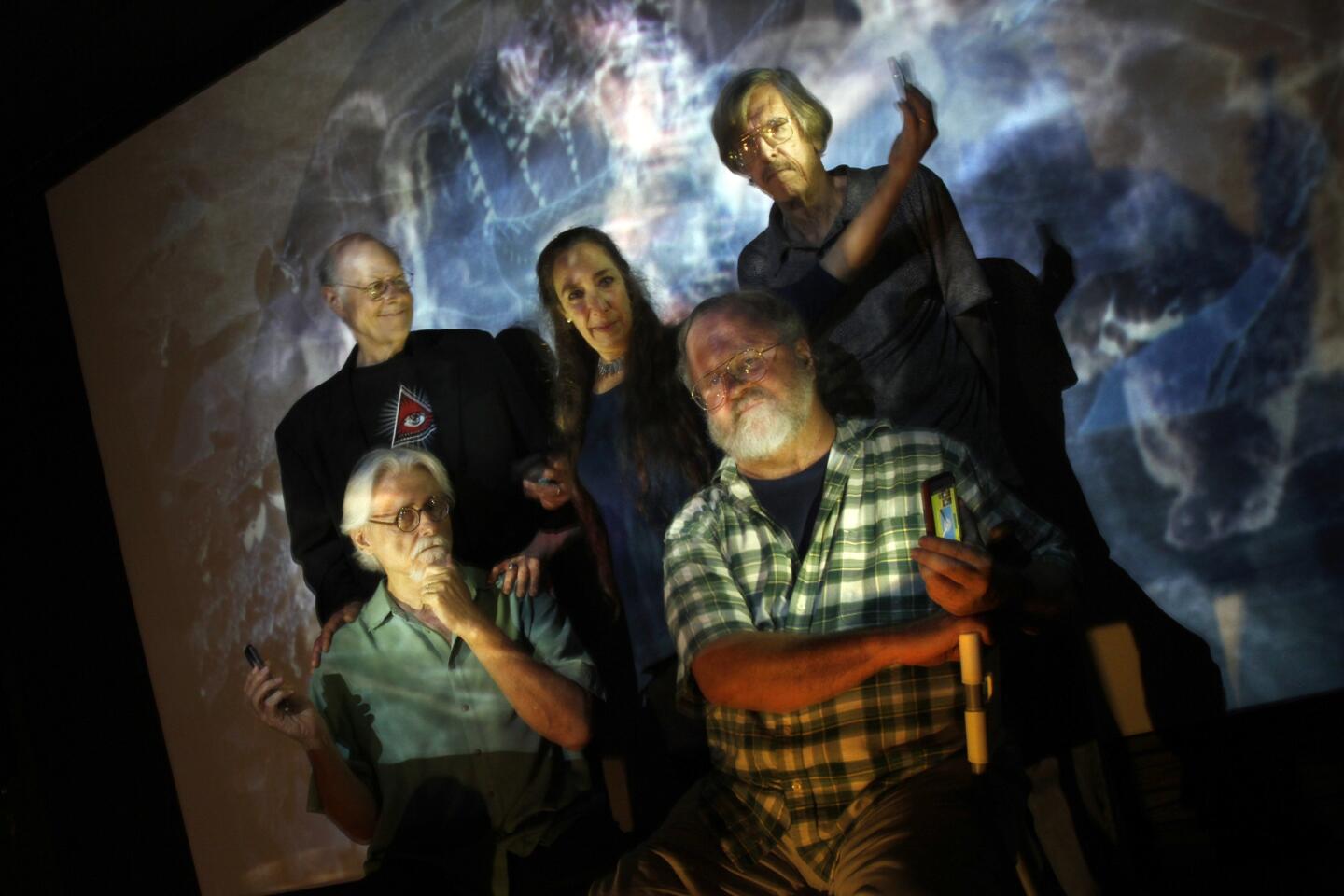
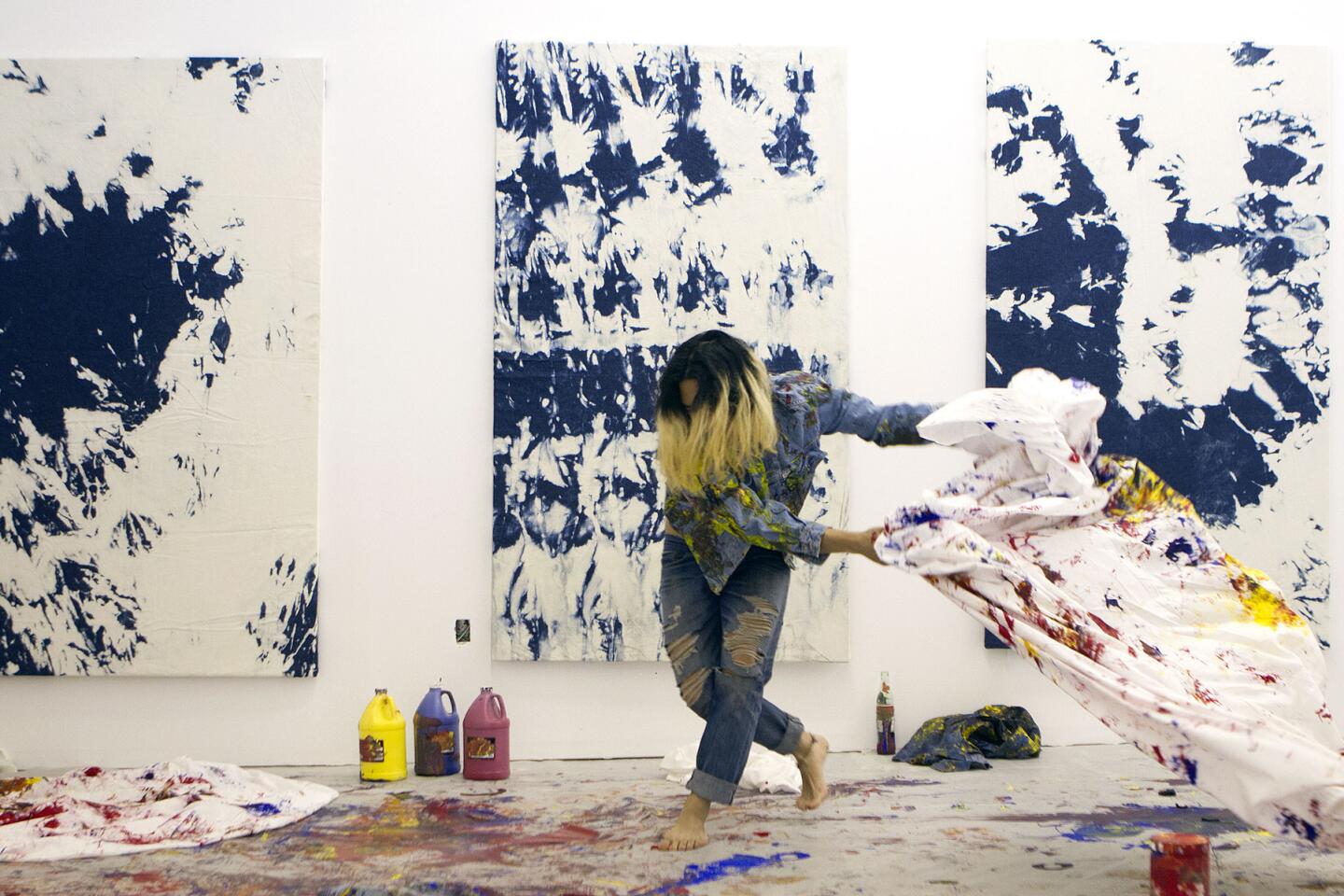
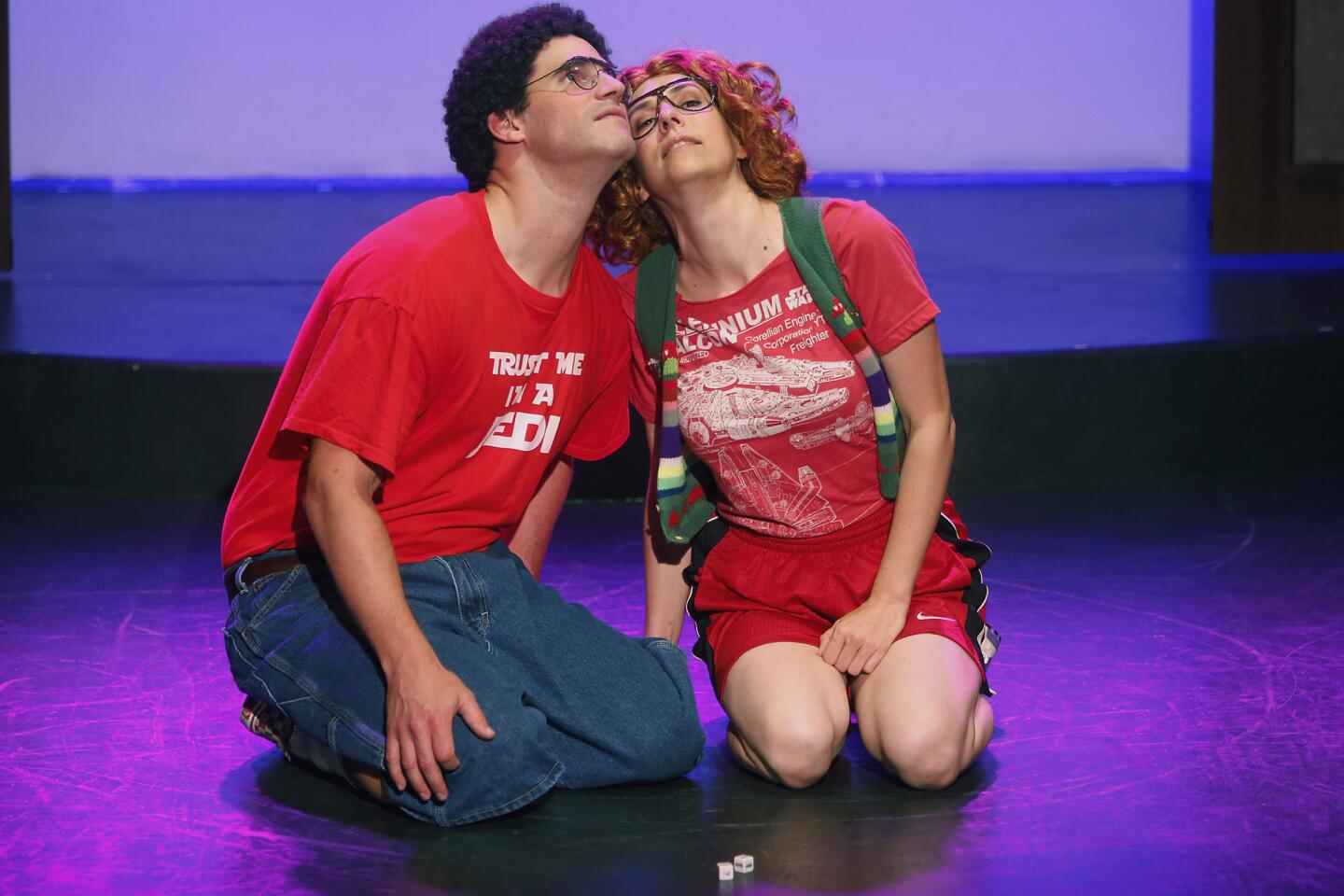
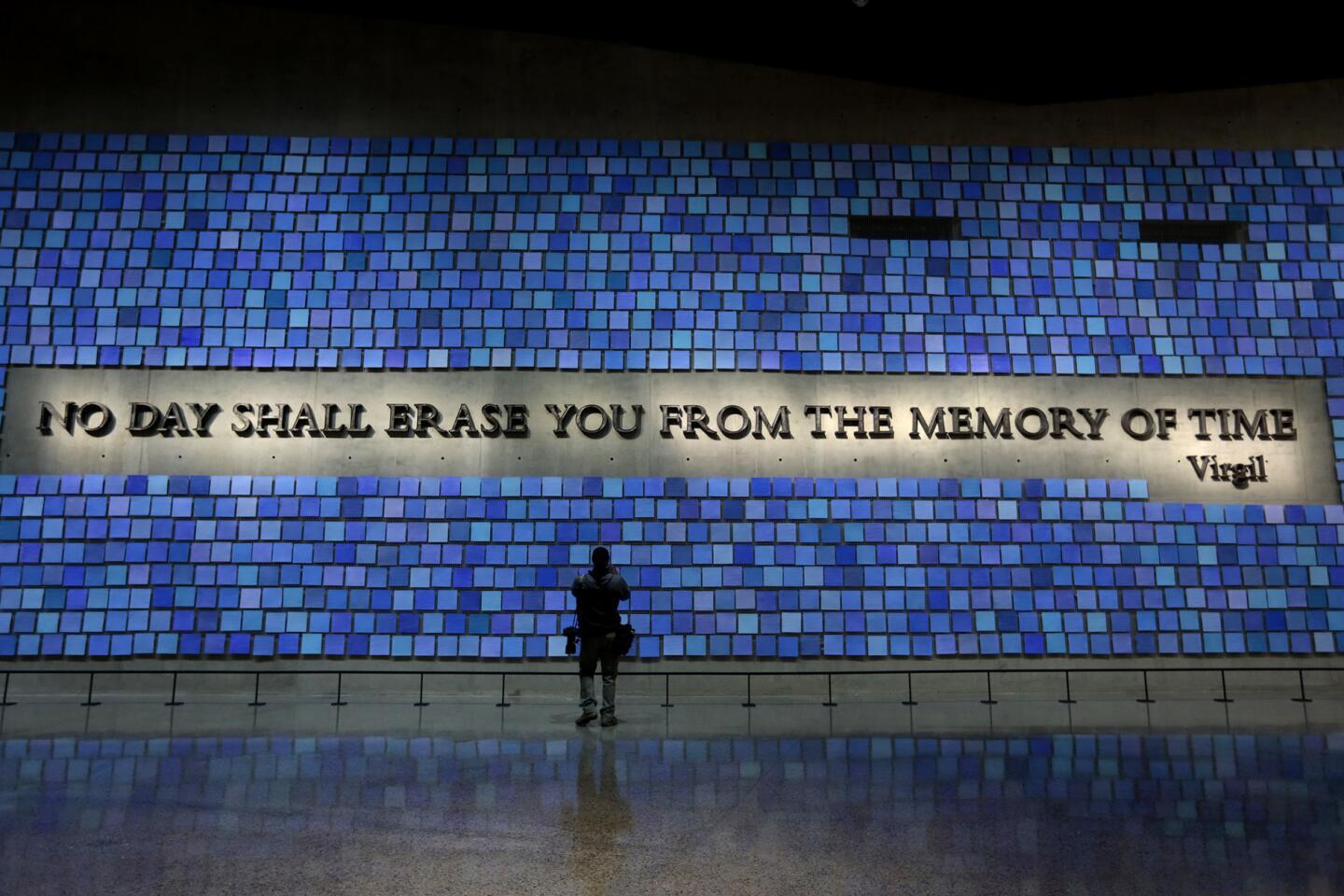
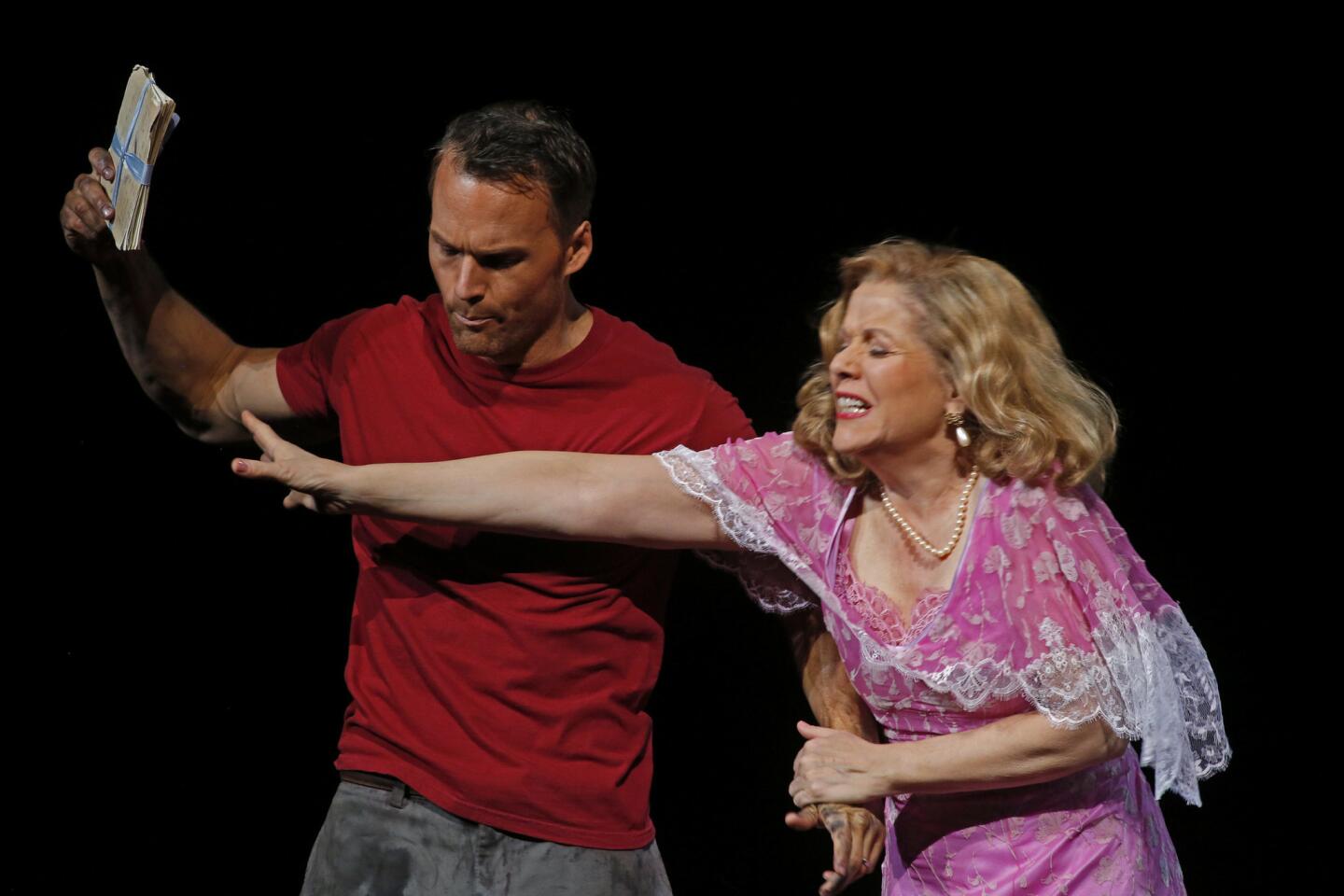
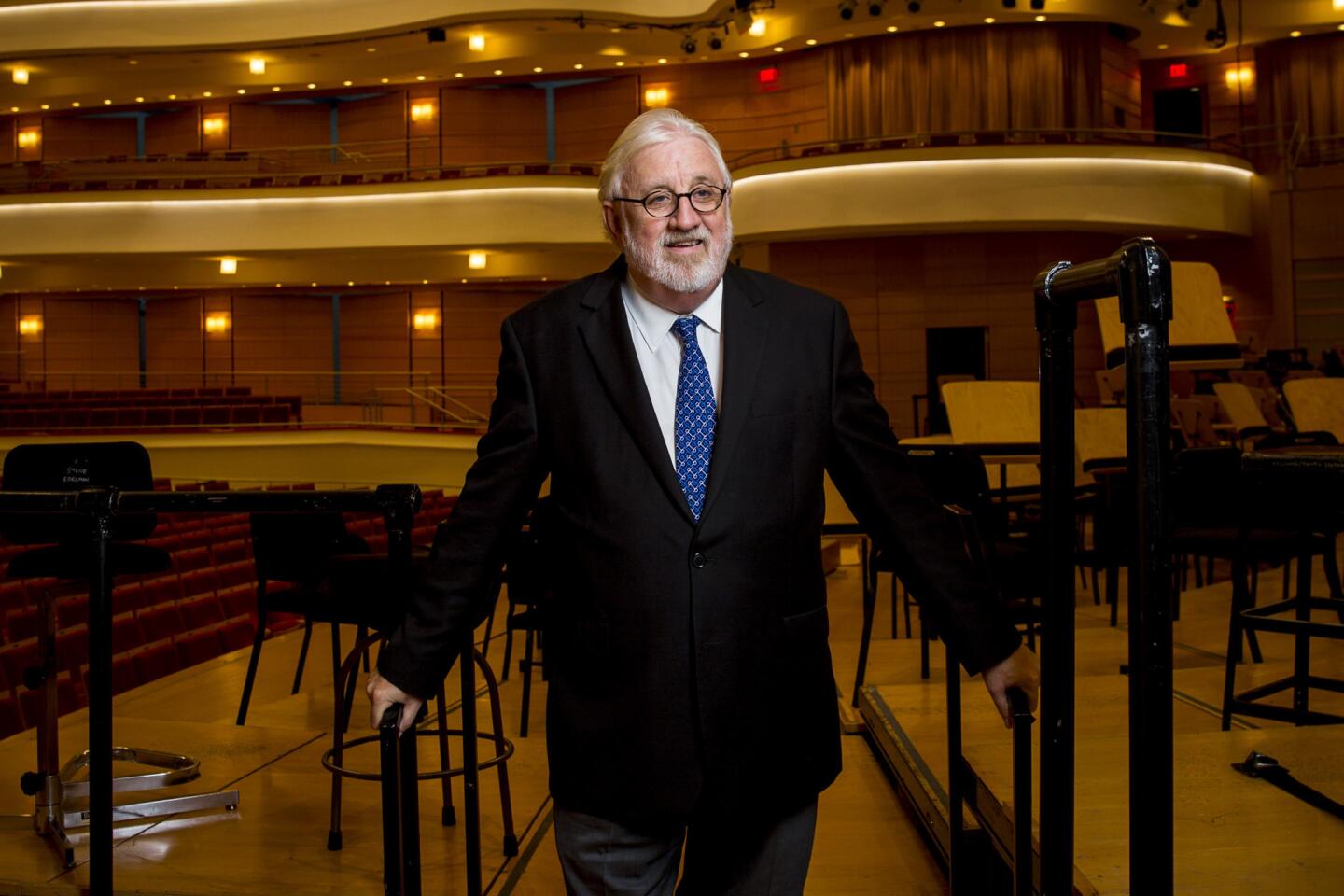
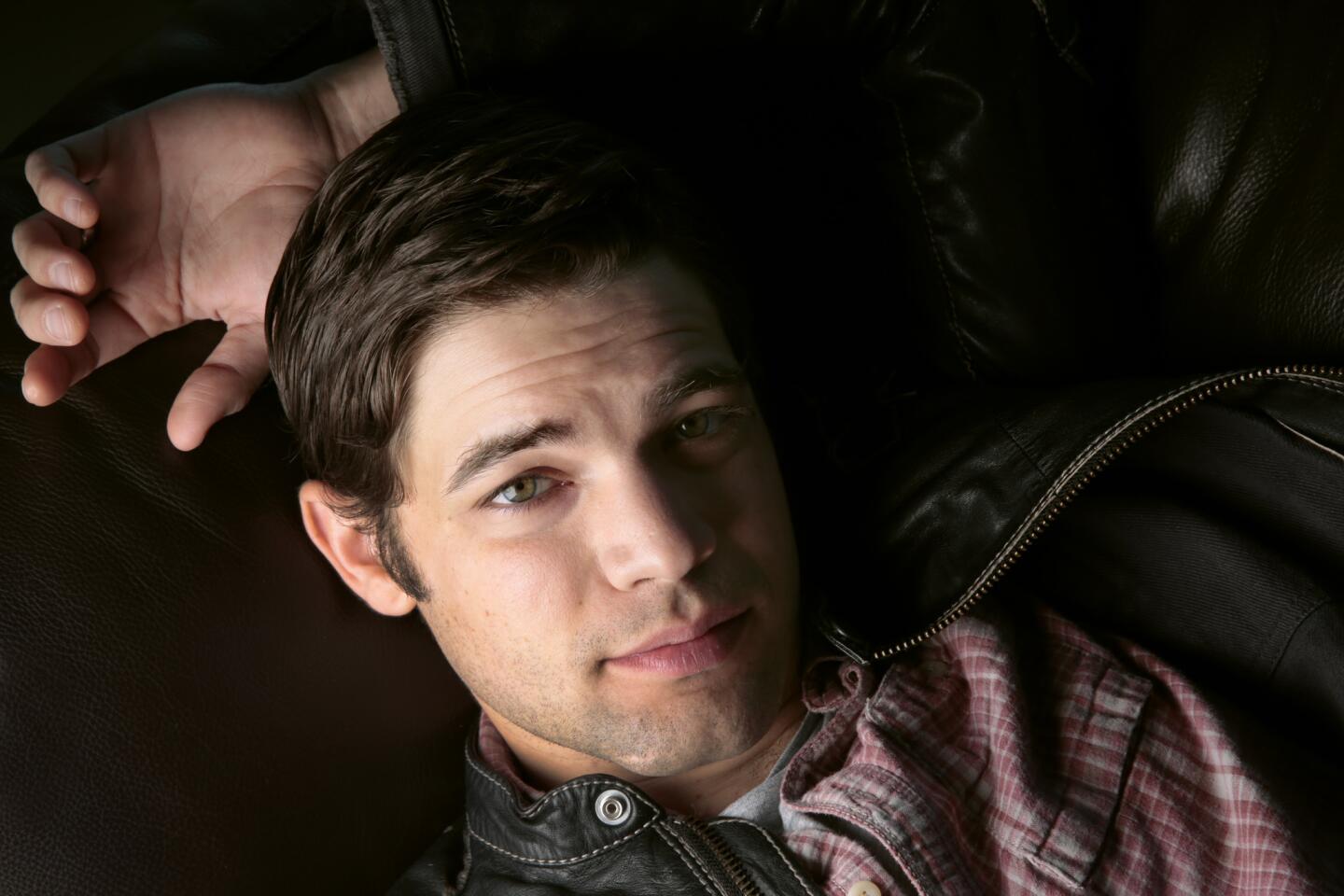
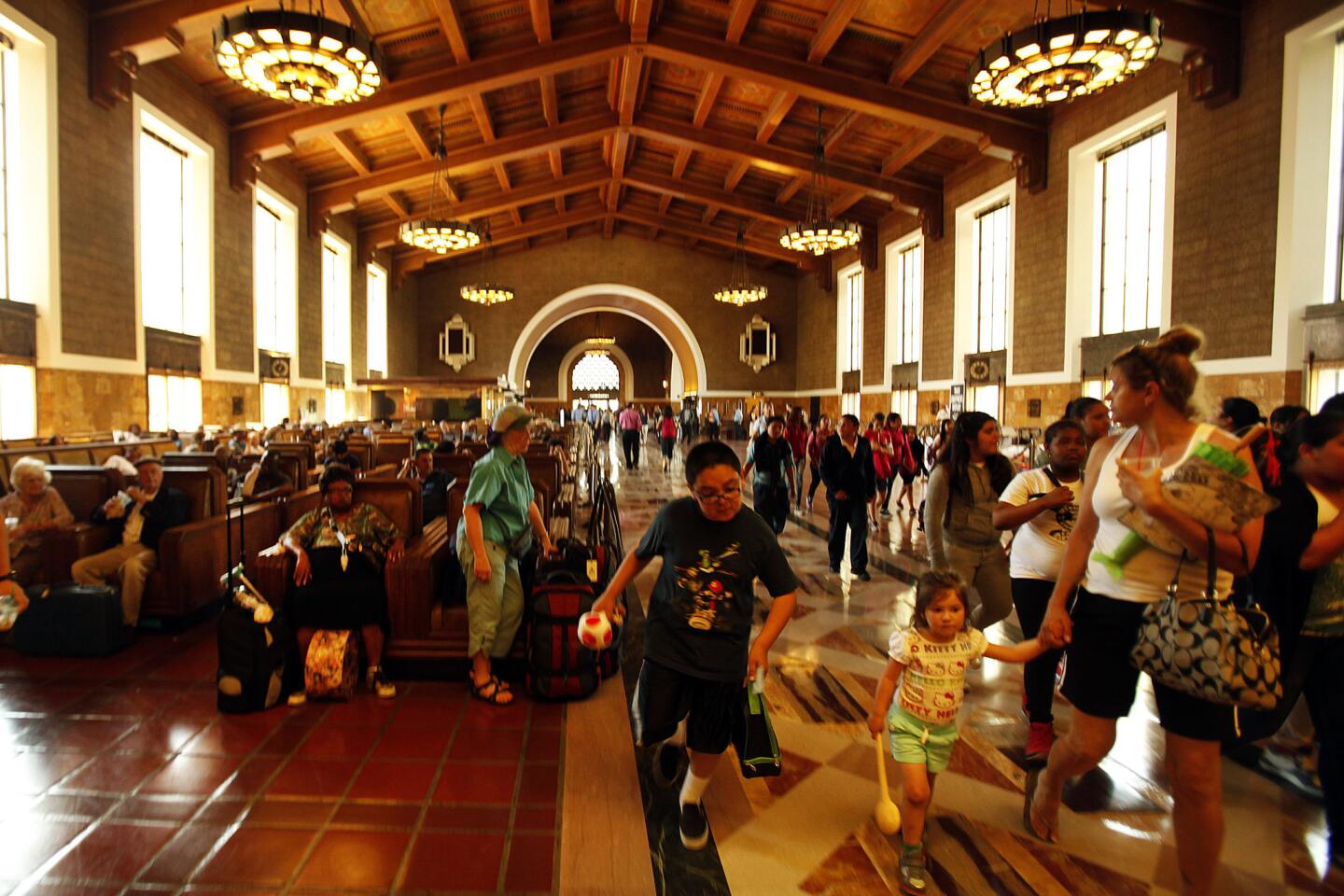
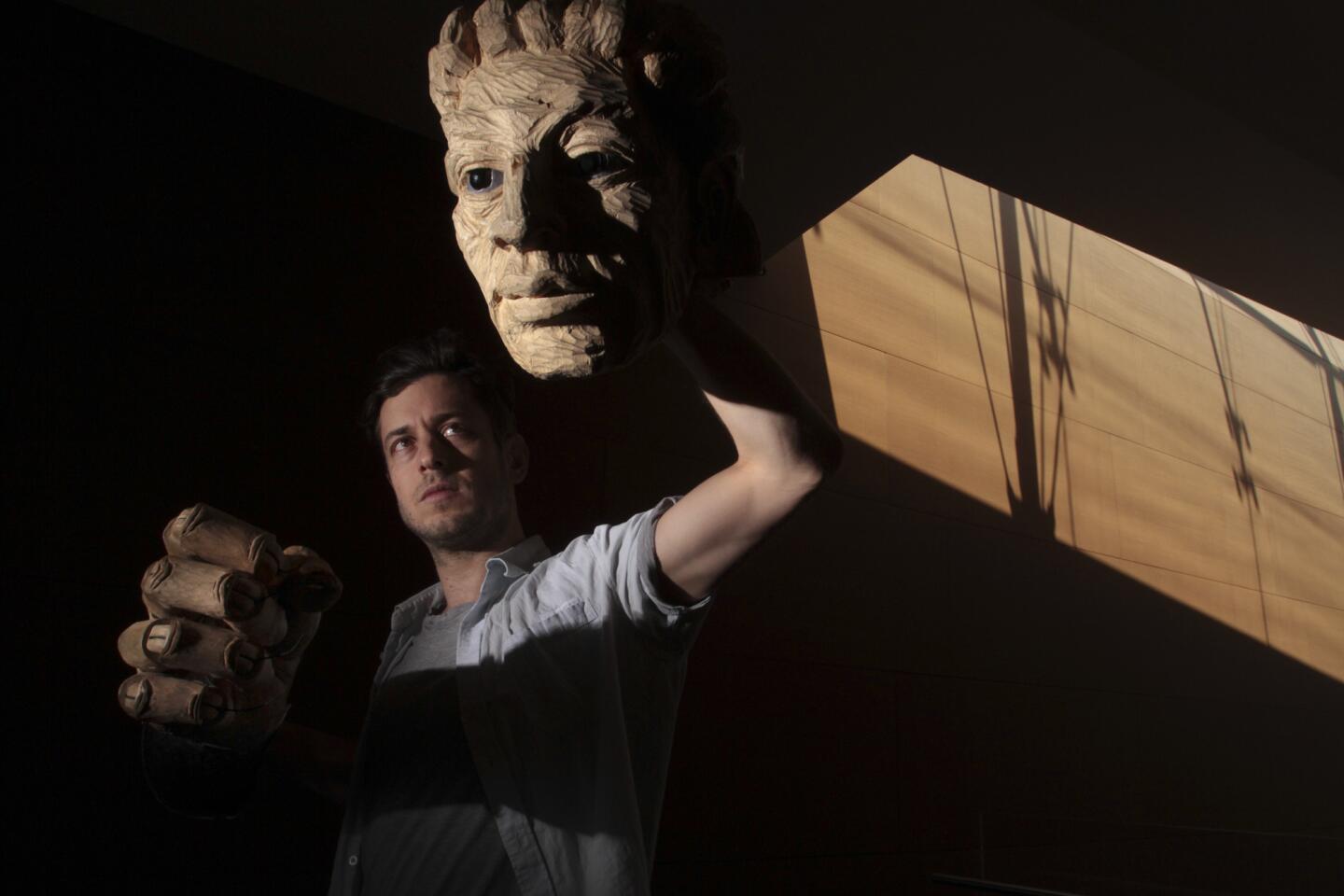
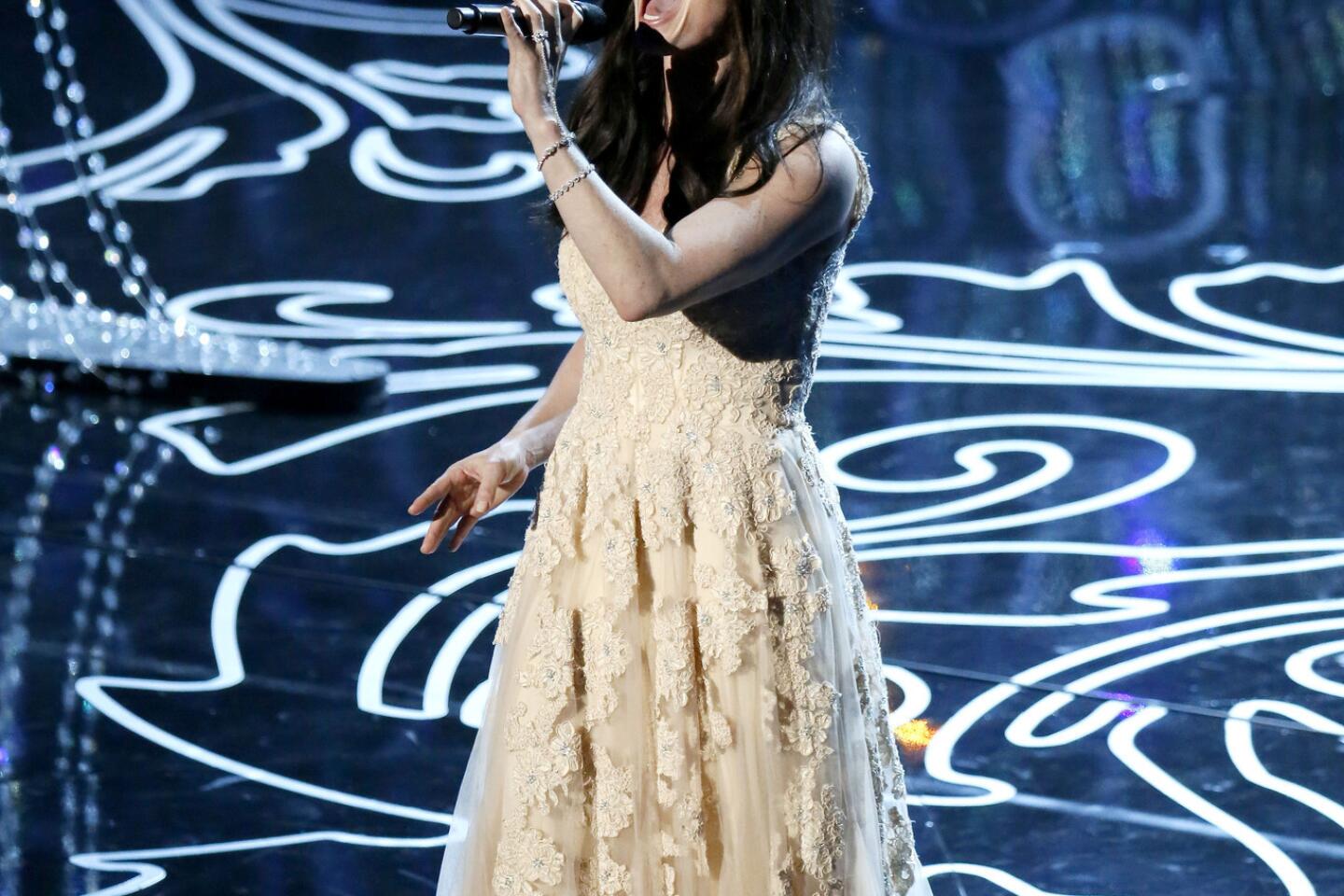
MORE: Oscars 2014: Idina Menzel sings Oscar-winning ‘Let It Go’ from ‘Frozen’
Idina Menzel replaced by ‘Adele Dazeem’ in ‘If/Then’ playbill joke
Adele Dazeem (Idina Menzel) saluted at ‘The Book of Mormon’ (Robert Gauthier / Los Angeles Times)
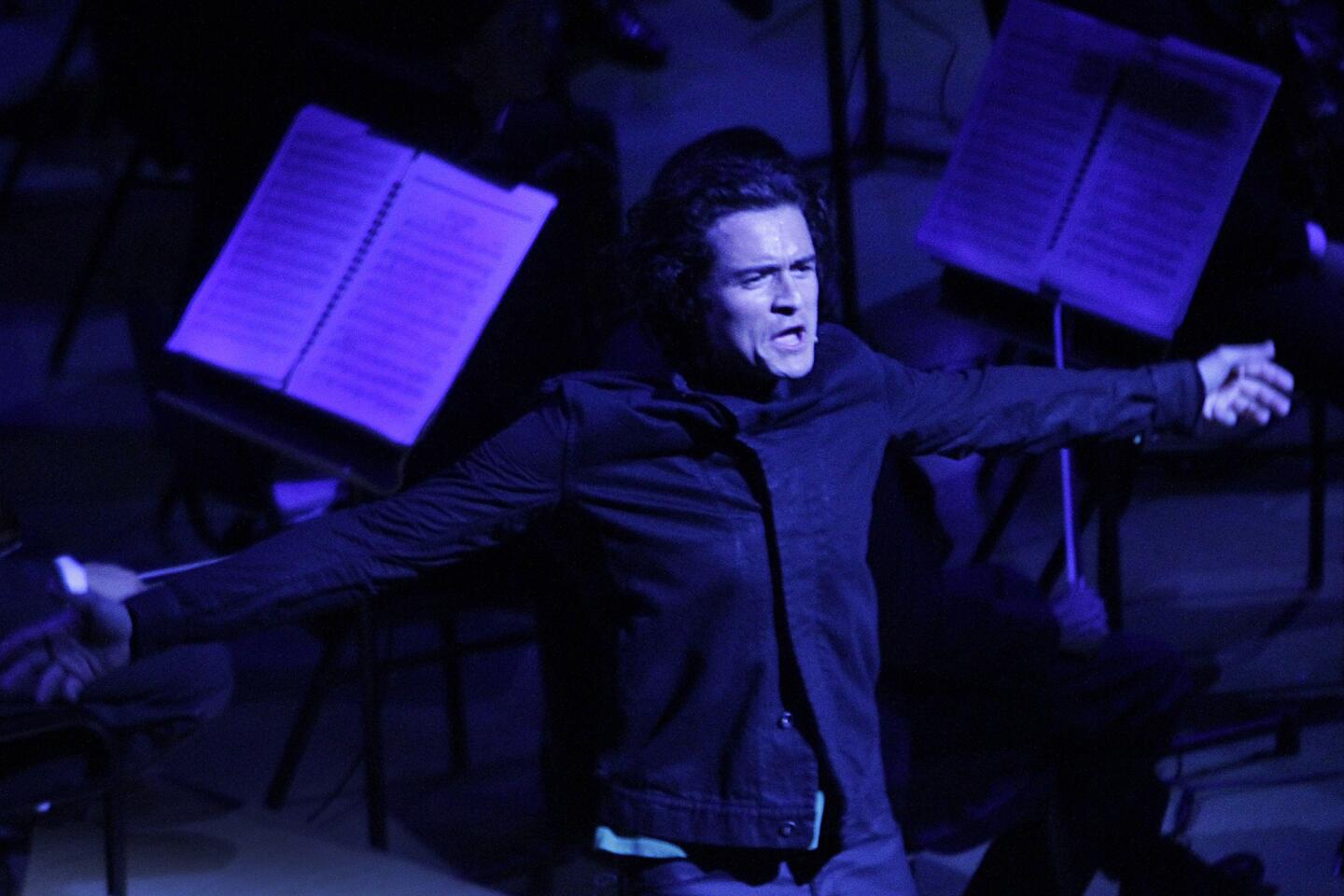
MORE: Orlando Bloom, Joe Morton brighten TchaikovskyFest at Disney Hall
REVIEW: Tchaikovsky on a grand scale (Lawrence K. Ho / Los Angeles Times)
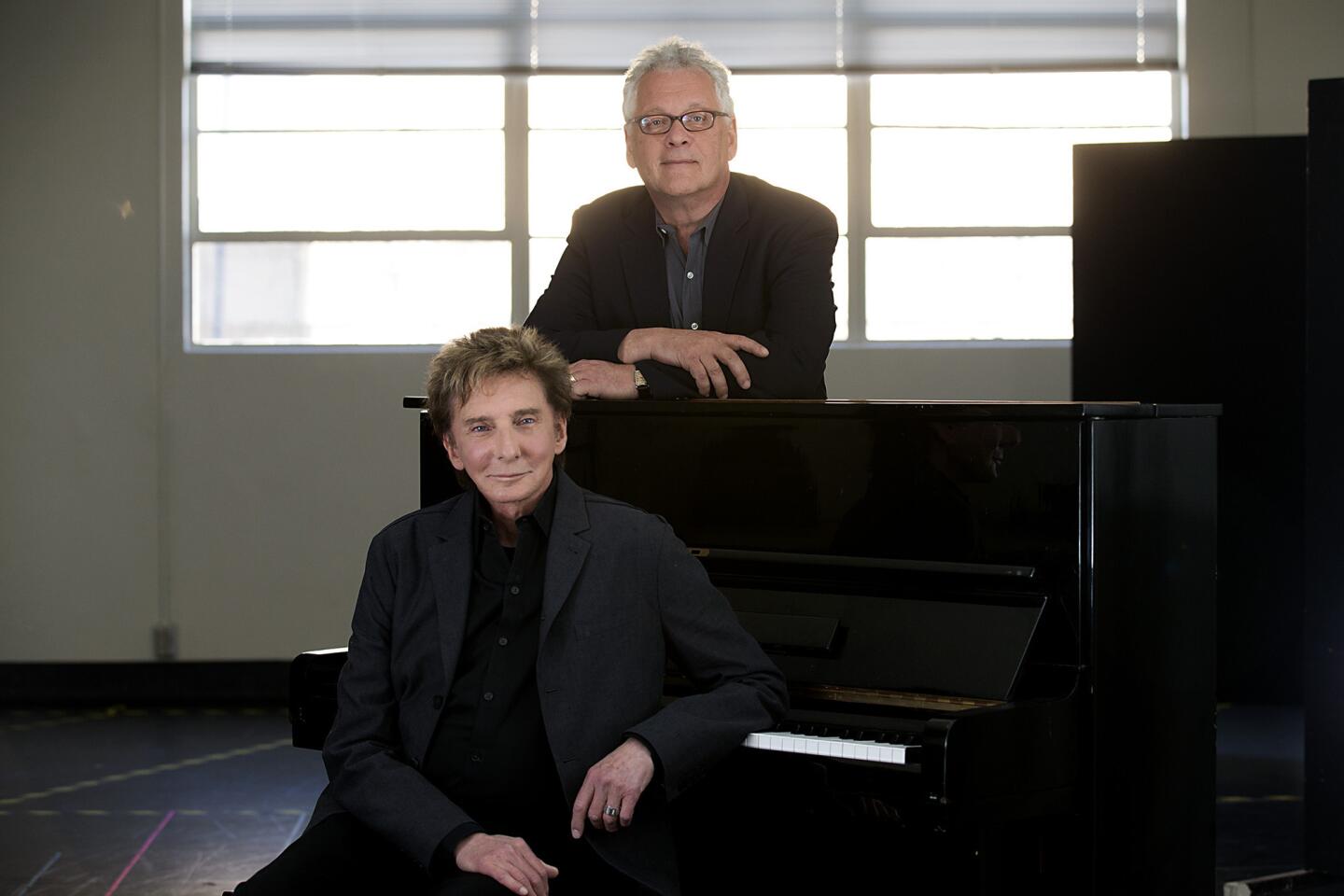
REVIEW: Barry Manilow’s ‘Harmony’ musical can sing but needs work (Luis Sinco / Los Angeles Times)
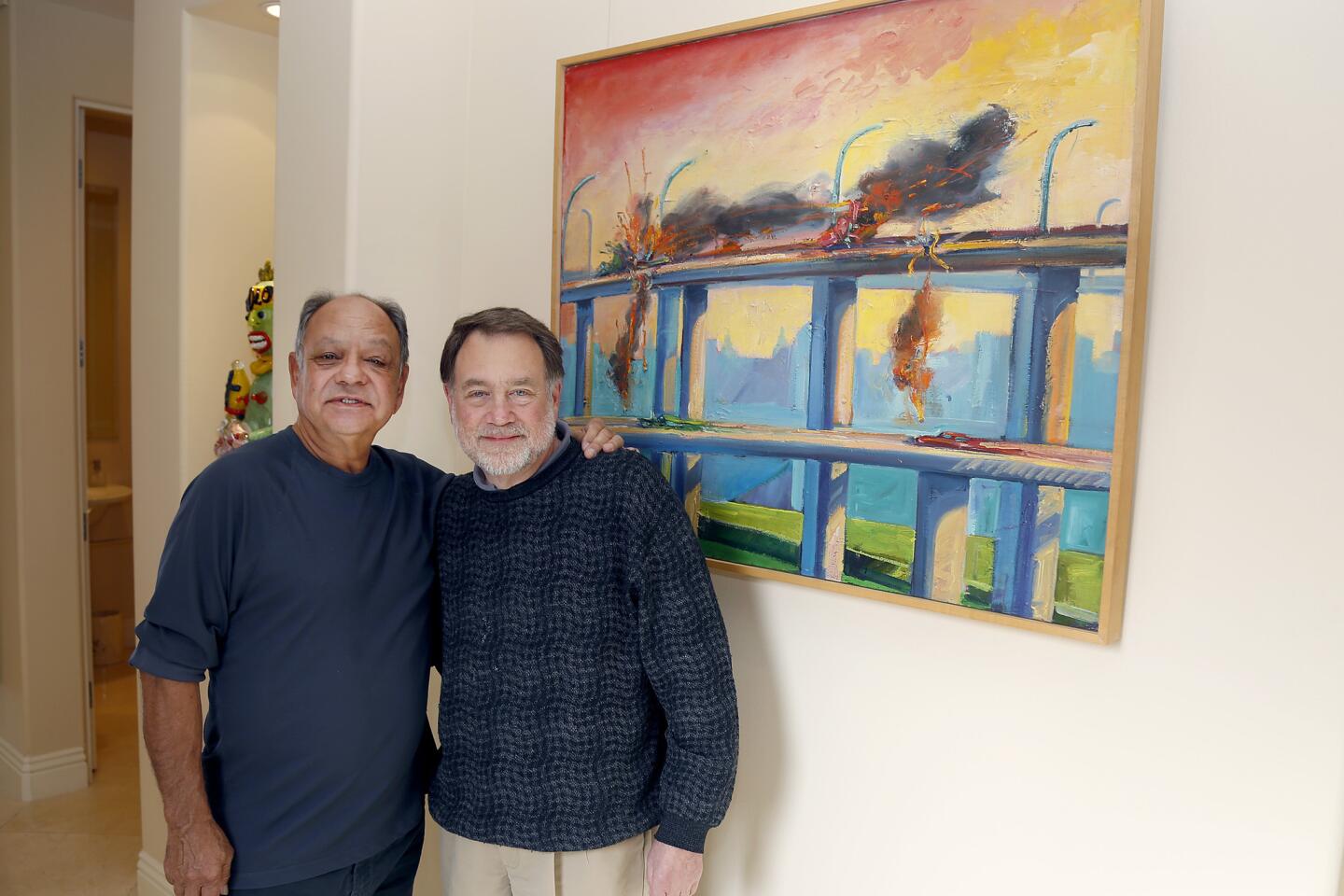
MORE: Carlos Almaraz’s time is coming, nearly 30 years after death (Kirk McKoy / Los Angeles Times)
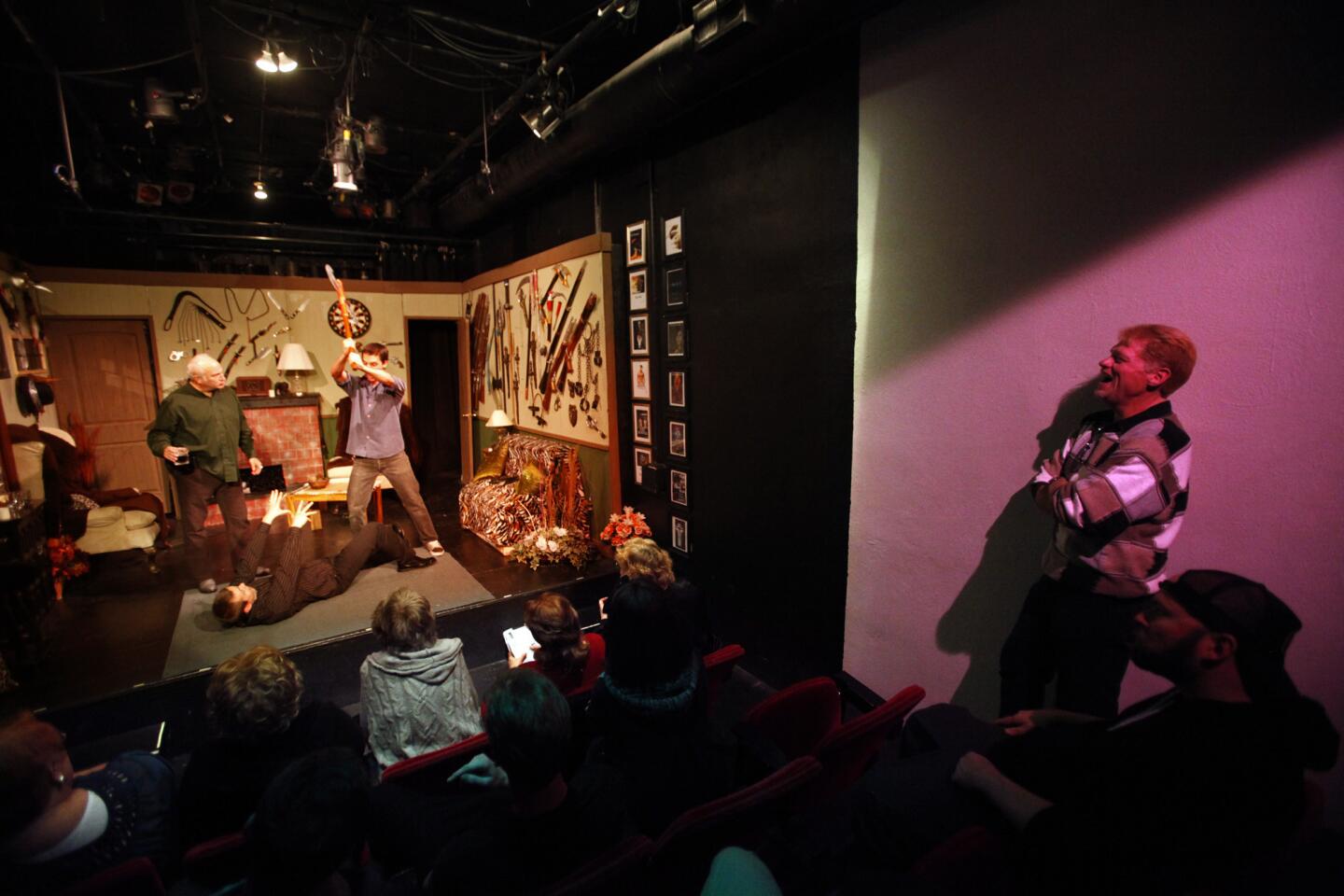
MORE: Hollywood’s Theatre Row sees exits stage right, left as scene changes
INTERACTIVE: Hollywood’s Theatre Row (Genaro Molina / Los Angeles Times)
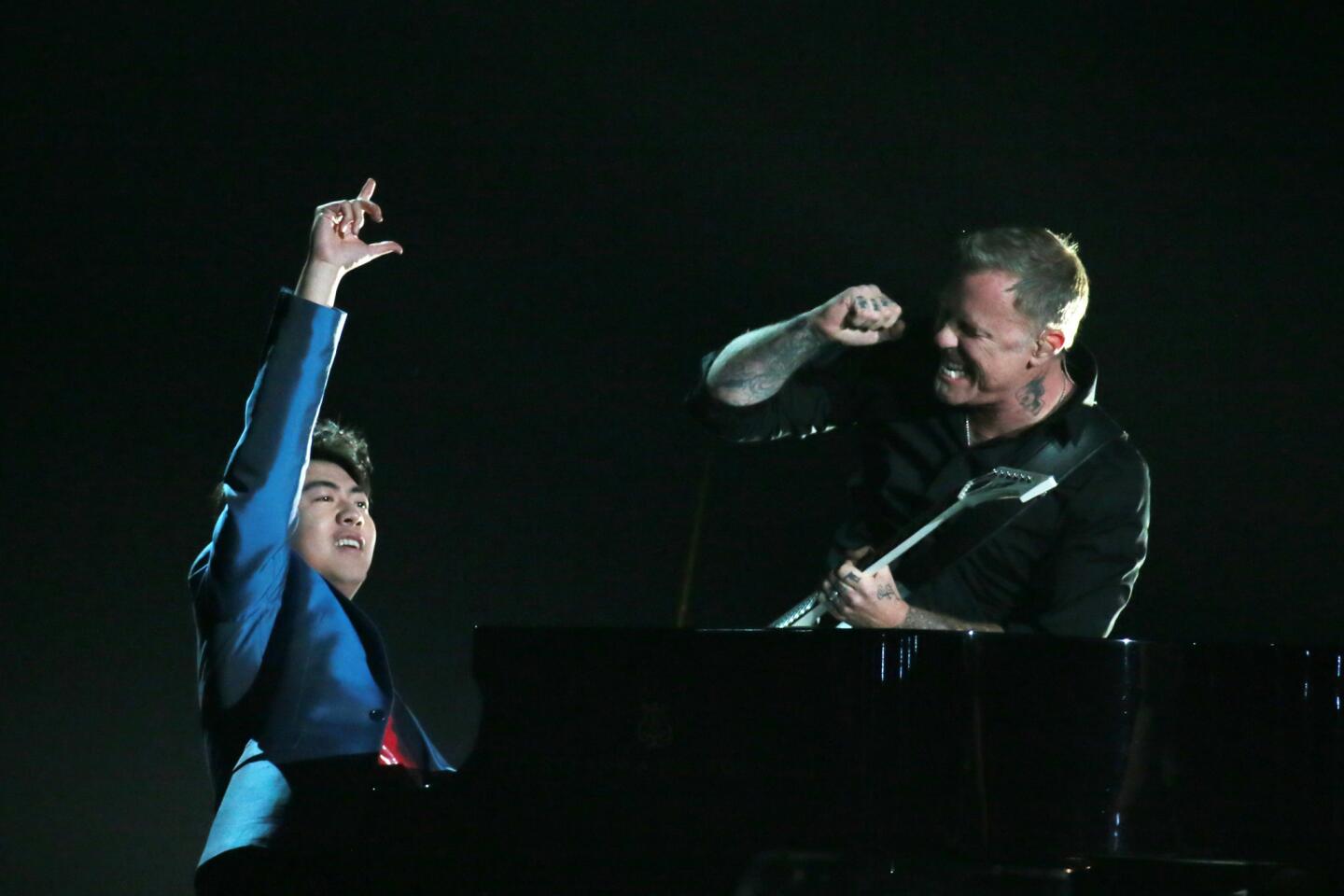
More: Grammys 2014: Lang Lang performs ‘One’ with Metallica (Robert Gauthier / Los Angeles Times)
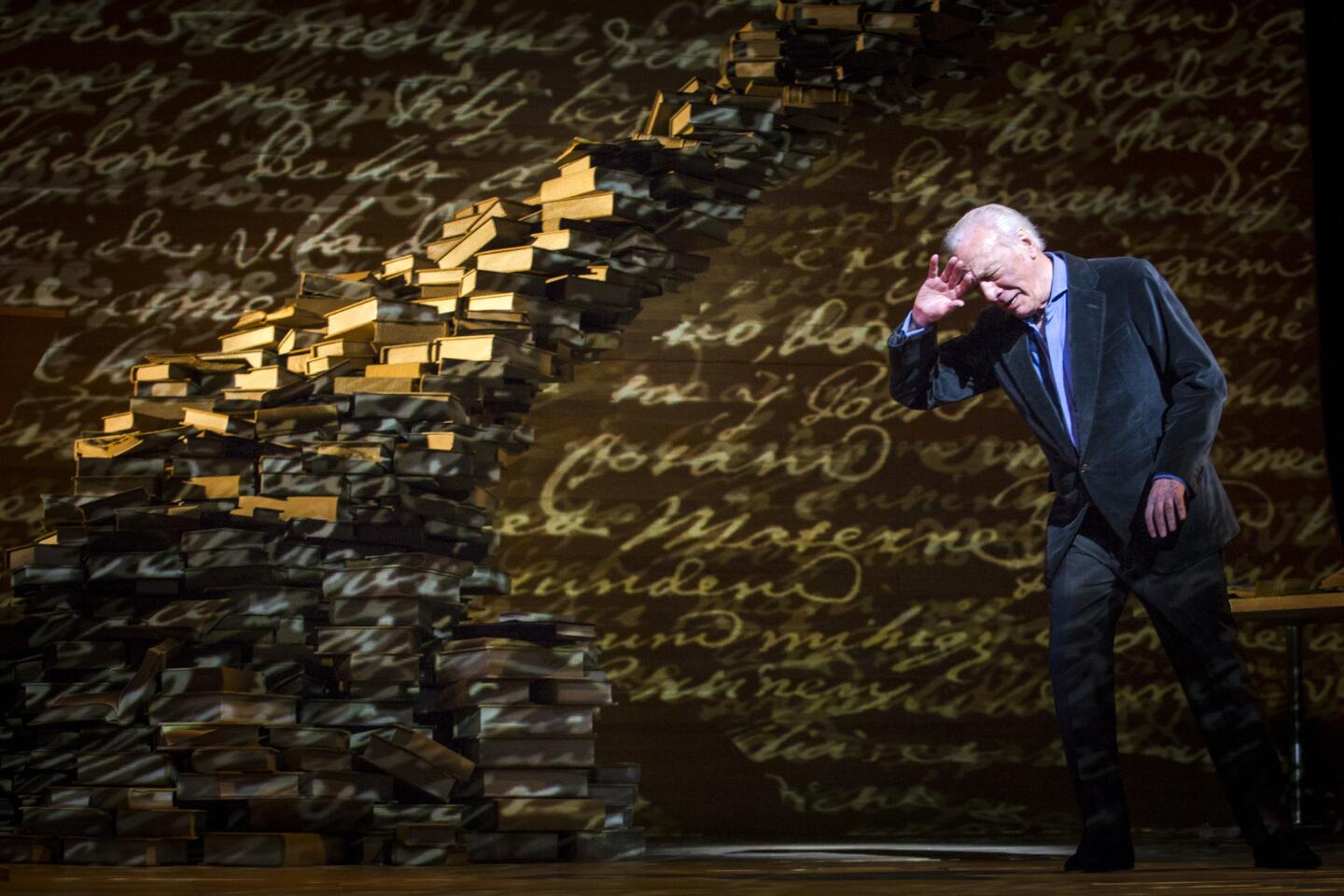
Review: Christopher Plummer, a man of letters, says ‘A Word or Two’ (Doriane Raiman / Los Angeles Times)
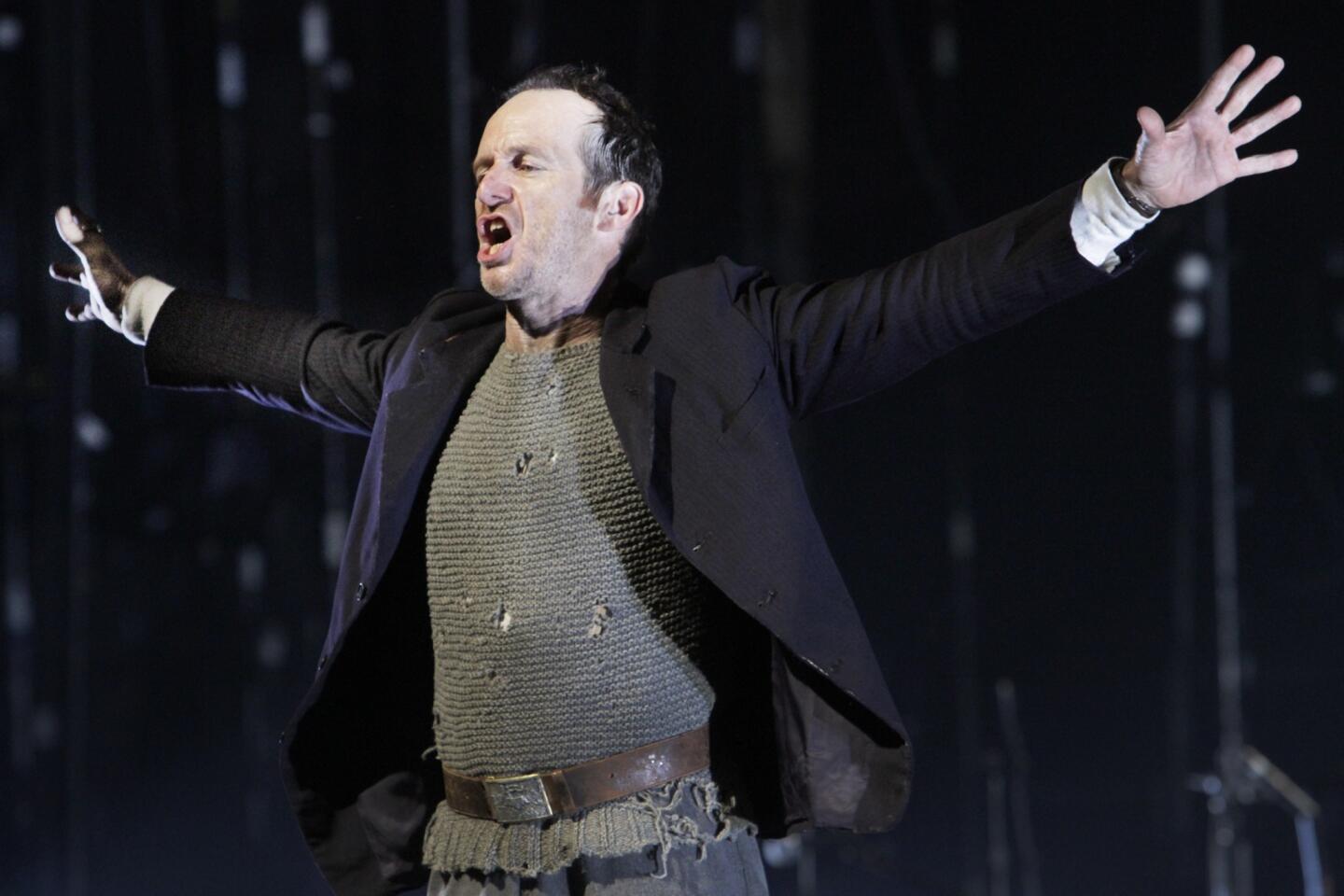
REVIEW: A poet embedded among troops lives to tell ‘An Iliad’ (Lawrence K. Ho / Los Angeles Times)
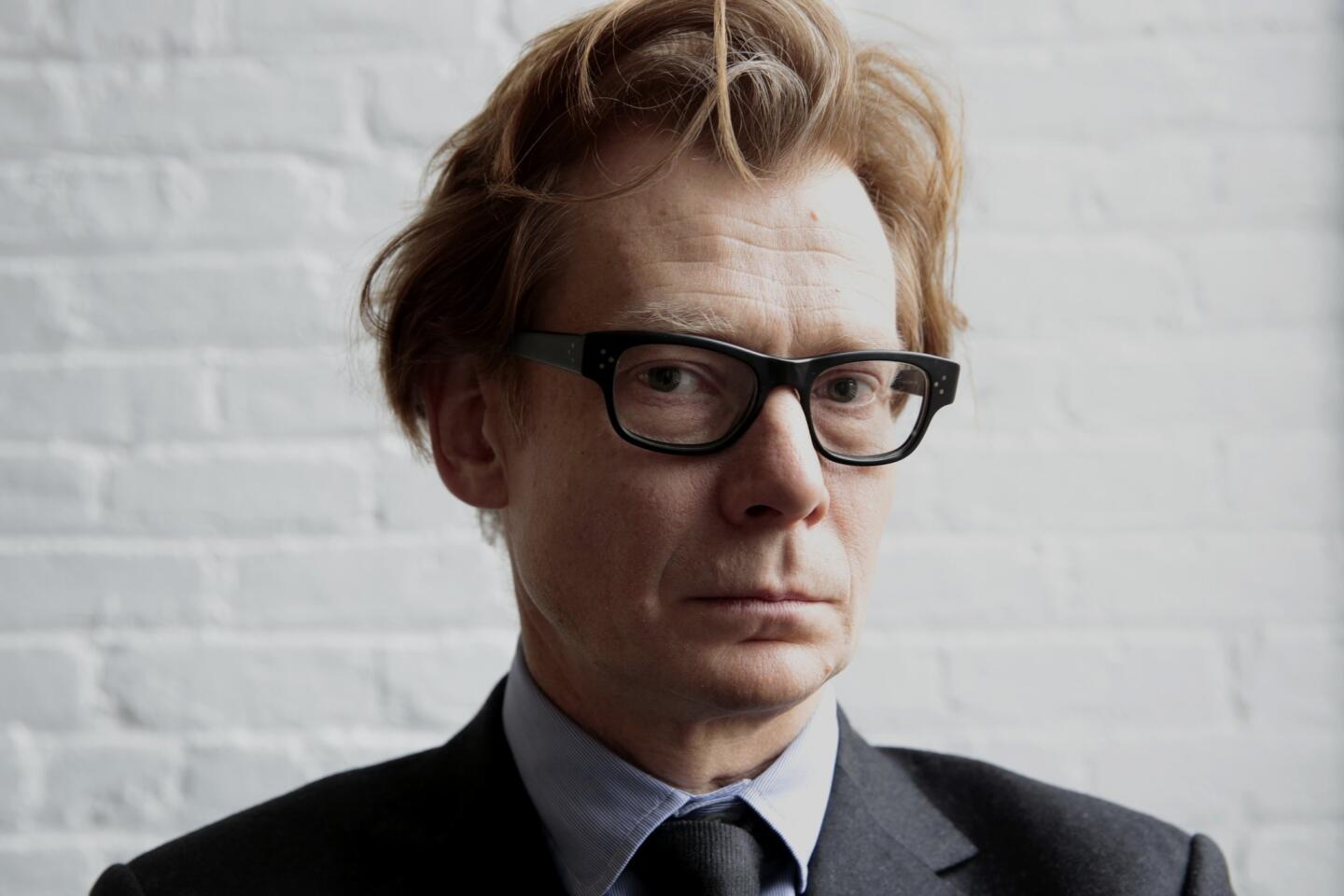
MORE: New MOCA director Philippe Vergne is a museum veteran
New MOCA director Philippe Vergne plans an artist-enabling museum (Carolyn Cole / Los Angeles Times)
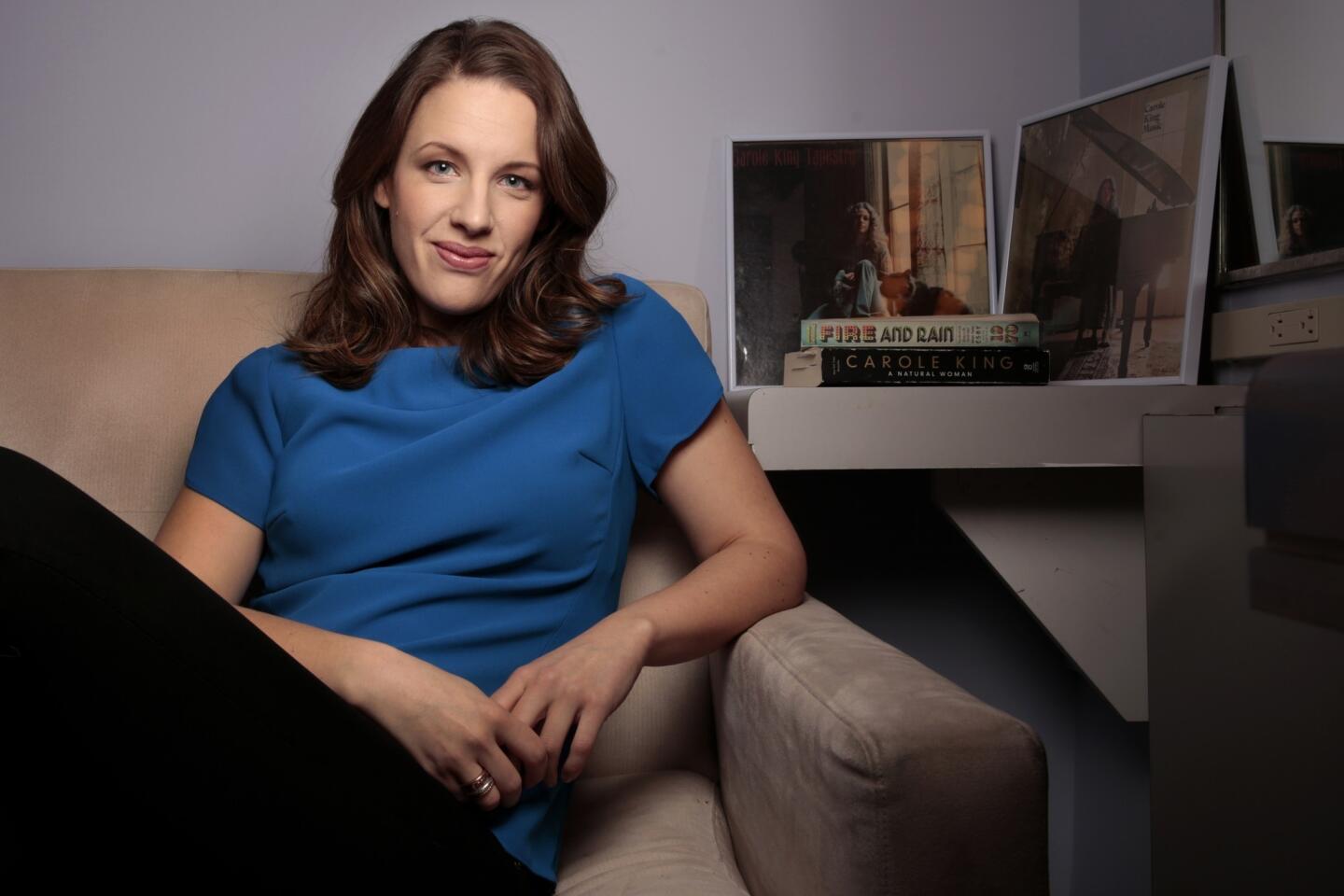
MORE: A ‘Beautiful’ tapestry of Carole King’s life (Carolyn Cole / Los Angeles Times)
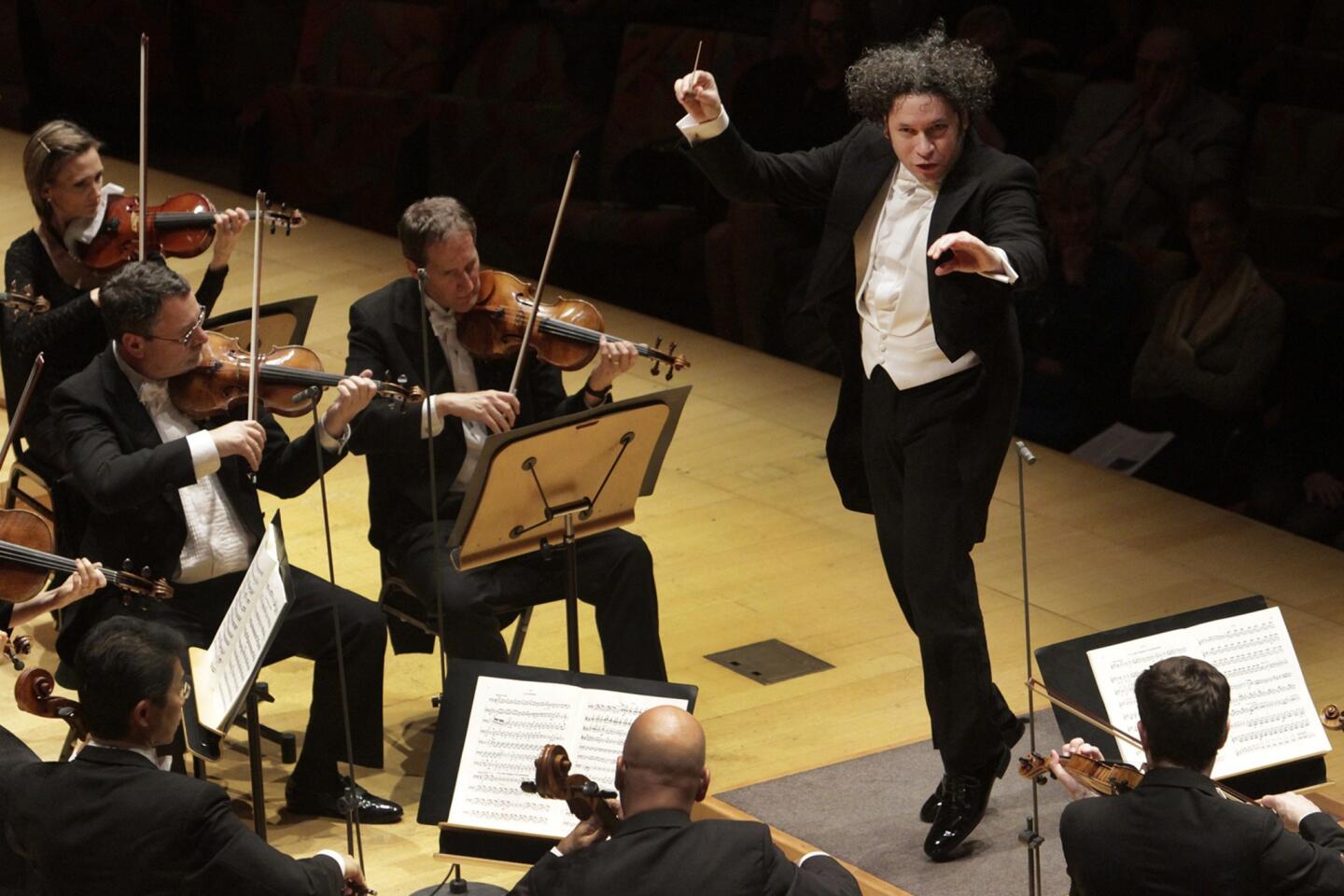
REVIEW: L.A. Phil, Dudamel reinvigorate Tchaikovsky’s ‘Nutcracker’ (Lawrence K. Ho / Los Angeles Times)
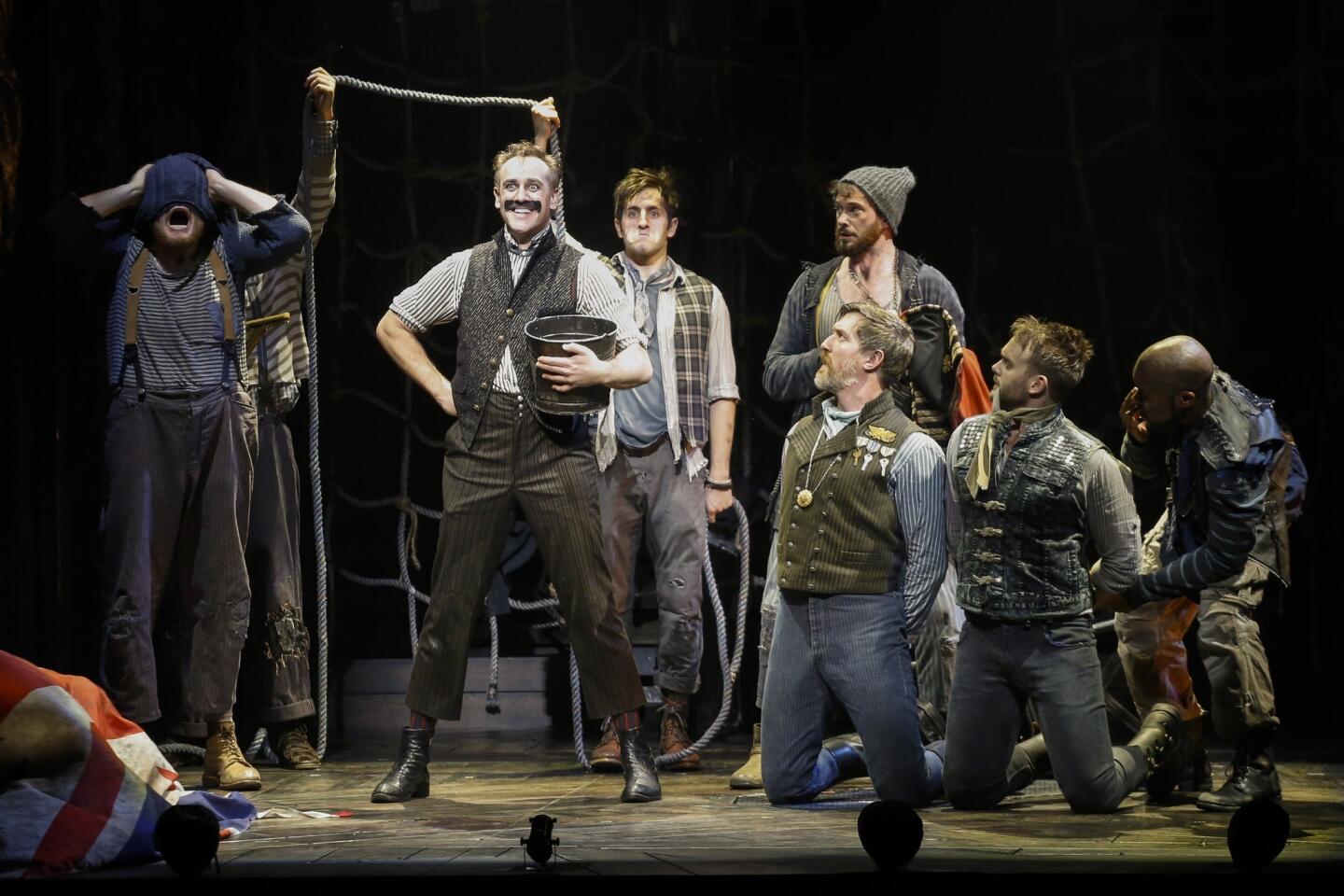
REVIEW: Lively ‘Peter and the Starcatcher’ make us believers again
MORE: Baddie role in ‘Peter and the Starcatcher’ hooked John Sanders (Jay L. Clendenin / Los Angeles Times)
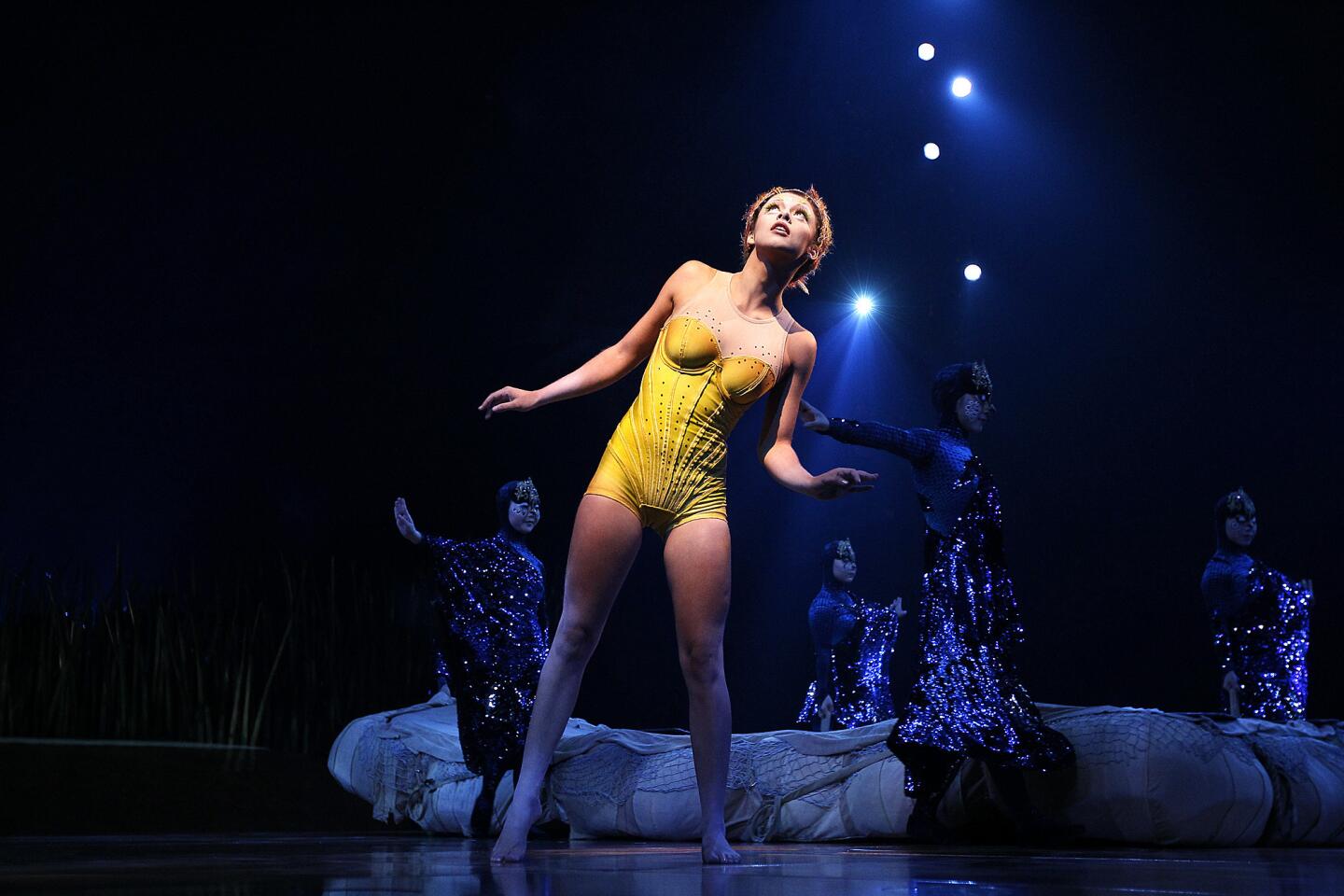
REVIEW: Cirque du Soleil’s ‘Totem’ a thrilling salute to human growth (Christina House / For the Times)
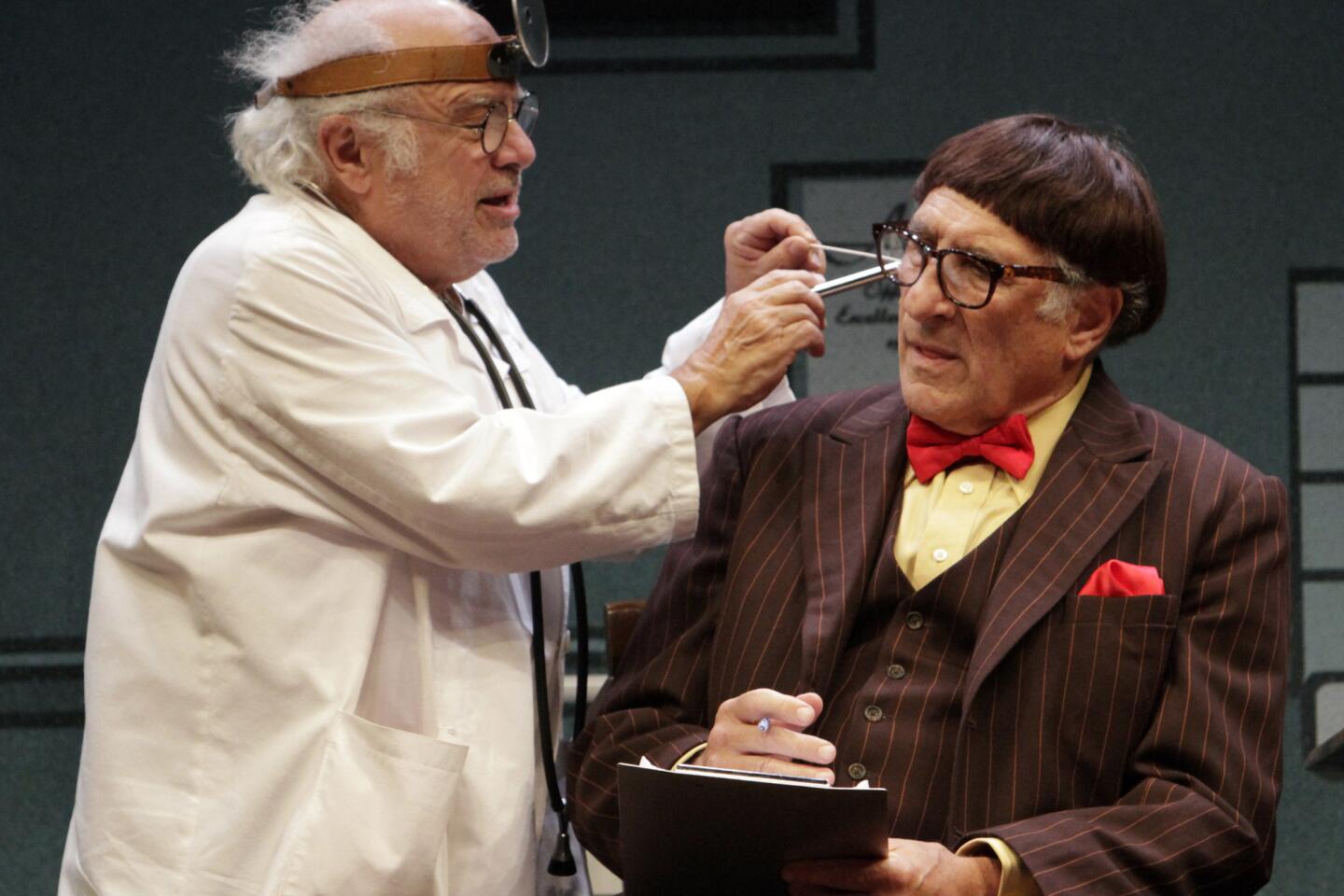
REVIEW: Time has overtaken ‘The Sunshine Boys’ (Lawrence K. Ho / Los Angeles Times)
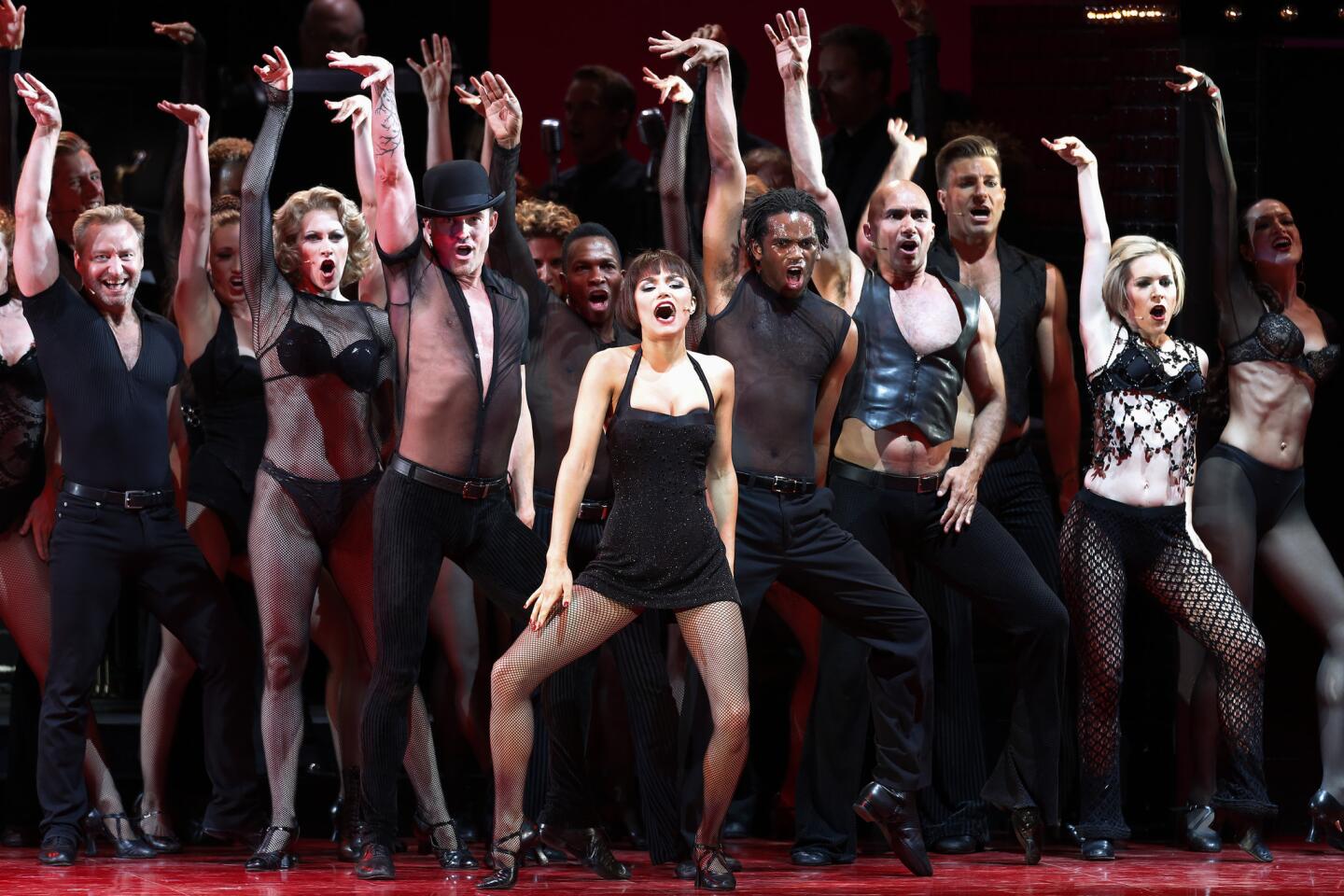
REVIEW: ‘Chicago’ storms into the Hollywood Bowl (Jay L. Clendenin / Los Angeles Times)
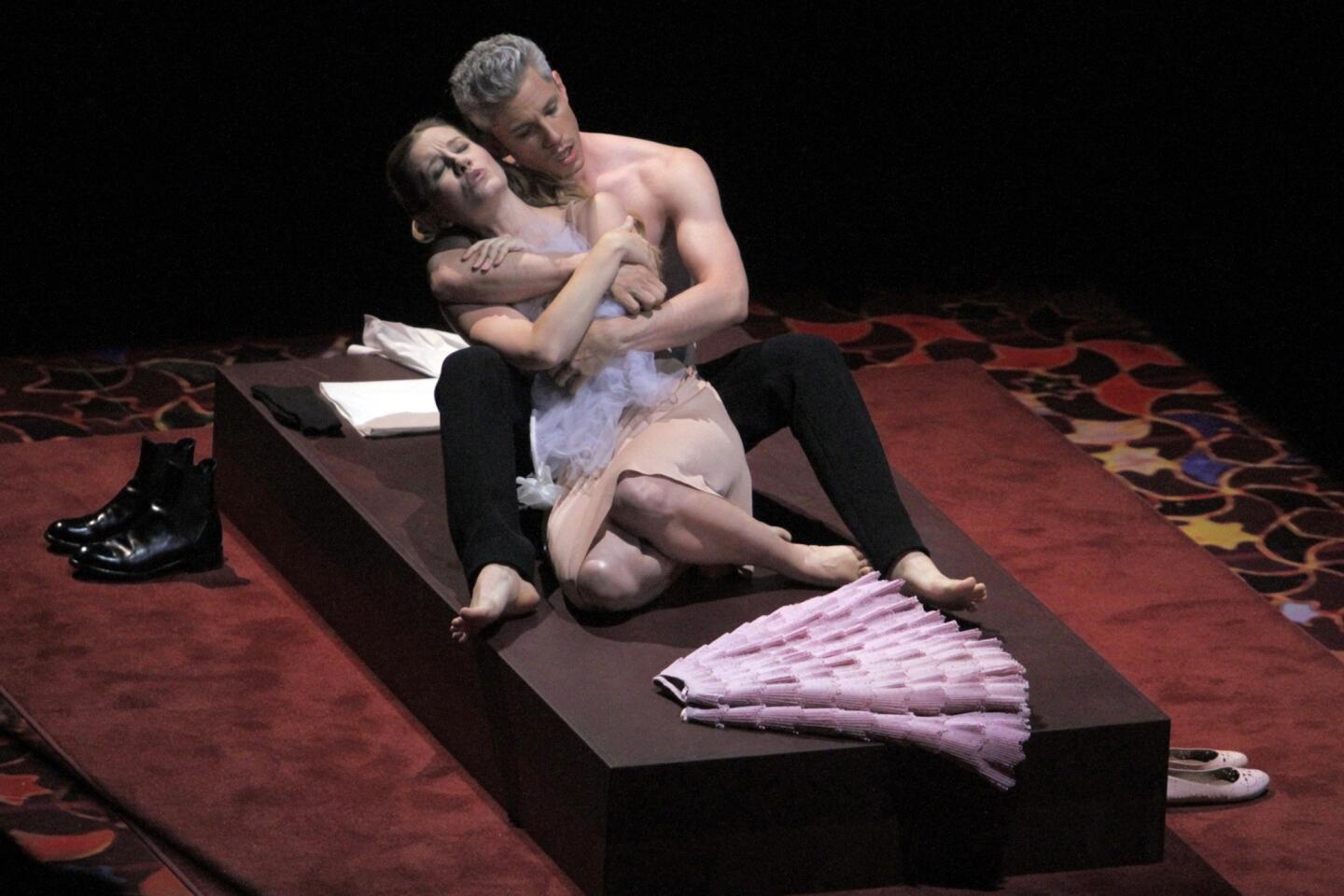
REVIEW: ‘Marriage of Figaro’ a wedding of many talents (Lawrence K. Ho / Los Angeles Times)
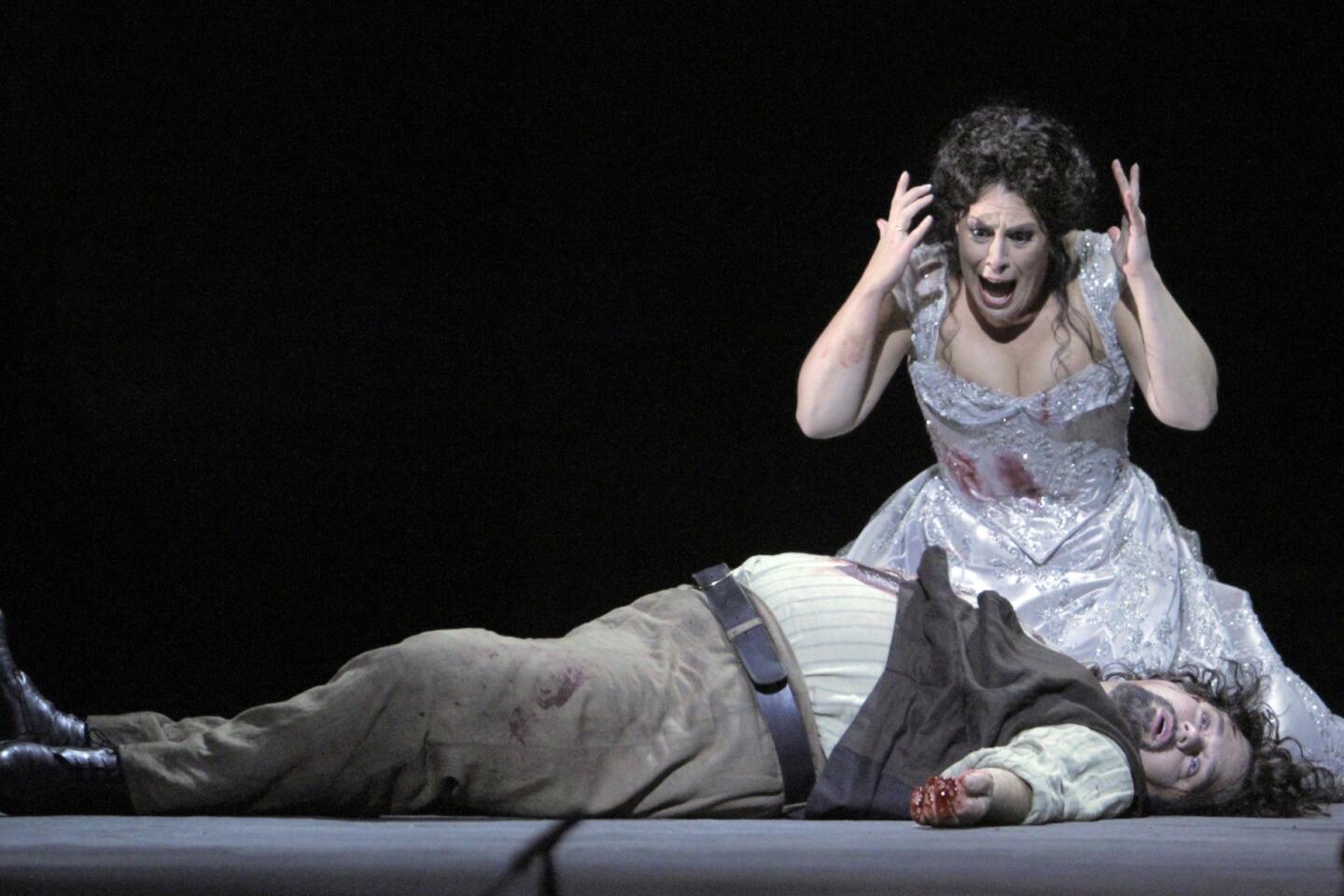
REVIEW: With ‘Tosca,’ Los Angeles Opera goes for grand (Lawrence K. Ho / Los Angeles Times)
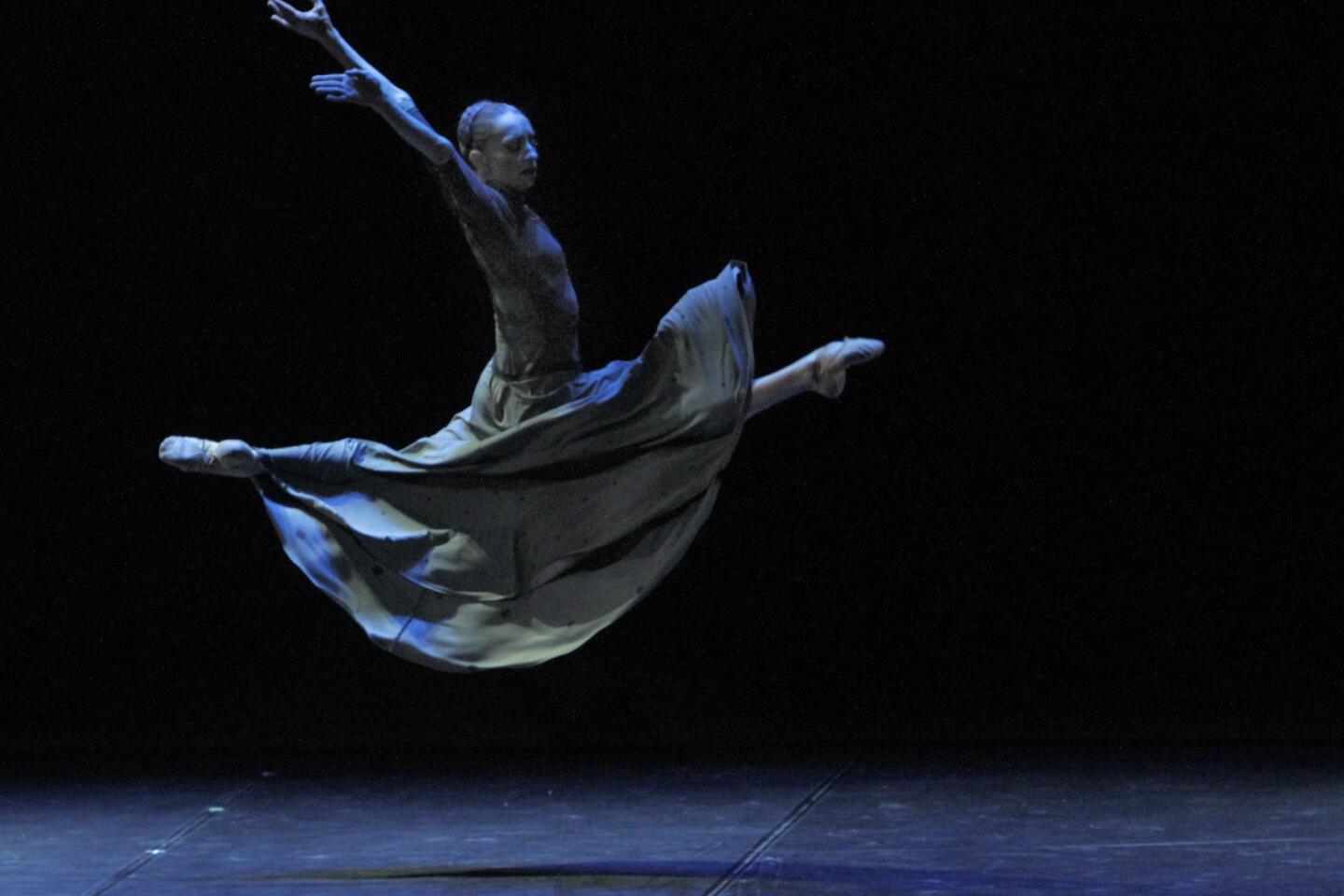
REVIEW: The collateral damage of genius in Boris Eifman’s ‘Rodin’ (Lawrence K. Ho / Los Angeles Times)
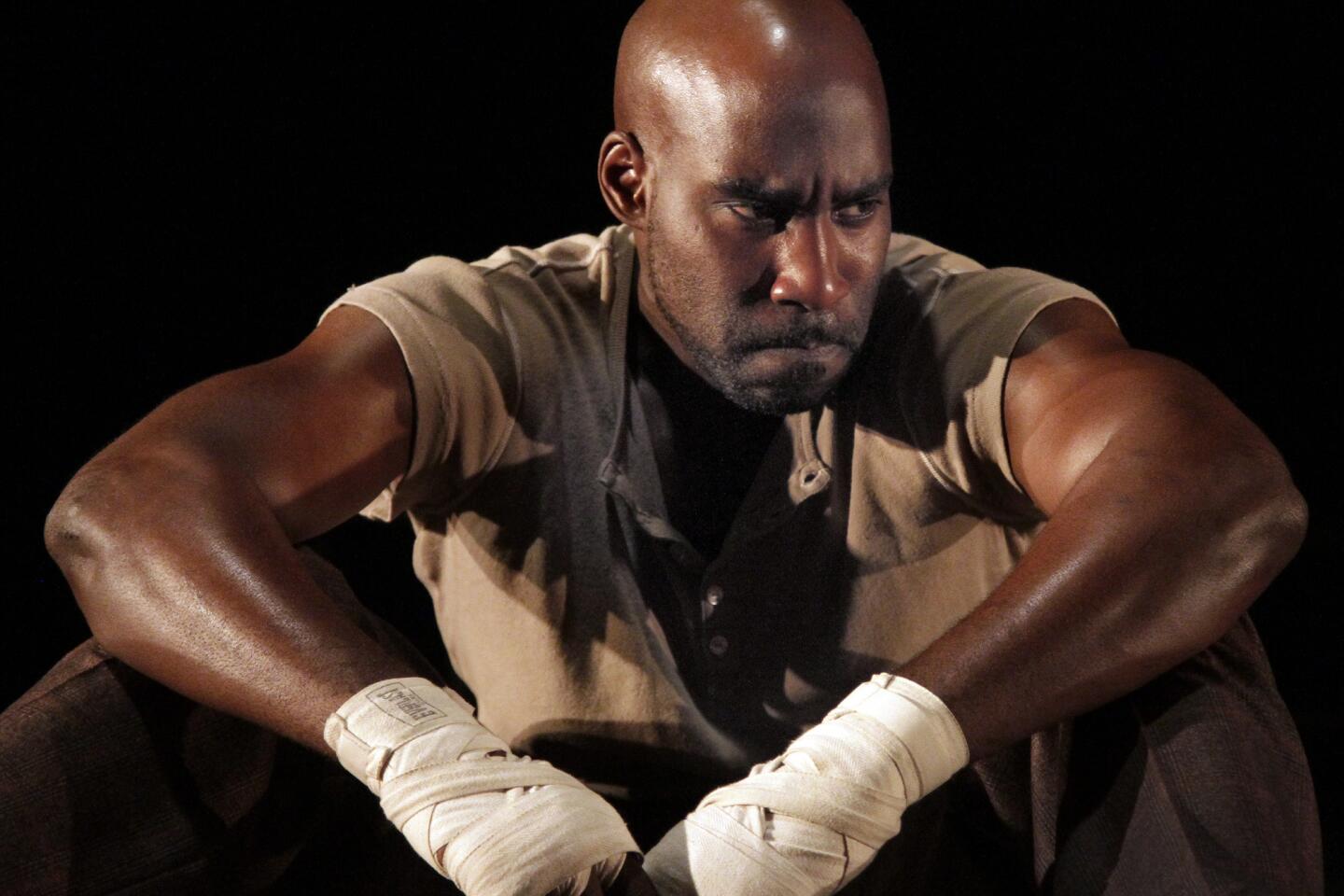
REVIEW: ‘The Royale’ punches well but has character issues (Lawrence K. Ho / Los Angeles Times)
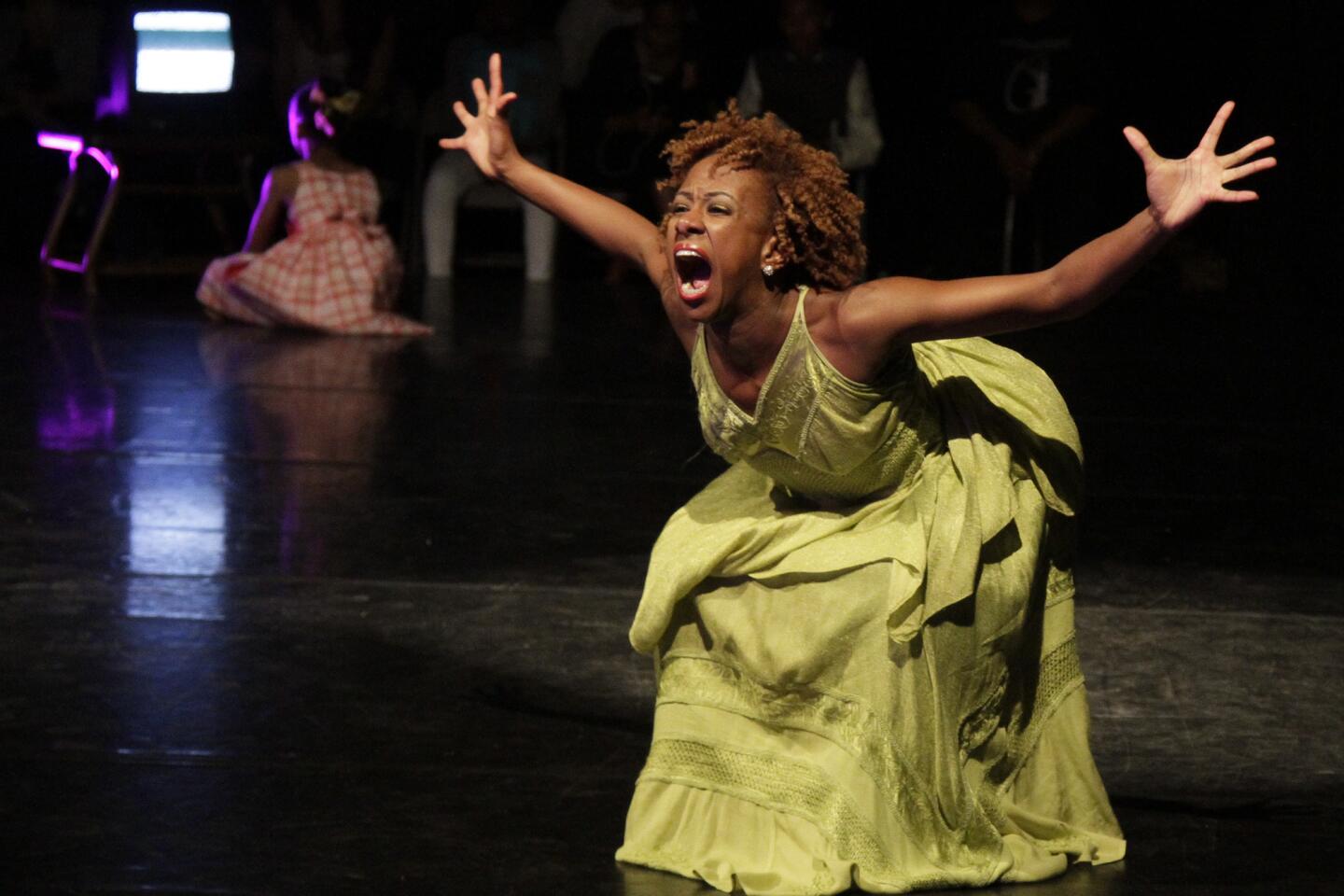
REVIEW: L.A. Dance Festival returns to boost homegrown dance (Lawrence K. Ho / Los Angeles Times)
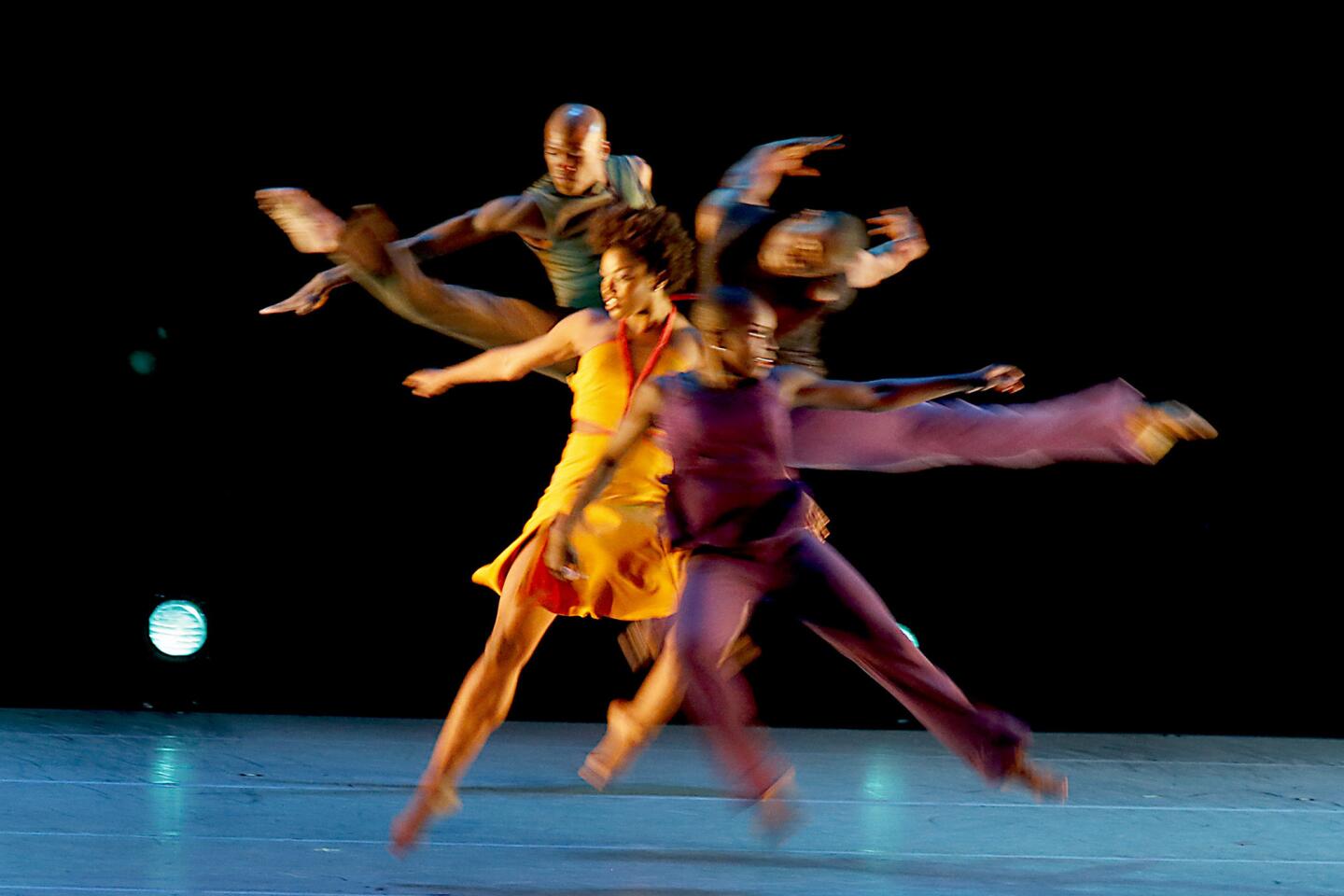
REVIEW: Sensual energy crackles in Alvin Ailey dance program (Luis Sinco / Los Angeles Times)
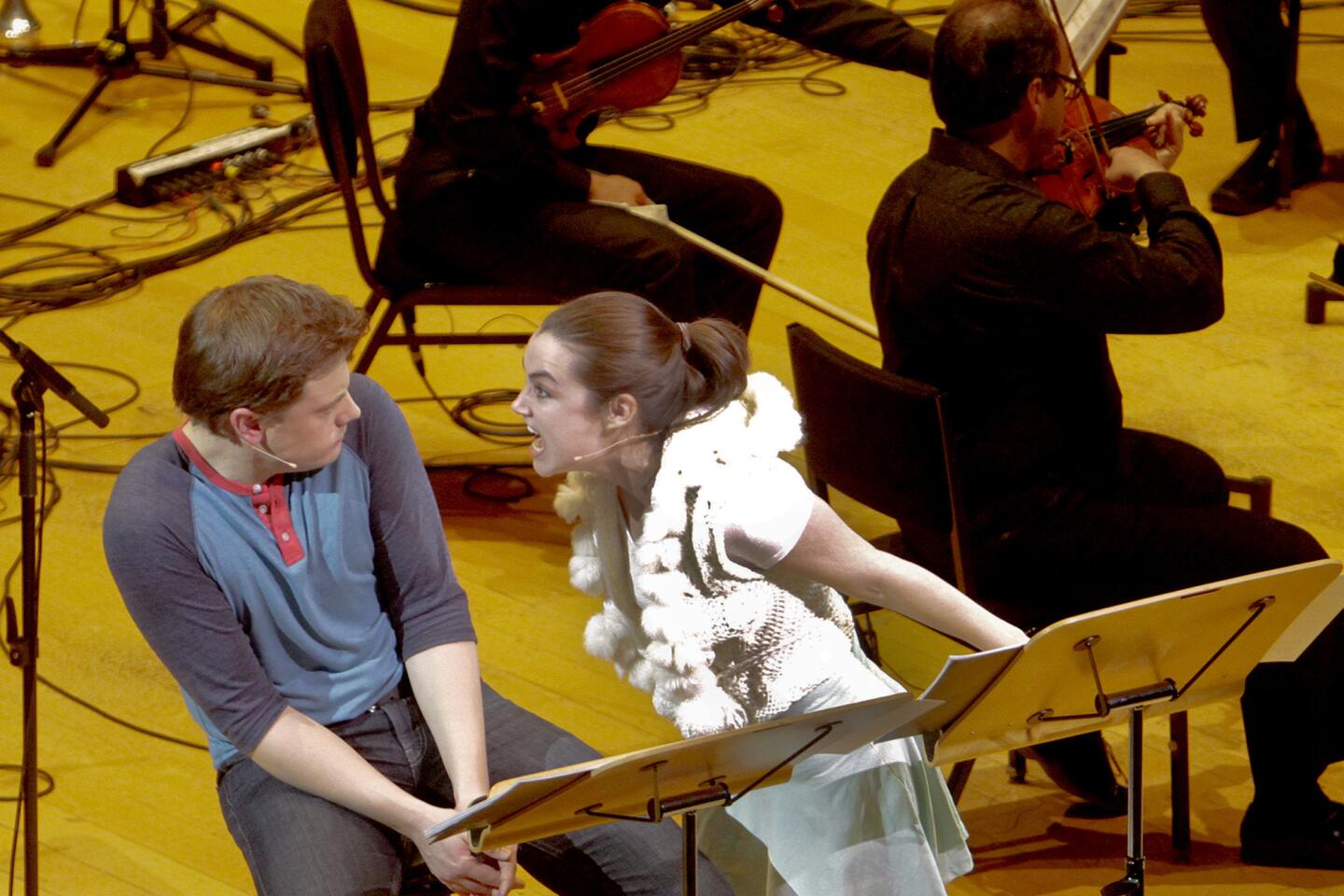
REVIEW: Aaron Copland as a hinge (Lawrence K. Ho / Los Angeles Times)
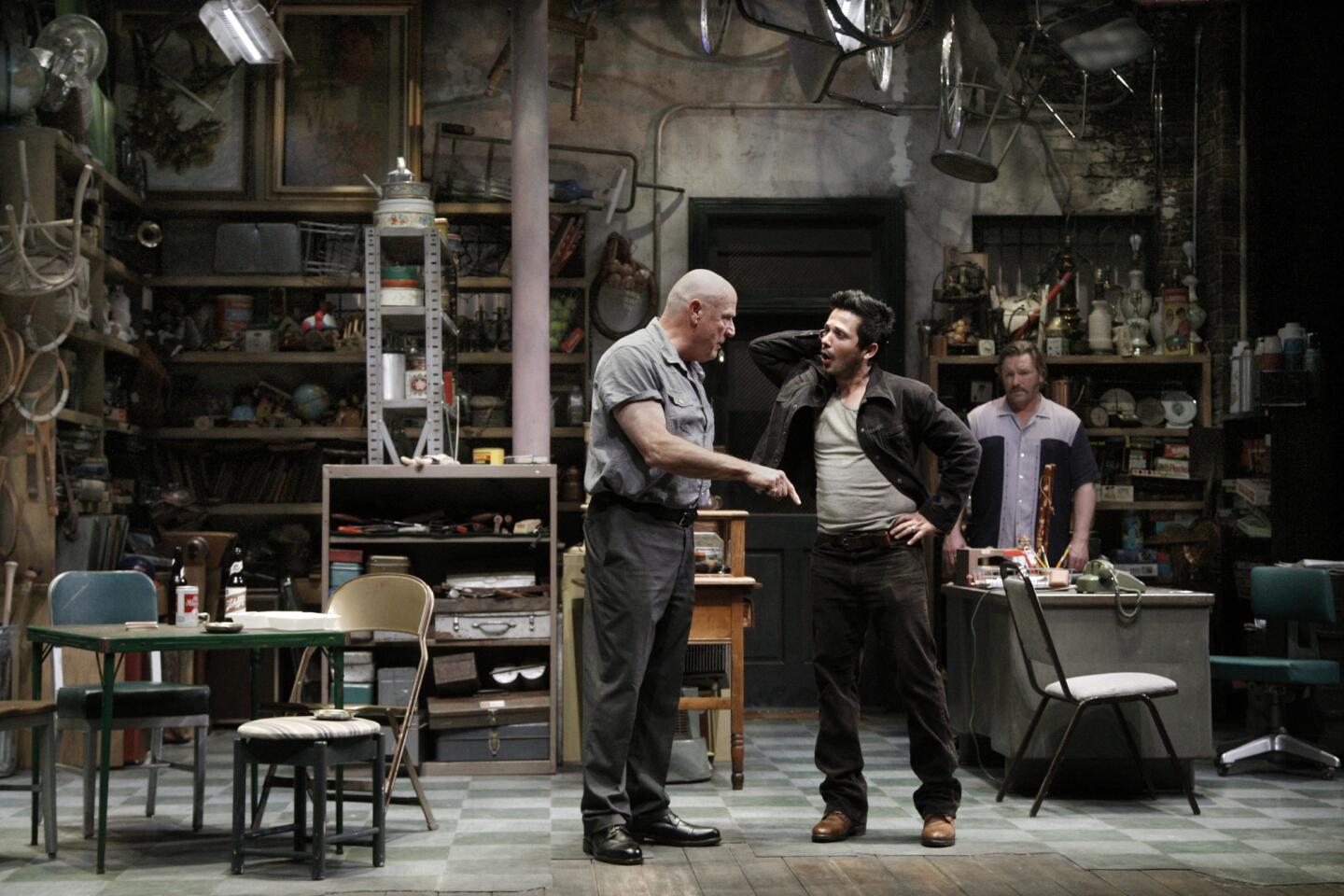
REVIEW: ‘American Buffalo’ at Geffen a refreshing dose of Mamet (Gary Friedman / Los Angeles Times)
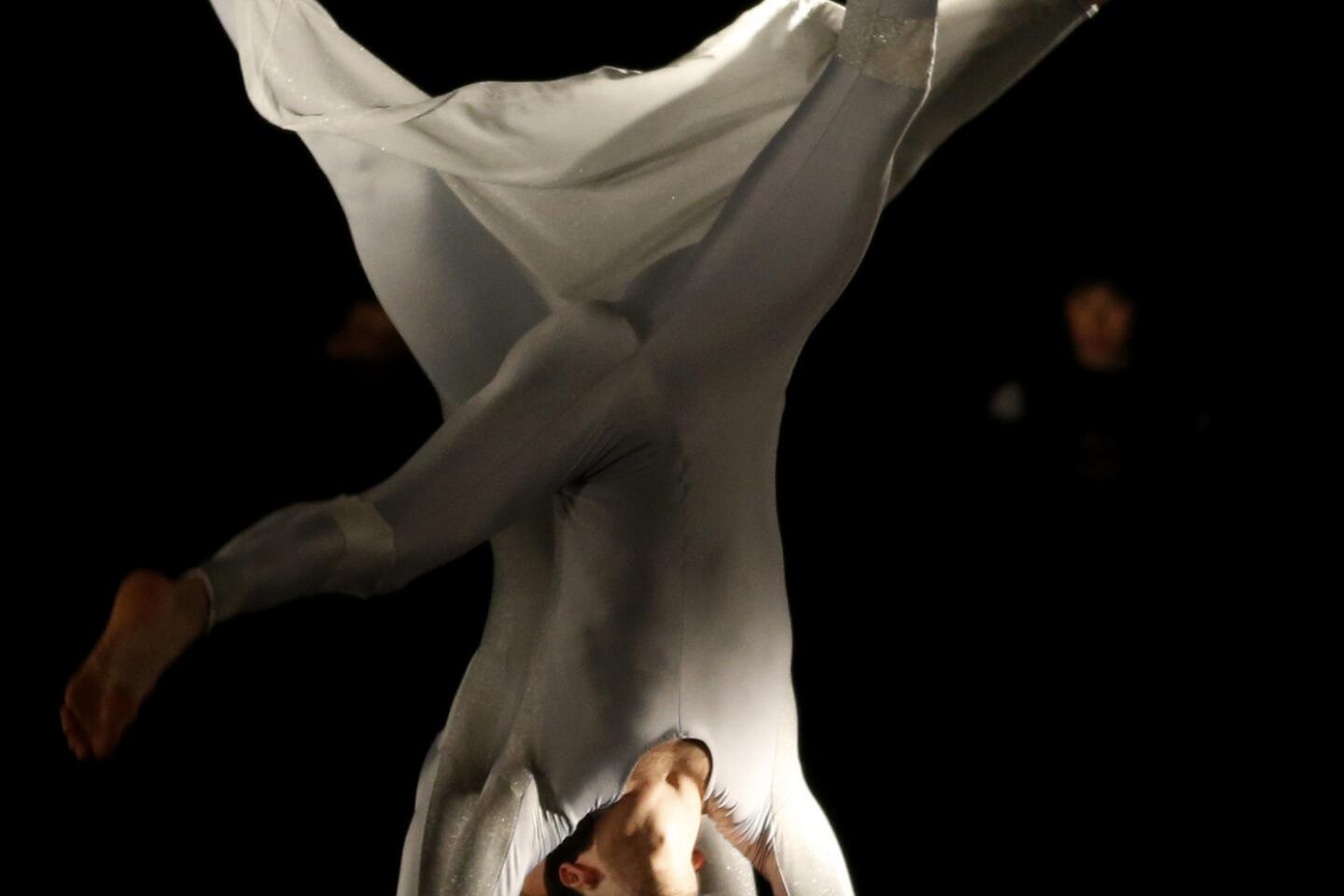
REVIEW: Flashes of lightning in Trisha Brown’s ‘Astral Converted’ (Luis Sinco / Los Angeles Times)
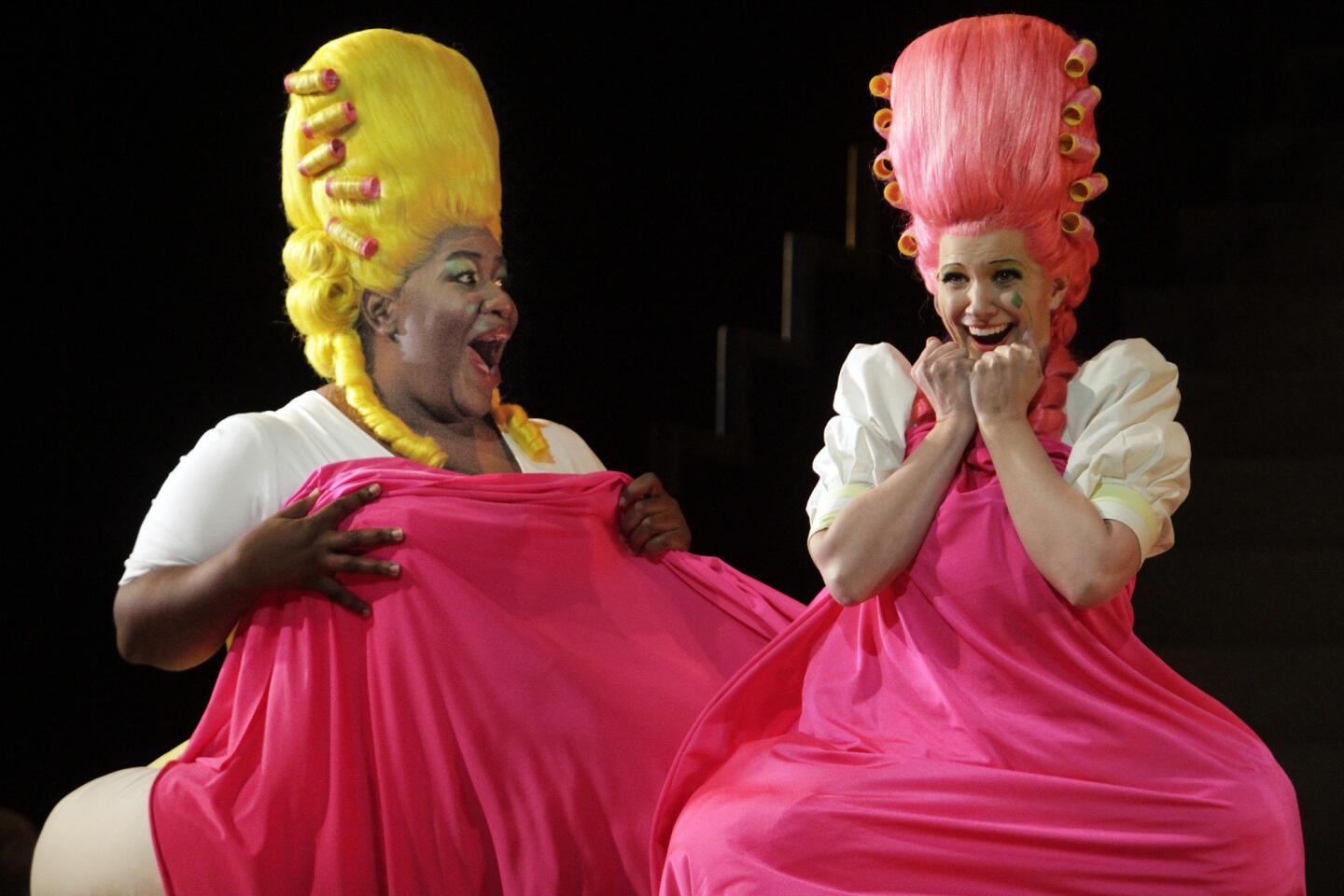
REVIEW: A new Cinderella at Los Angeles Opera makes an impression (Lawrence K. Ho / Los Angeles Times)
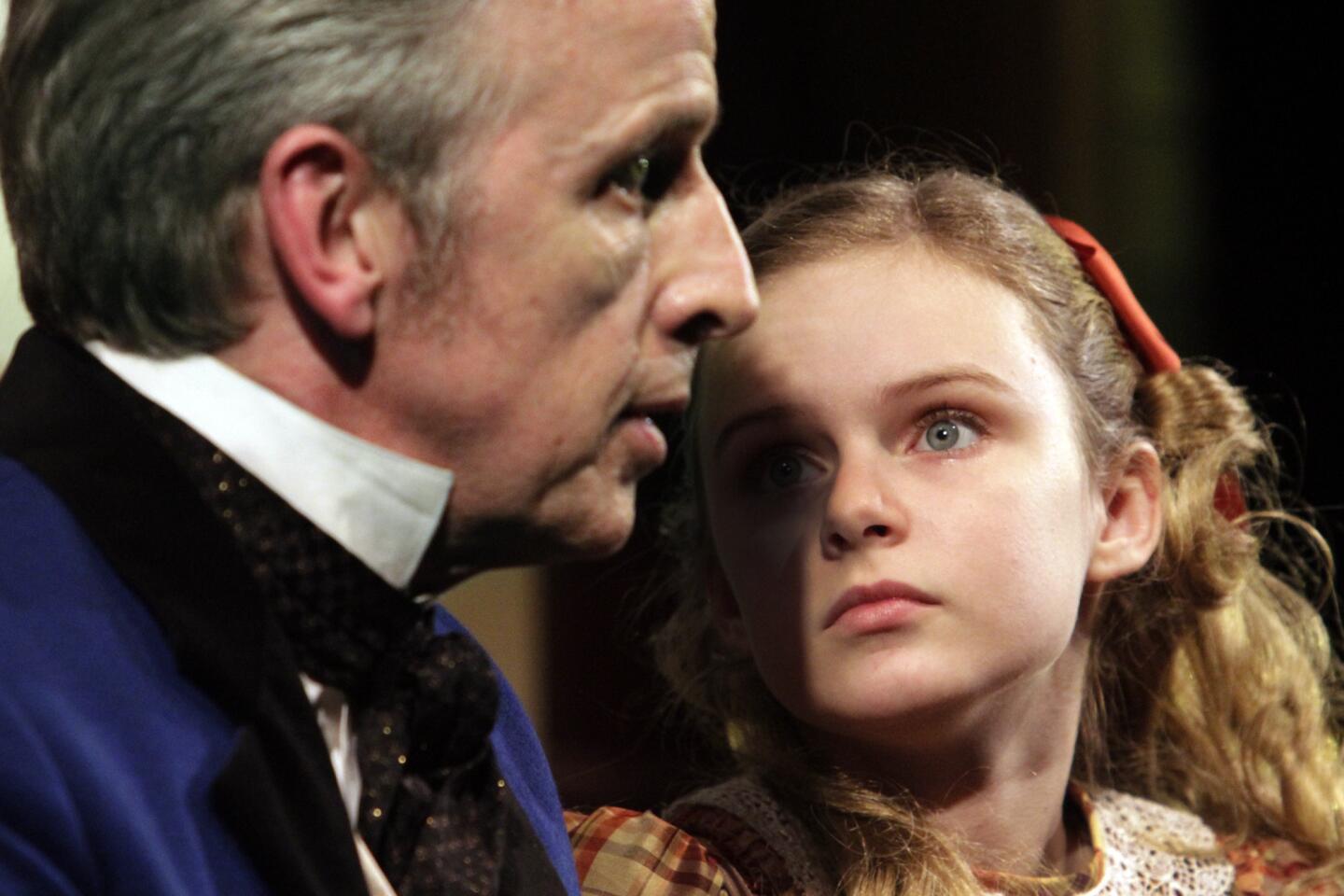
REVIEW: Ethical quandaries buzz in ‘The Nether’ (Lawrence K. Ho / Los Angeles Times)
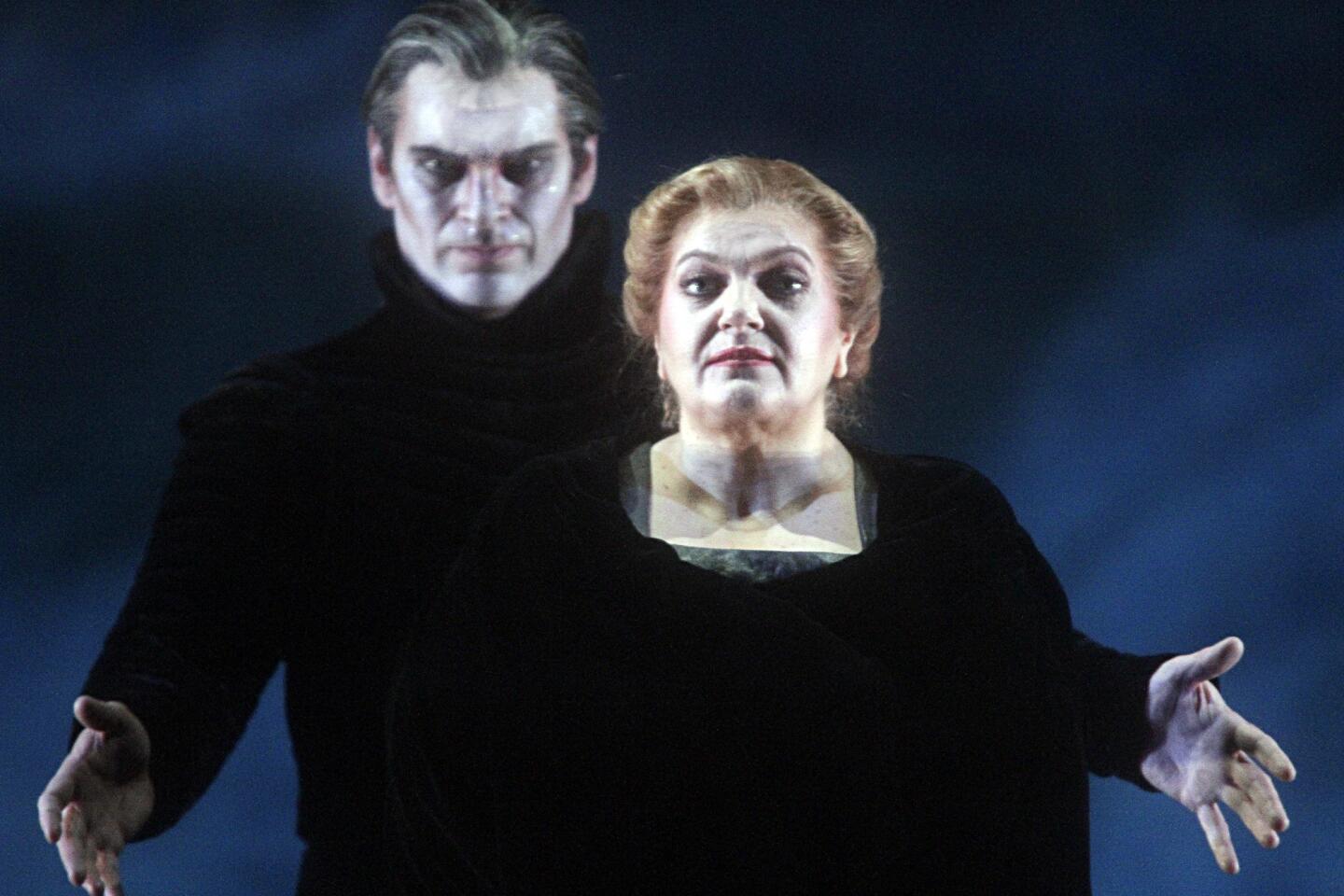
REVIEW: L.A. Opera’s ‘Flying Dutchman’ back in action (Lawrence K. Ho / Los Angeles Times)
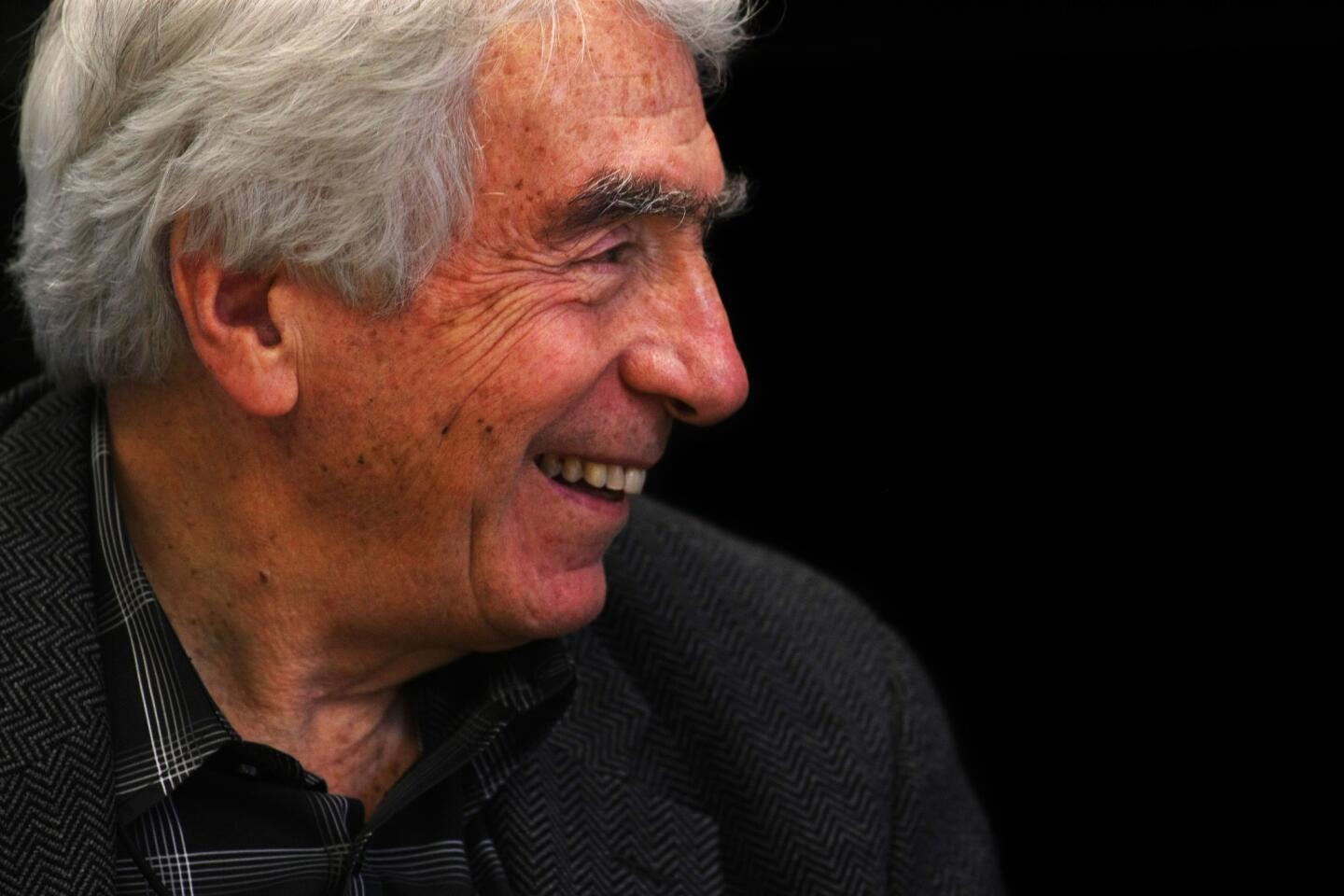
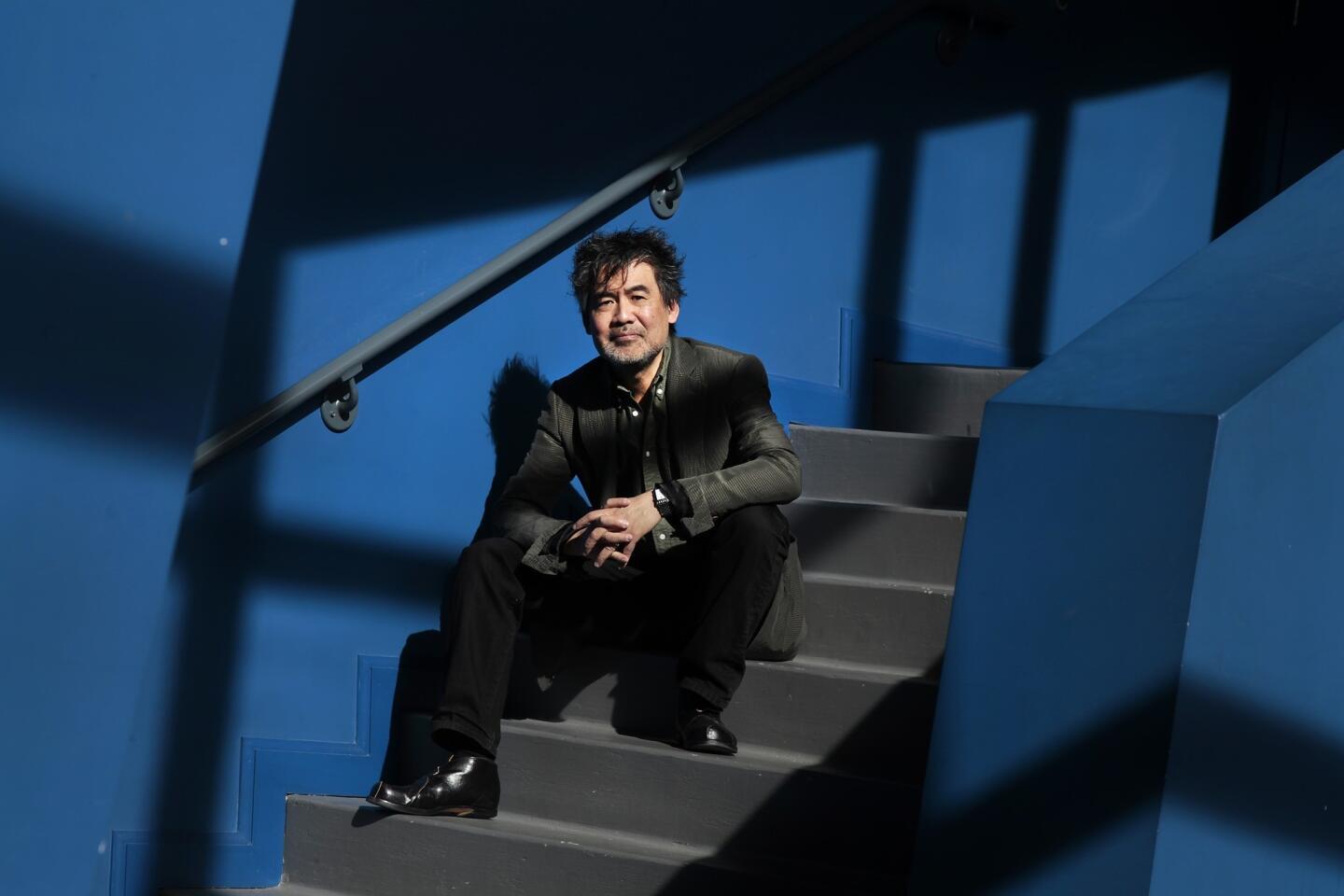
MORE: For David Henry Hwang’s ‘Chinglish,’ a case of bad timing in China (Rick Loomis / Los Angeles Times)
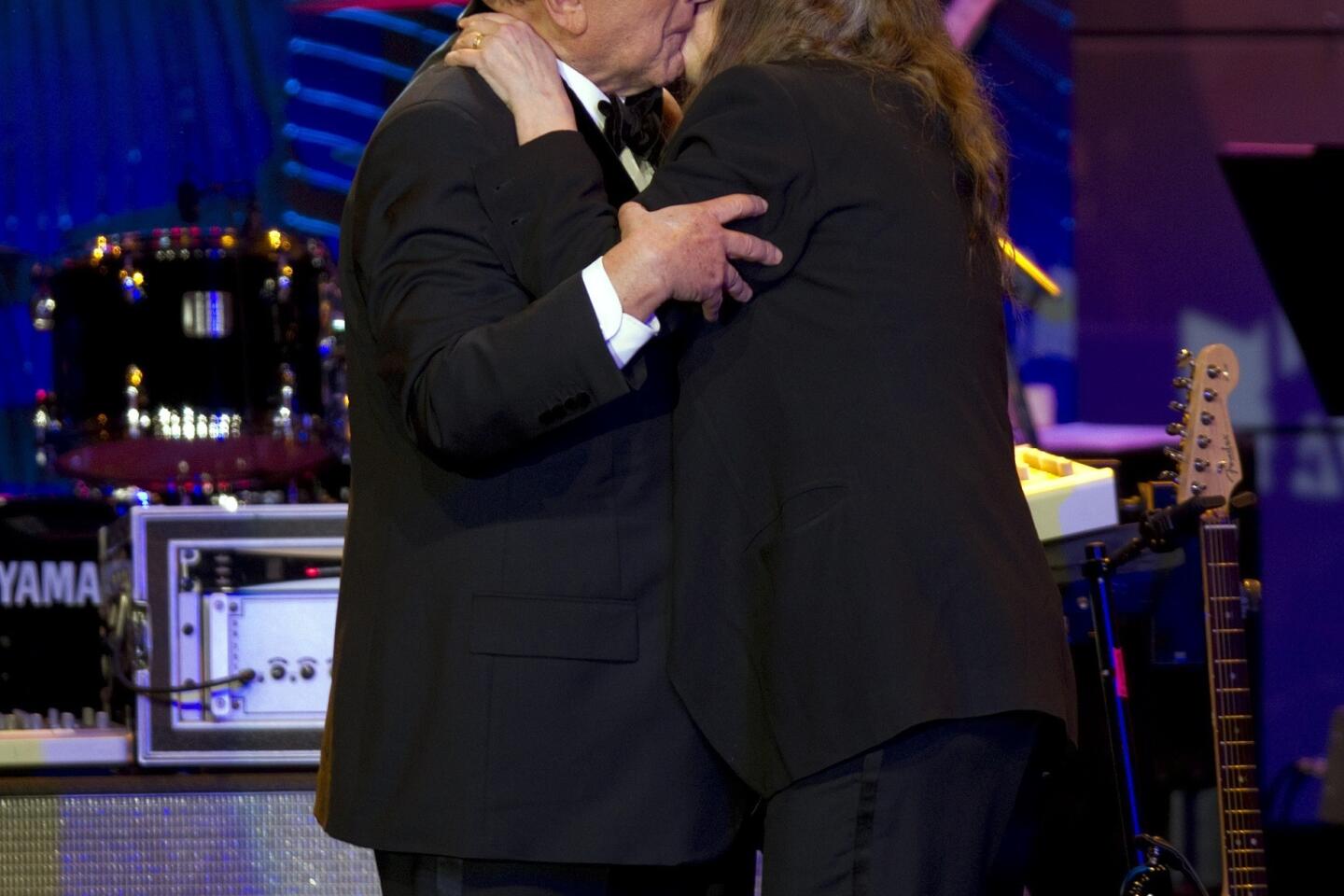
MORE: Clive Davis’ next role: Broadway producer of a new ‘My Fair Lady’ (Gina Ferazzi / Los Angeles Times)
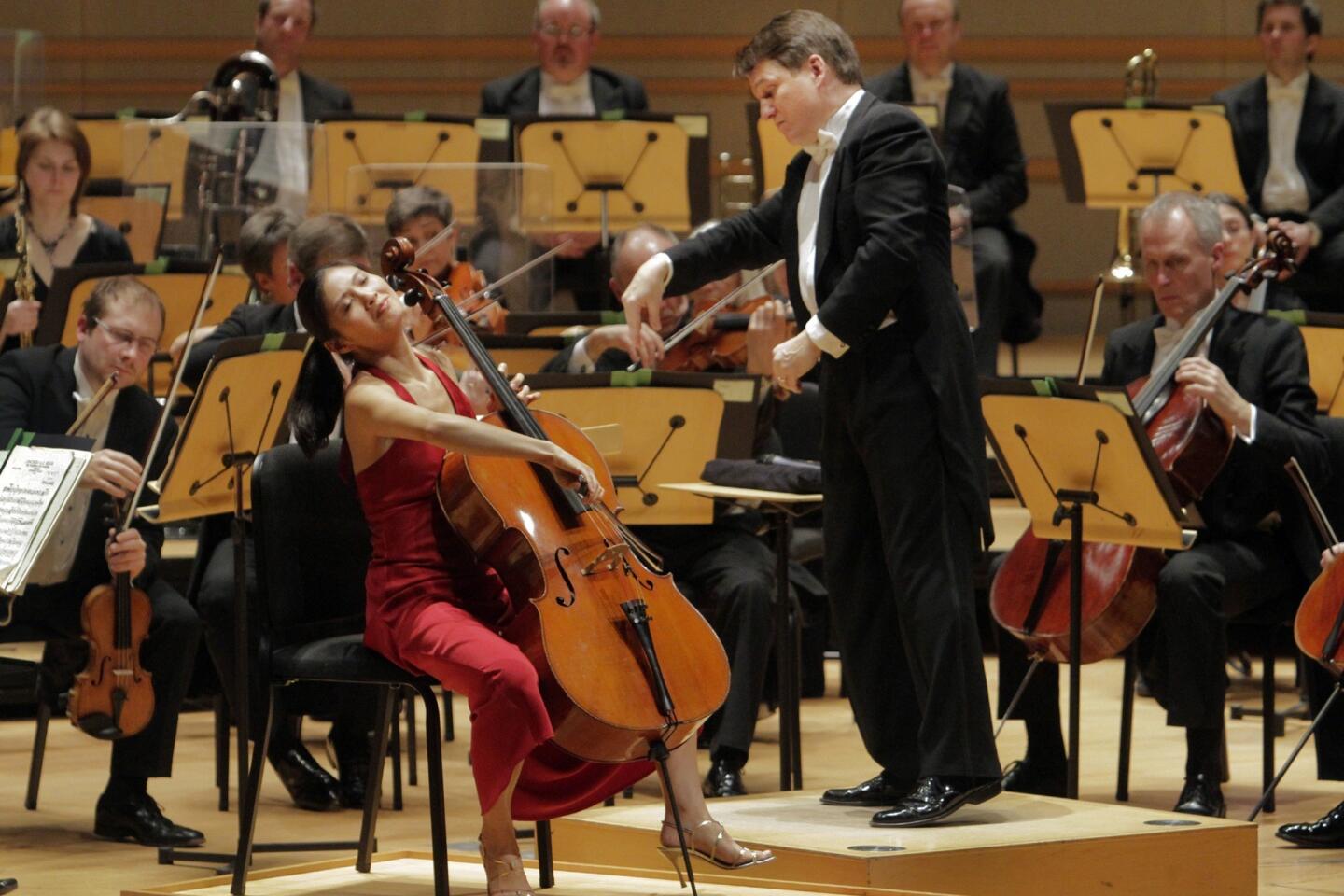
REVIEW: The usually inventive BBC Concert Orchestra goes retro (Lawrence K. Ho / Los Angeles Times)
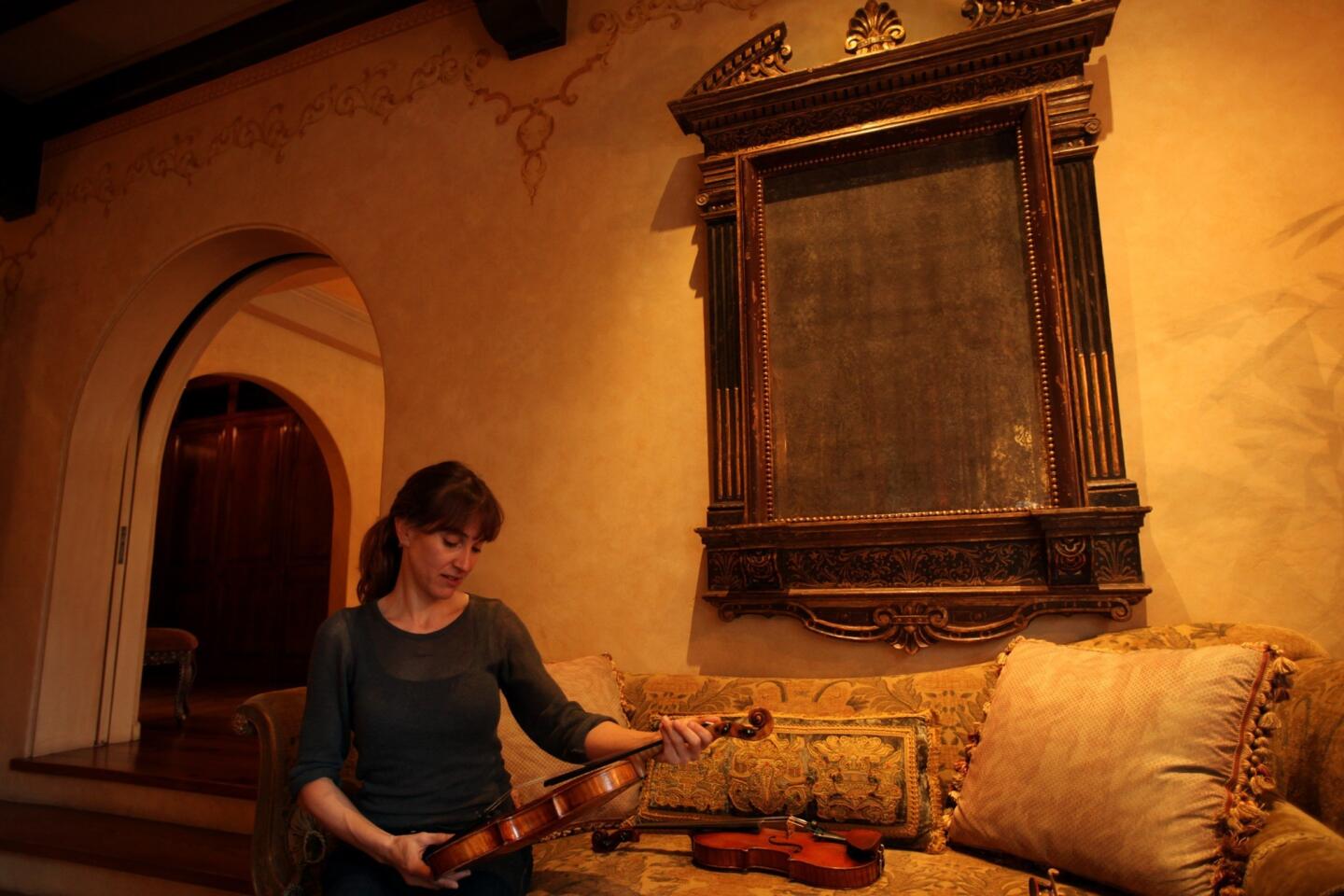
MORE: Los Angeles Chamber Orchestra violinist has a date with a Stradivarius (Francine Orr / Los Angeles Times)
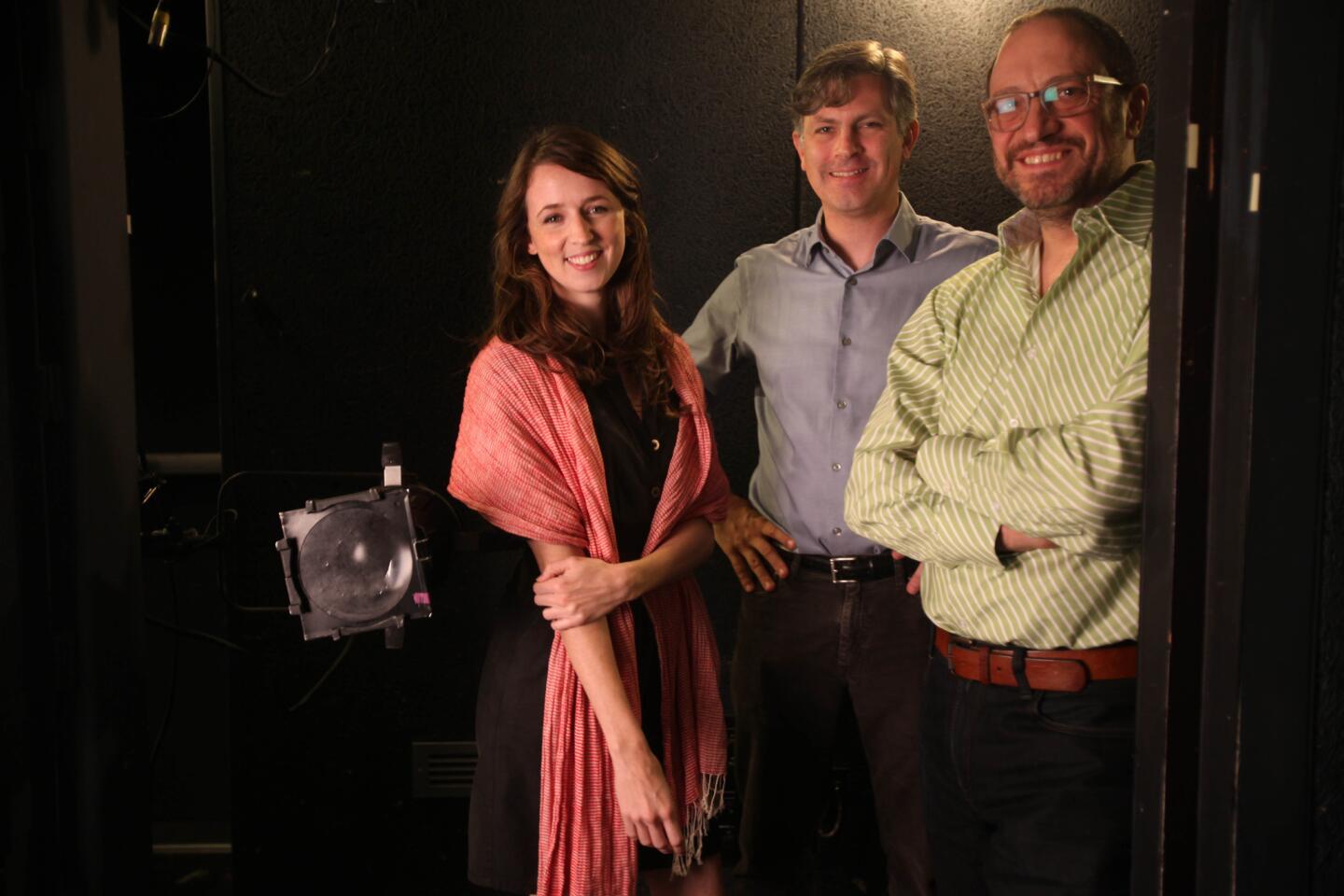
REVIEW: Elevator Repair Service’s ‘Gatz’ a rewarding marathon | Elevator Repair Service takes on the great ‘Gatz’ | Marathon plays stand the test of time (Michael Robinson Chavez / Los Angeles Times)
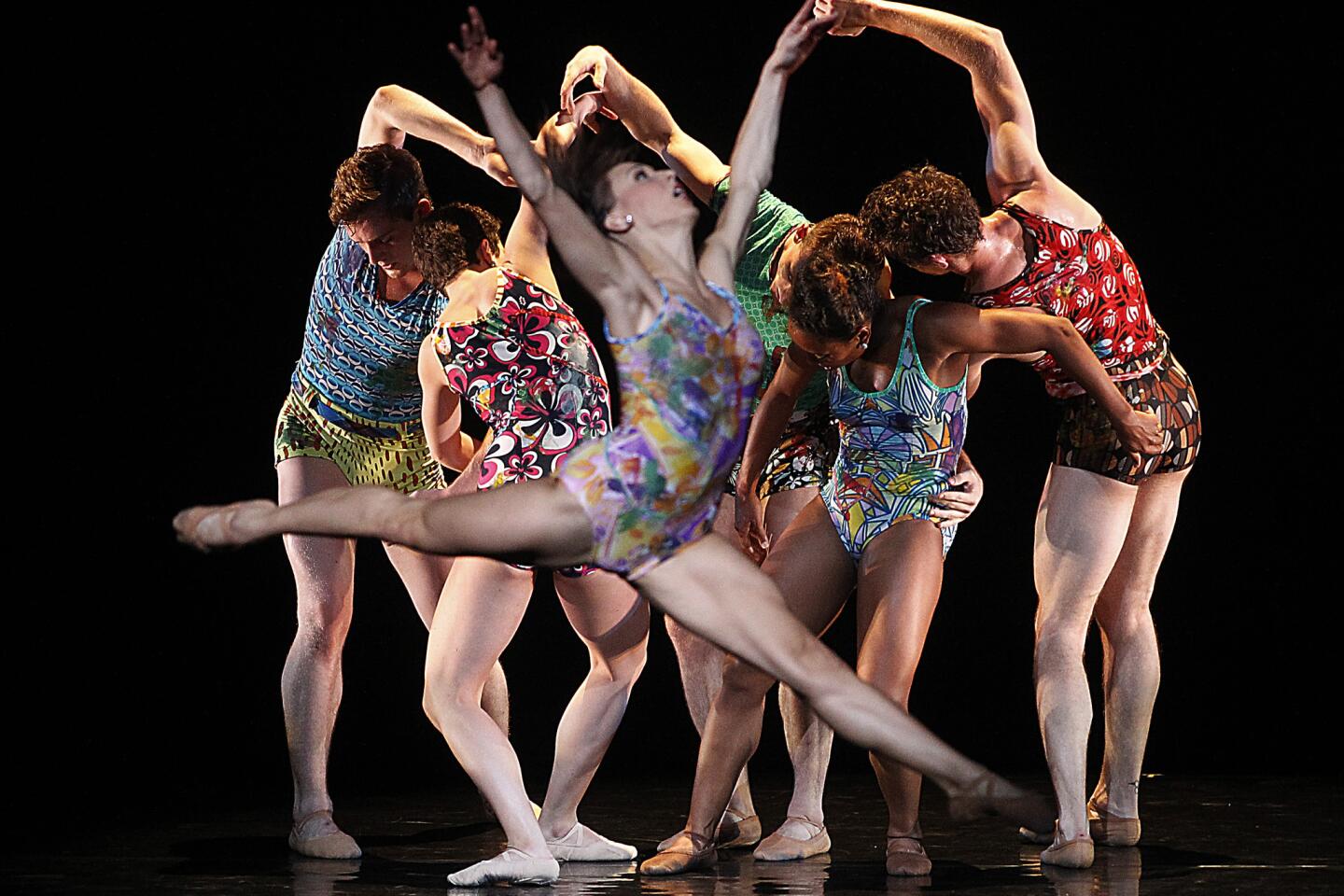
REVIEW: Trey McIntyre Project dances are both slight and potent | Trey McIntyre Project brings ‘Ways of Seeing’ to Segerstrom (Luis Cinco / Los Angeles Times)
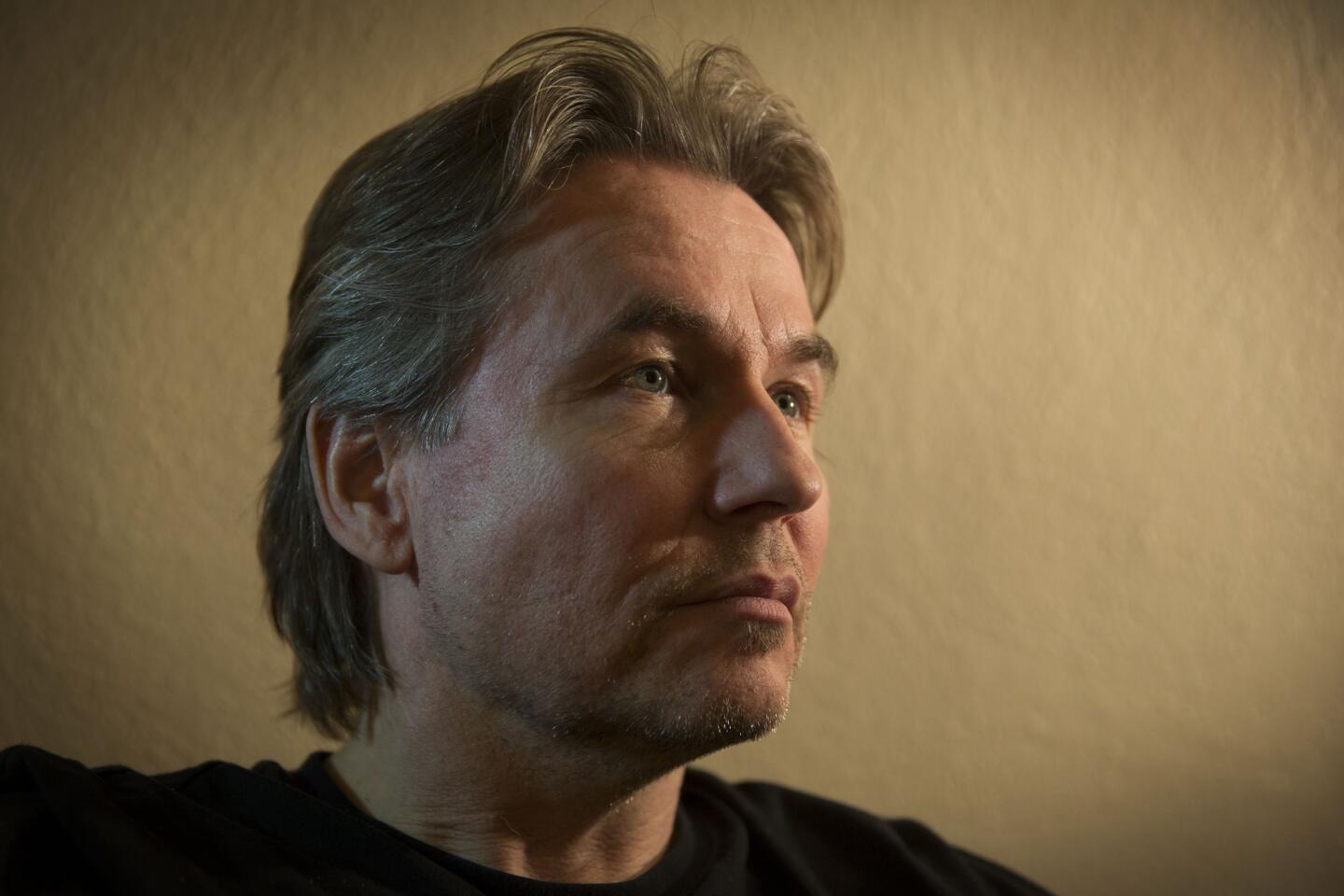
REVIEW: Esa-Pekka Salonen and an electrifying L.A. Philharmonic | Esa-Pekka Salonen returns to L.A. with murder in mind (Matthew Lloyd / For The Times)
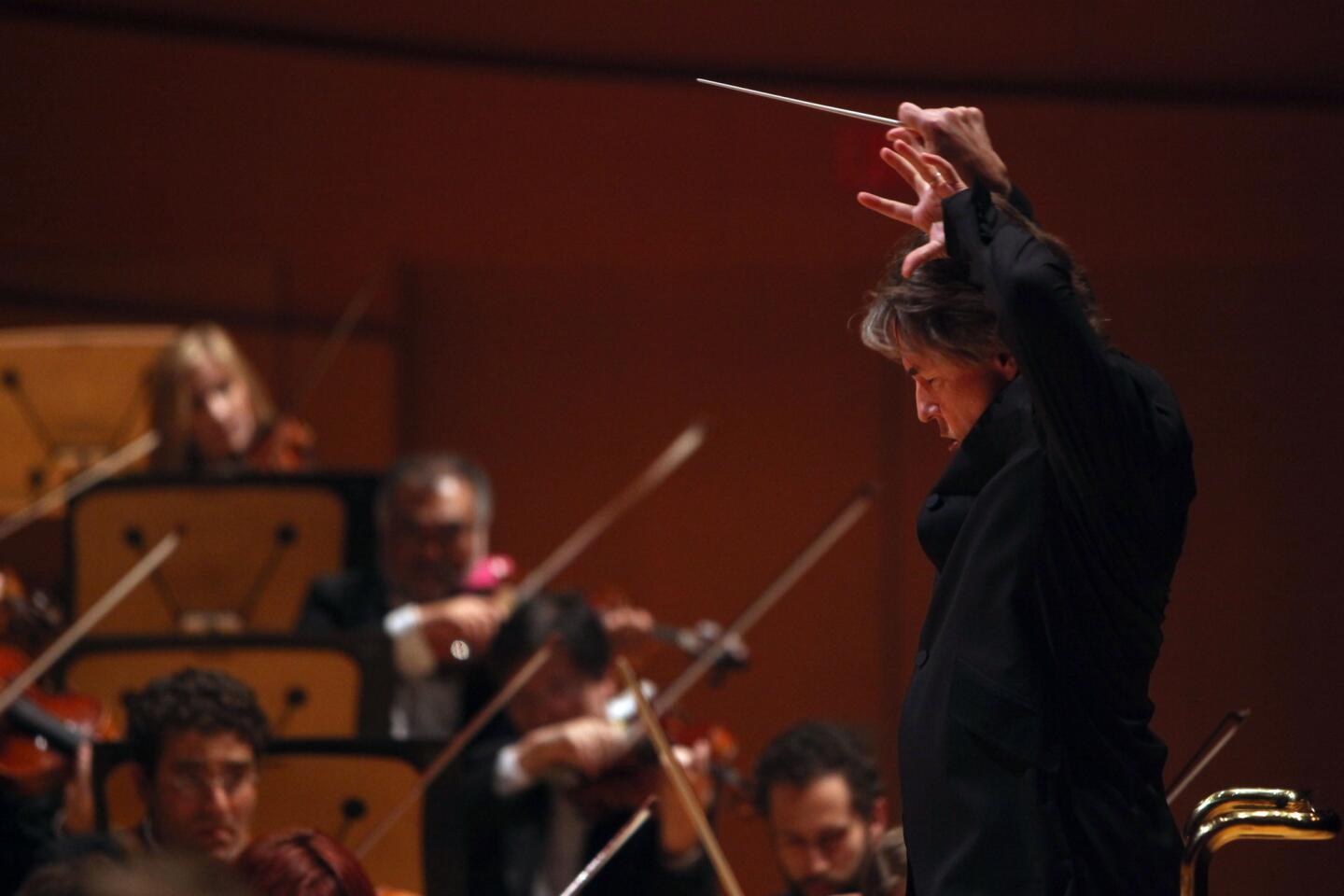
REVIEW: Esa-Pekka Salonen and an electrifying L.A. Philharmonic | Esa-Pekka Salonen returns to L.A. with murder in mind (Michael Robinson Chavez / Los Angeles Times)
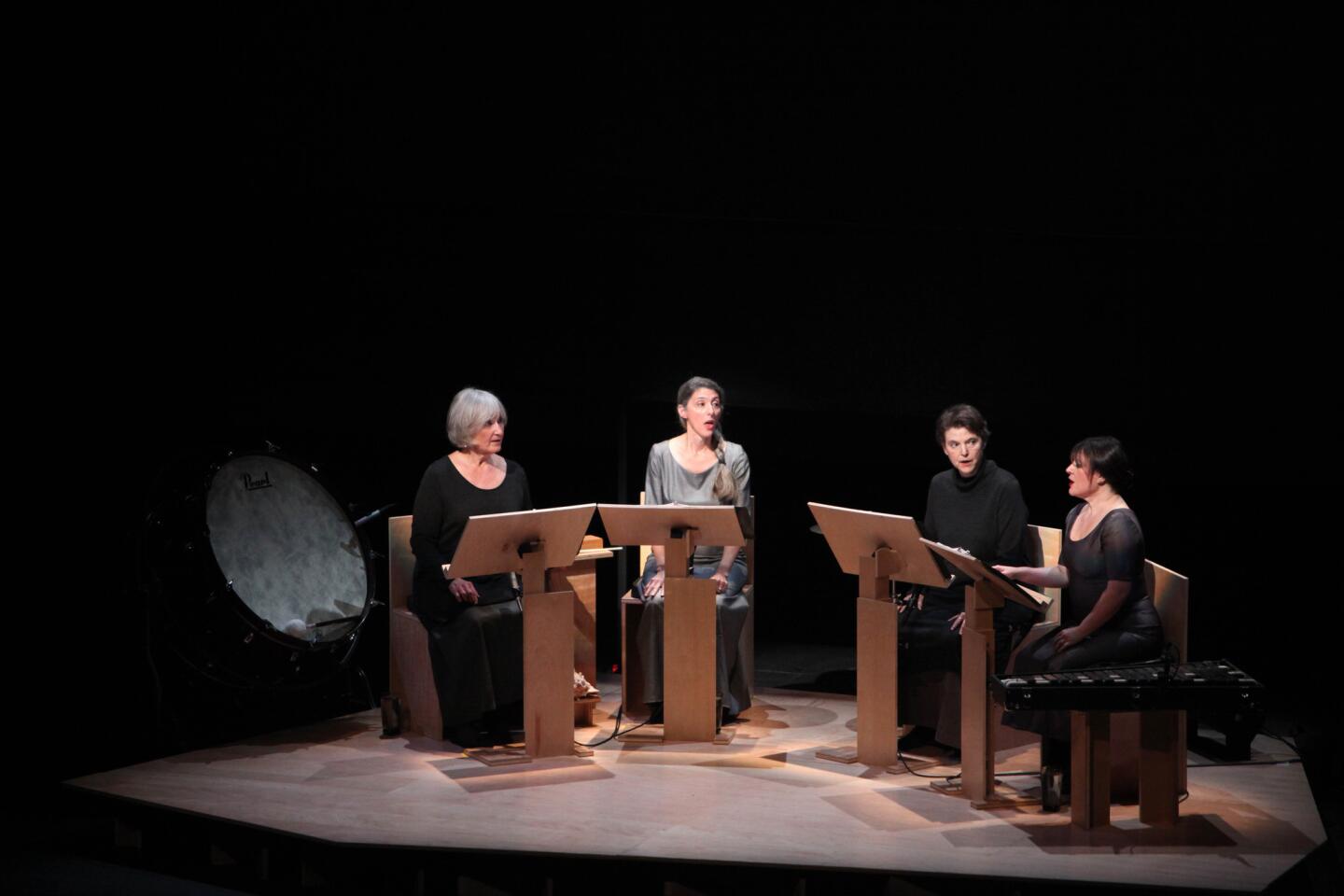
REVIEW: How David Lang’s ‘love fail’ succeeds sublimely (Michael Robinson Chavez / Los Angeles Times)
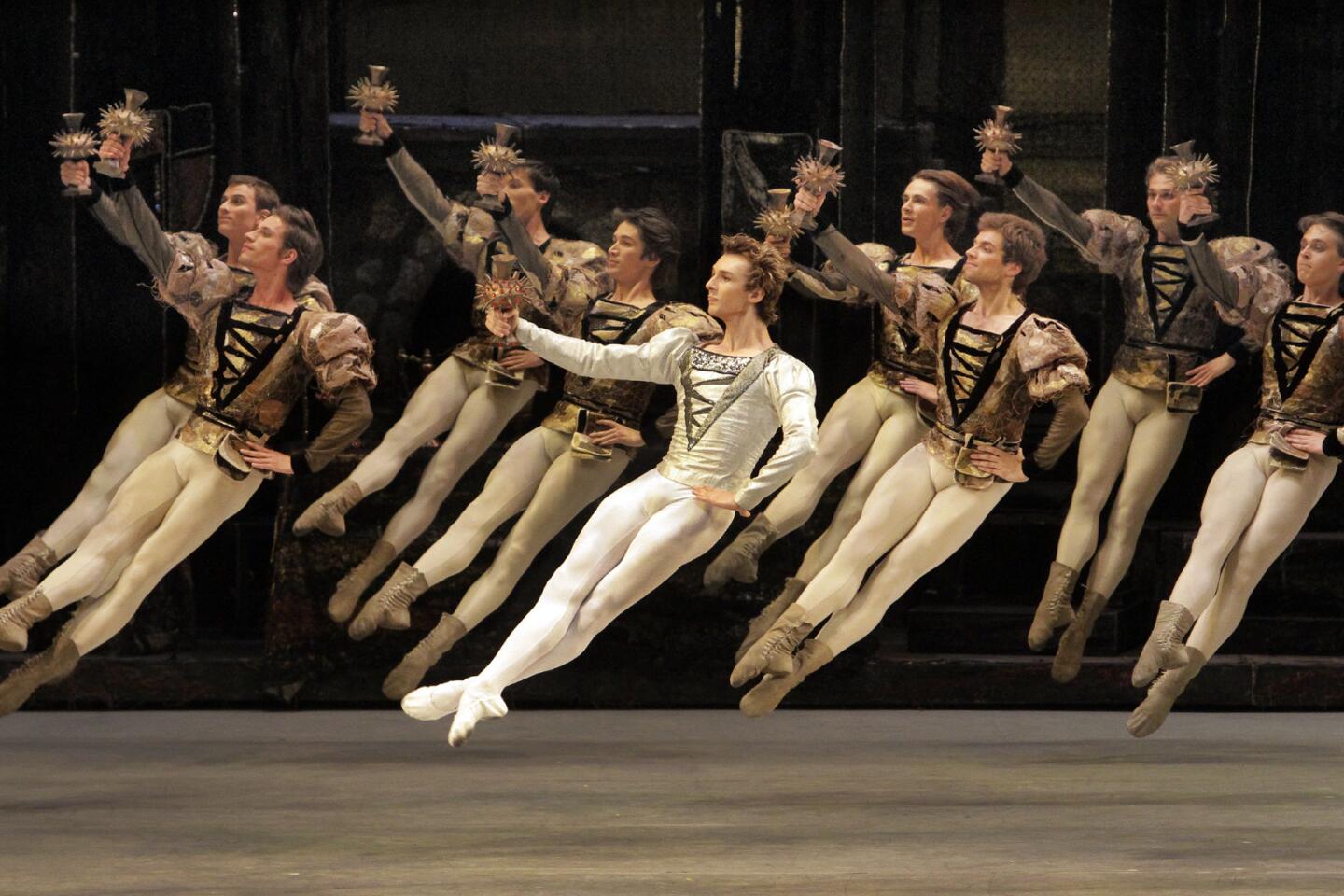
REVIEW: Bolshoi’s ‘Lake’ is sometimes choppy, sometimes smooth | Photos (Lawrence K. Ho / Los Angeles Times)
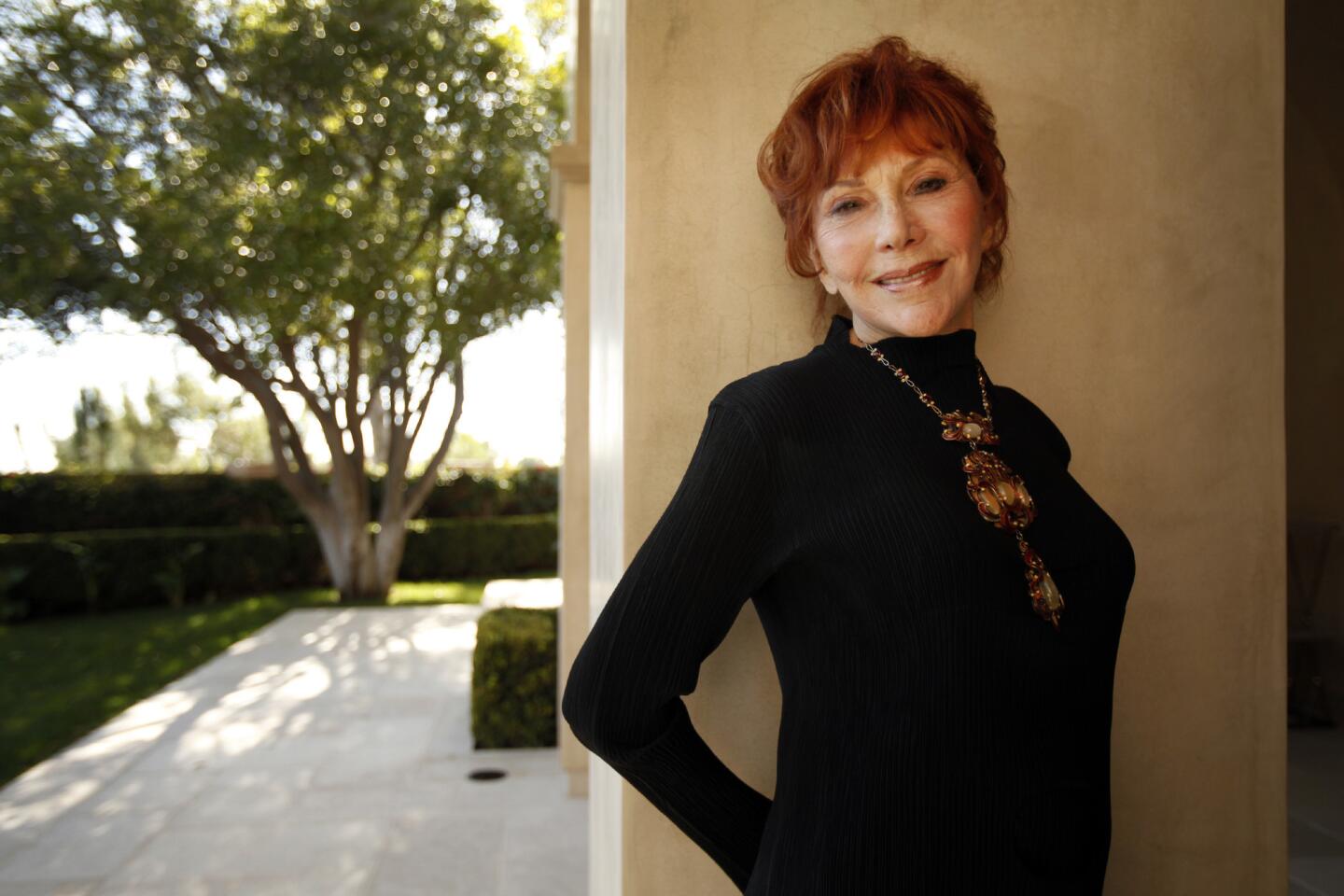
MORE: Glorya Kaufman gives USC millions to build a dance school (Al Seib / Los Angeles Times)
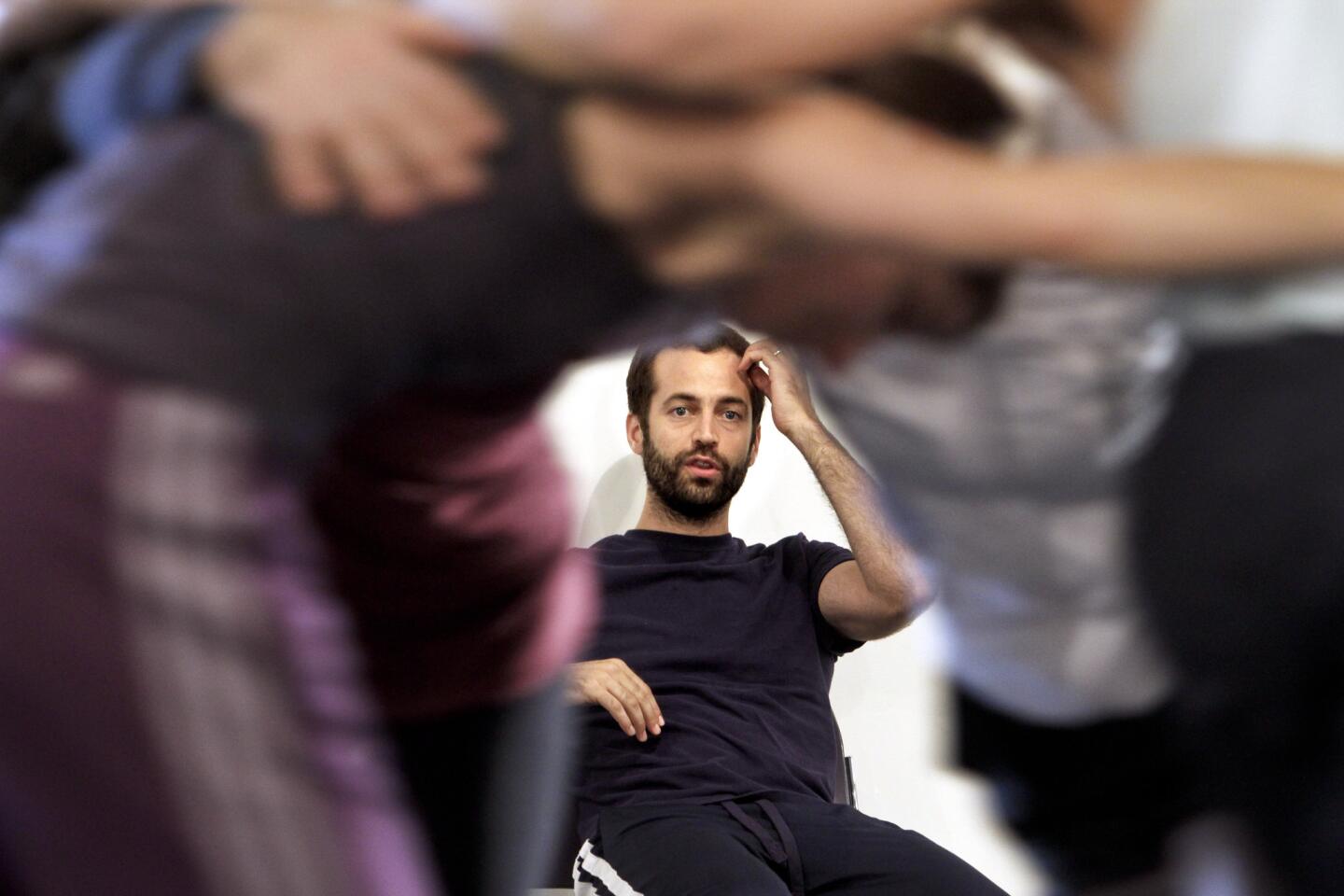
MORE: Benjamin Millepied gets moving in Los Angeles | Photos | Review (Ricardo DeAratanha / Los Angeles Times)
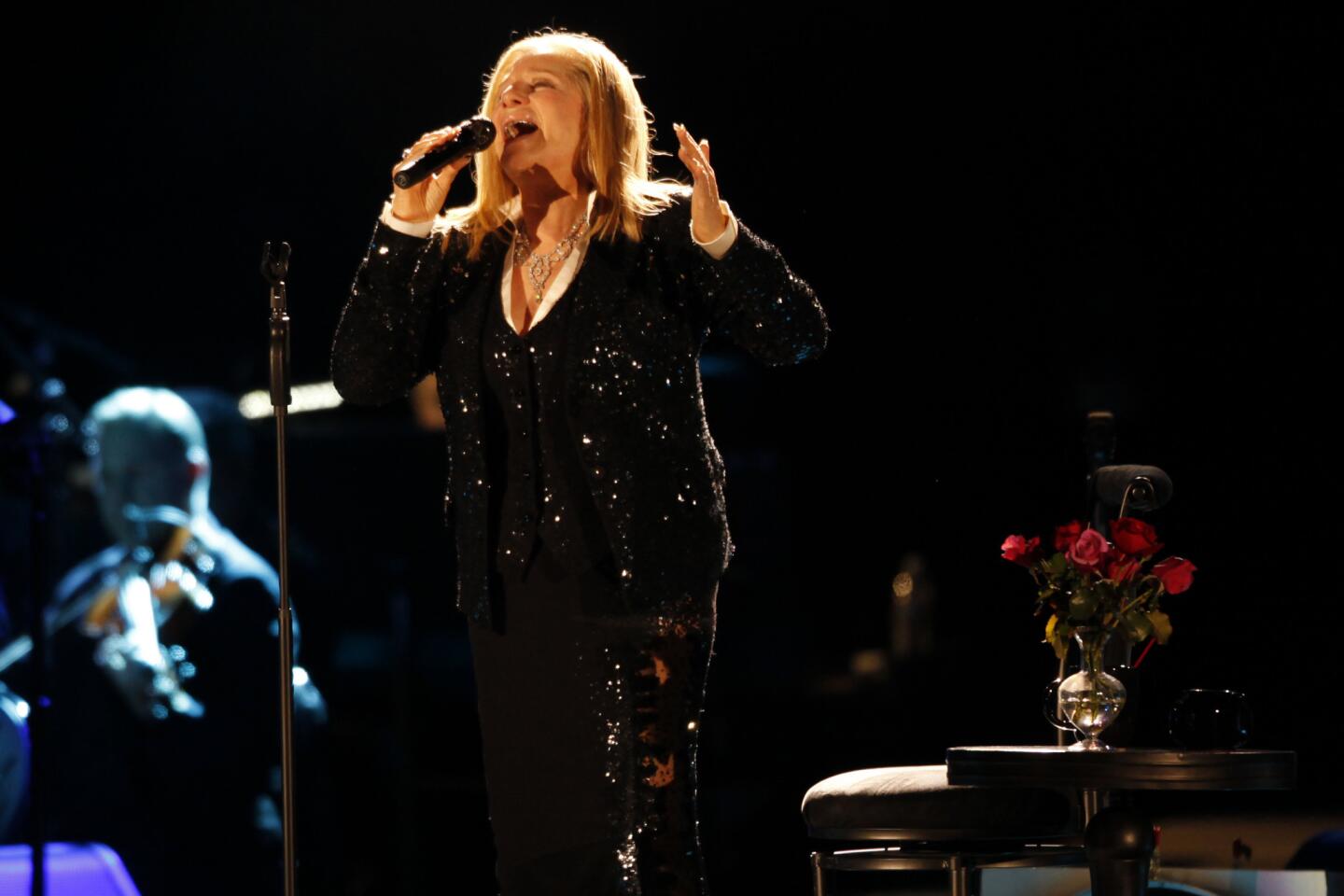
REVIEW: Barbra Streisand puts the Hollywood Bowl under her spell (Michael Robinson Chavez / Los Angeles Times)
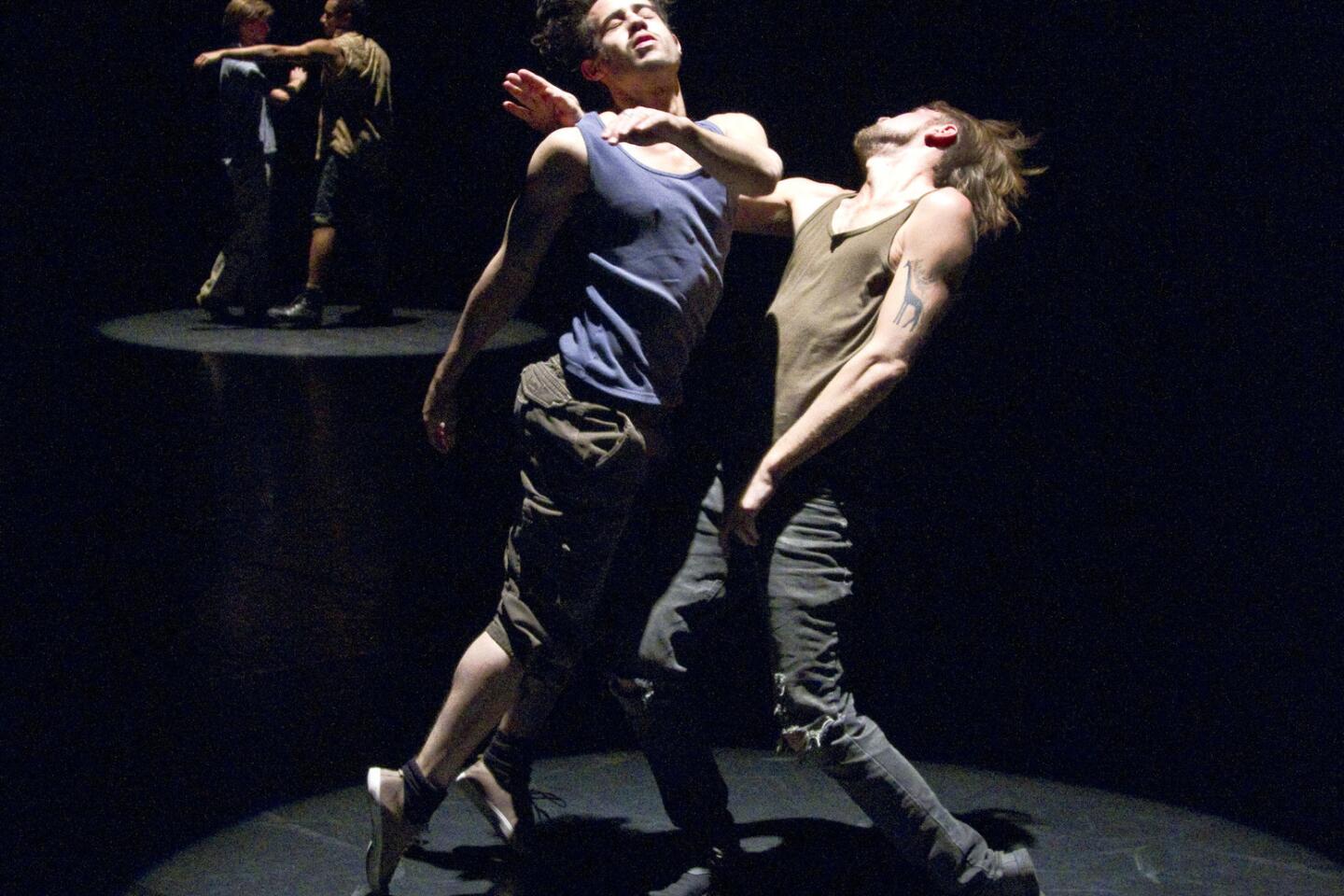
REVIEW: Desire and sexual politics whirl among ‘Them’ (Ricardo DeAratanha / Los Angeles Times)
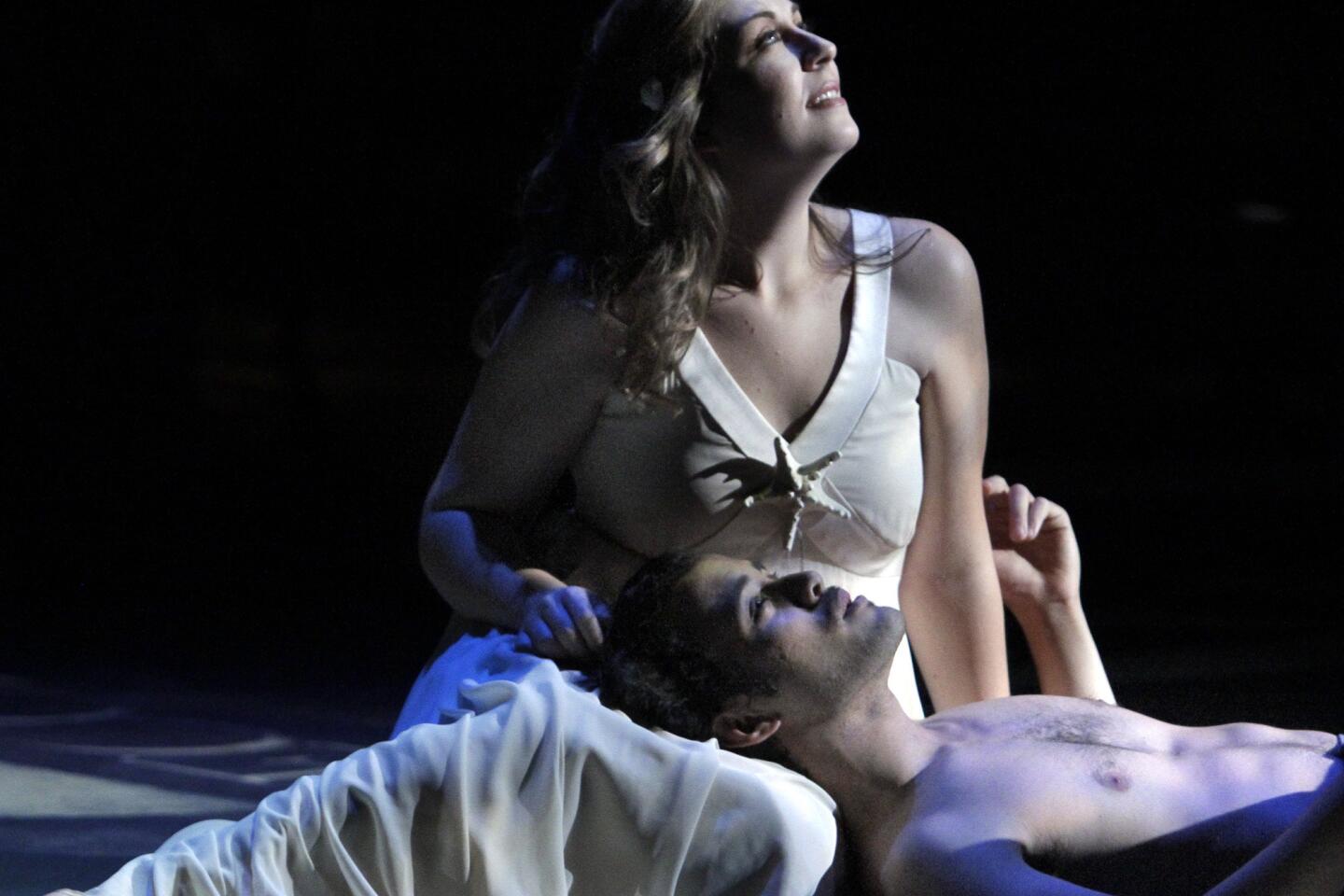
REVIEW: Two ways to capture magic of ‘The Tempest’ | Photos (Lawrence K. Ho / Los Angeles Times)
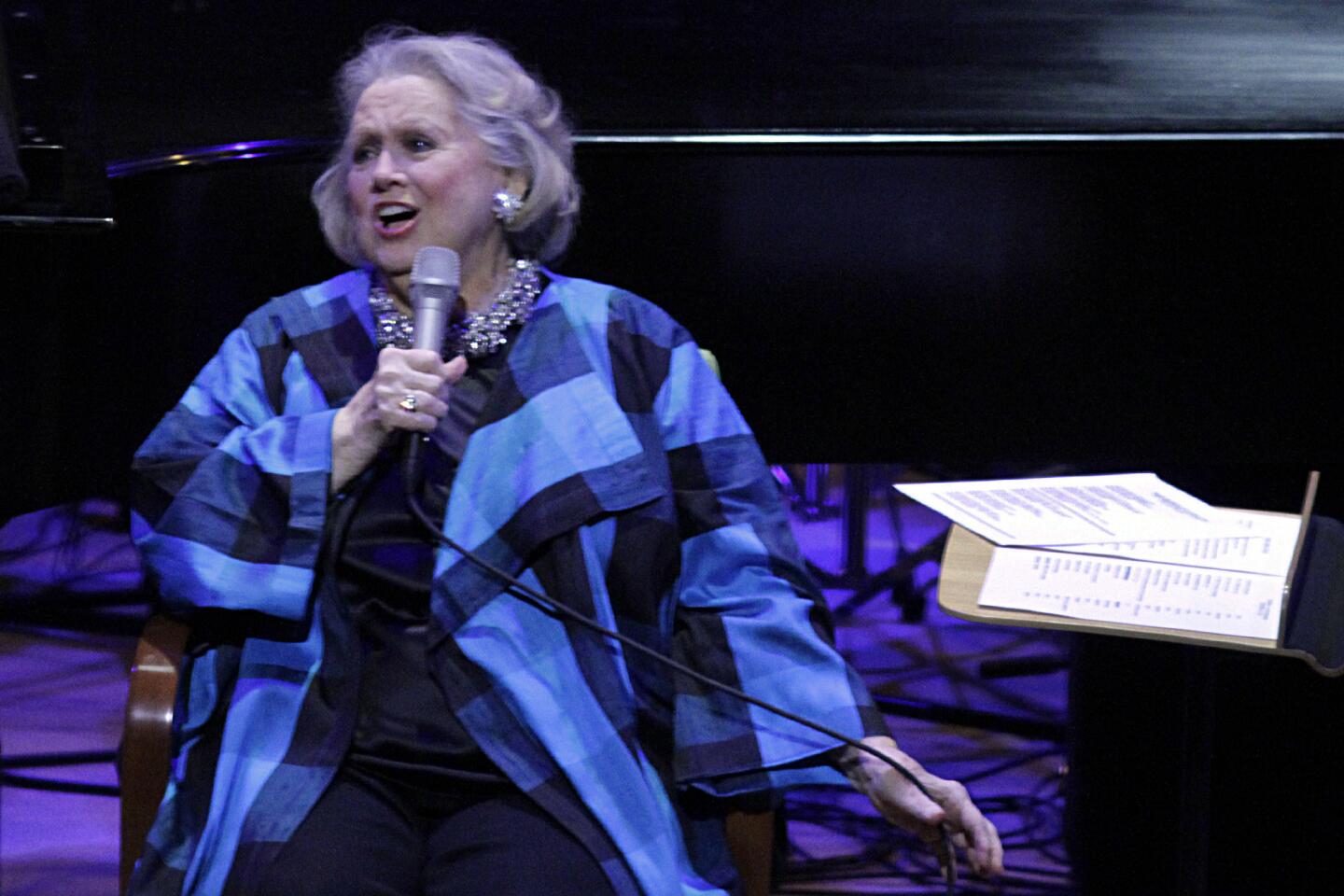
REVIEW: Barbara Cook rejuvenates song standards (Lawrence K. Ho / Los Angeles Times)
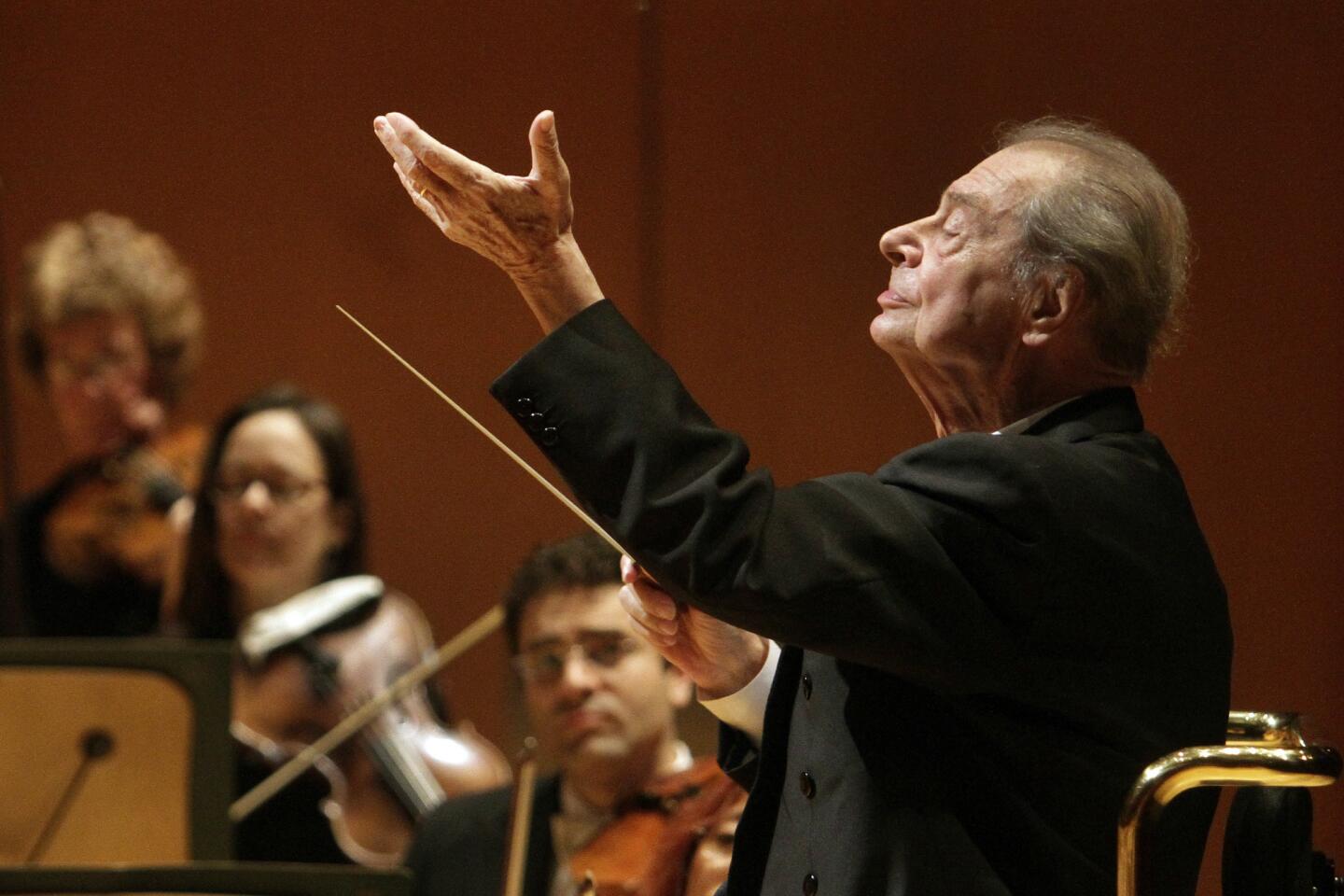
MORE: Rafael Fruhbeck de Burgos, Lynn Harrell at Disney Hall (Lawrence K. Ho / Los Angeles Times)
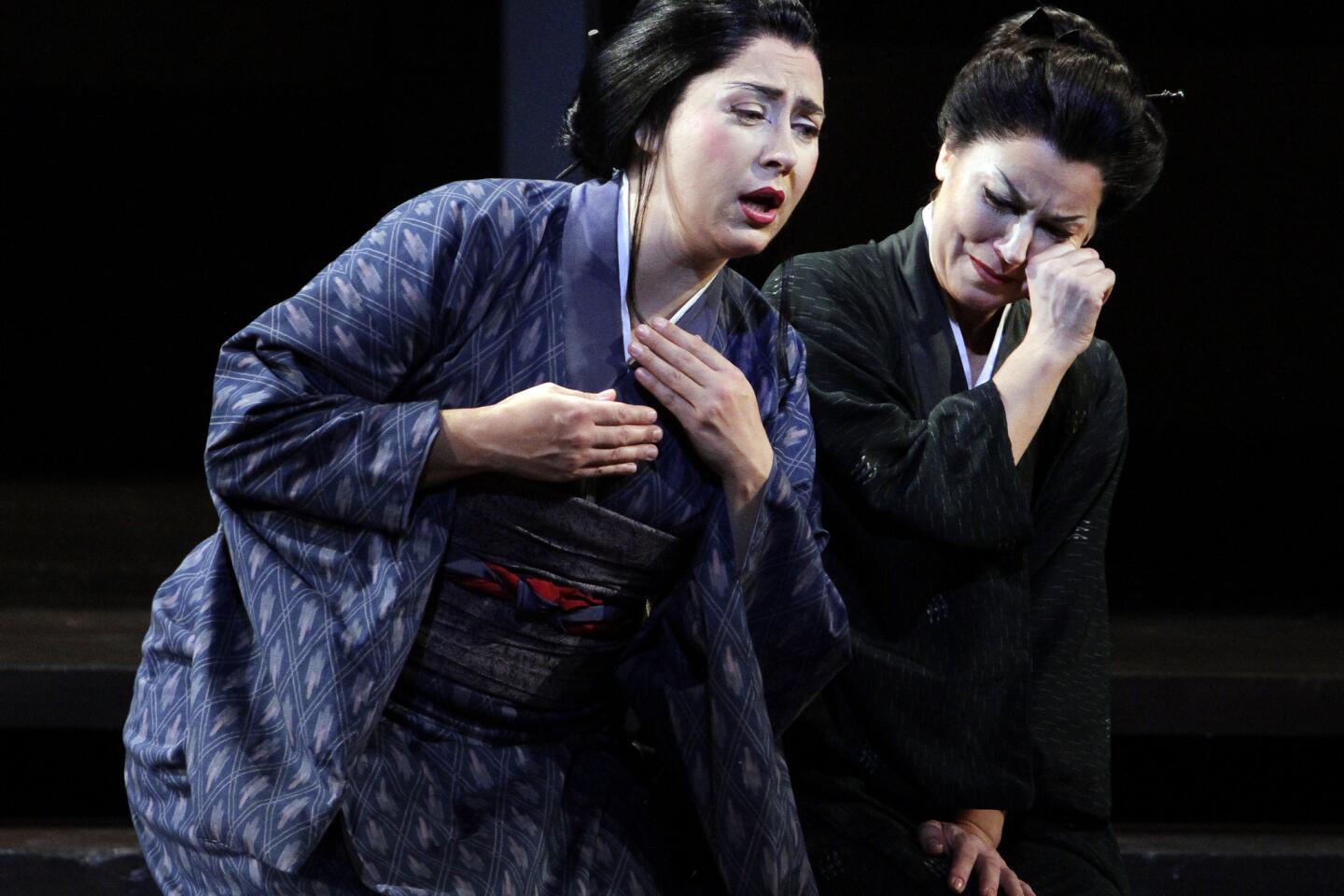
REVIEW: Some bright spots in a lesser ‘Madame Butterfly’ | Photos (Lawrence K. Ho / Los Angeles Times)
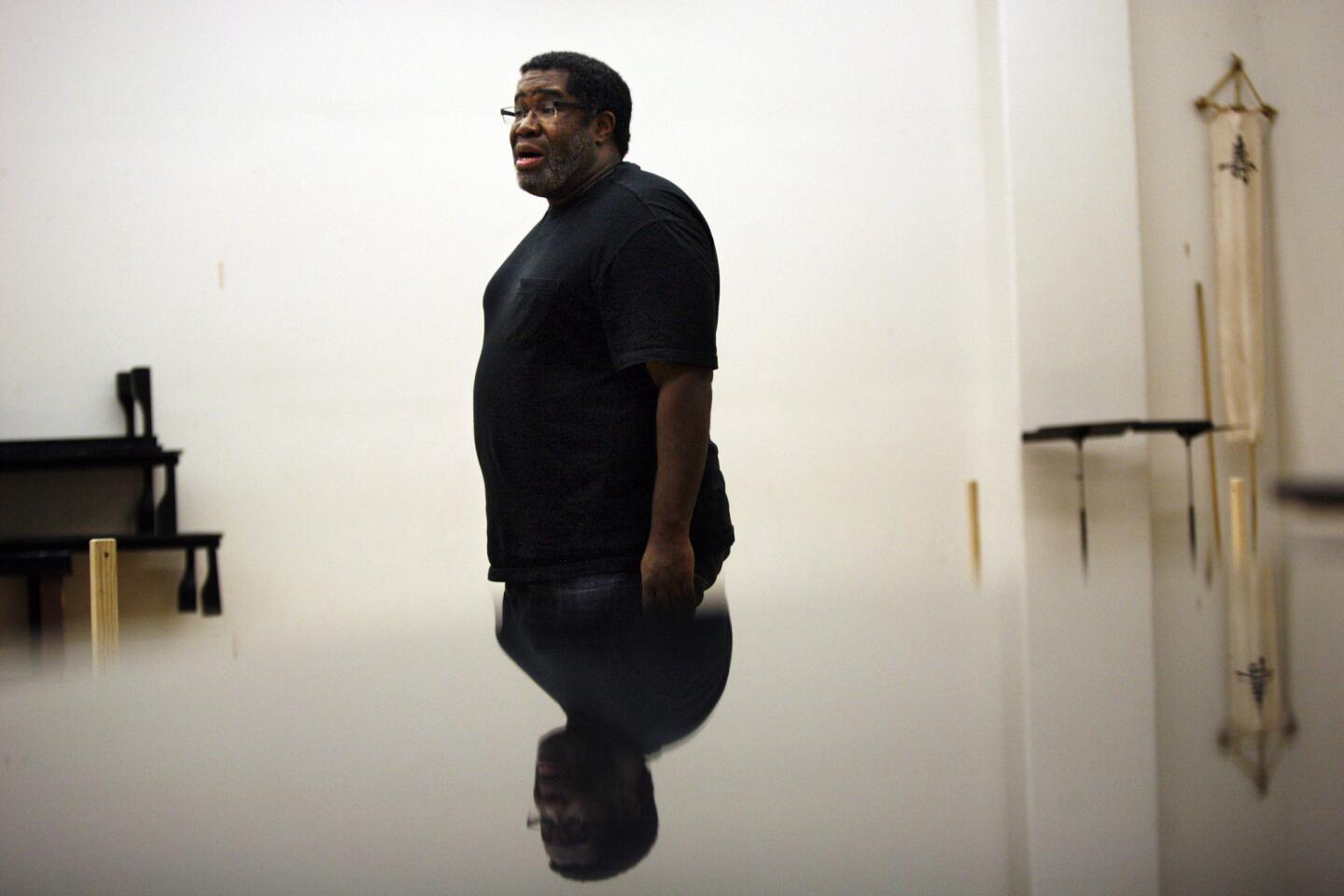
MORE: Opera’s ever-inquisitive Eric Owens is in high demand (Bob Chamberlin / Los Angeles Times)
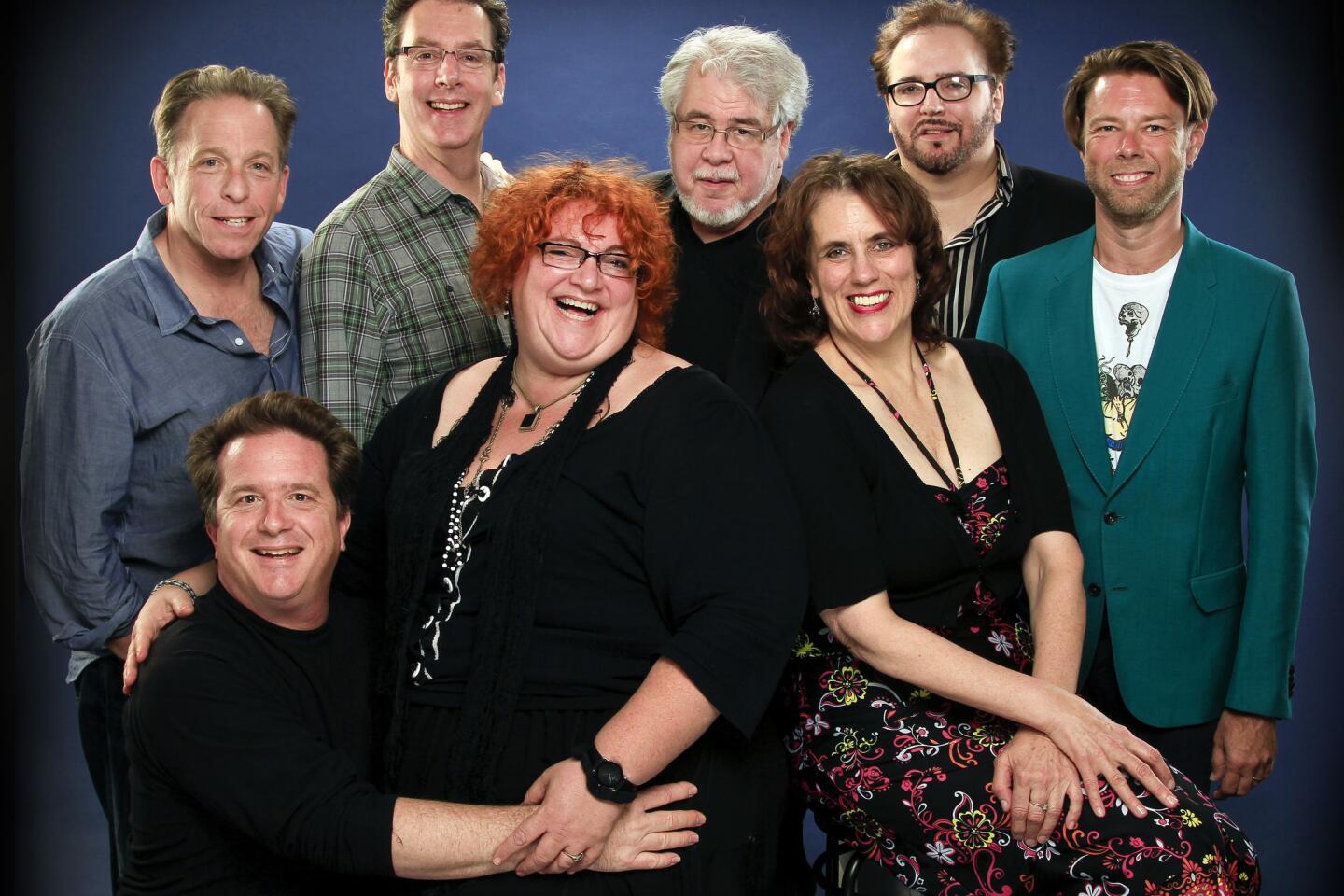
Critic’s Notebook: The joys and challenges of the L.A. small-theater scene (Ricardo DeAratanha / Los Angeles Times)
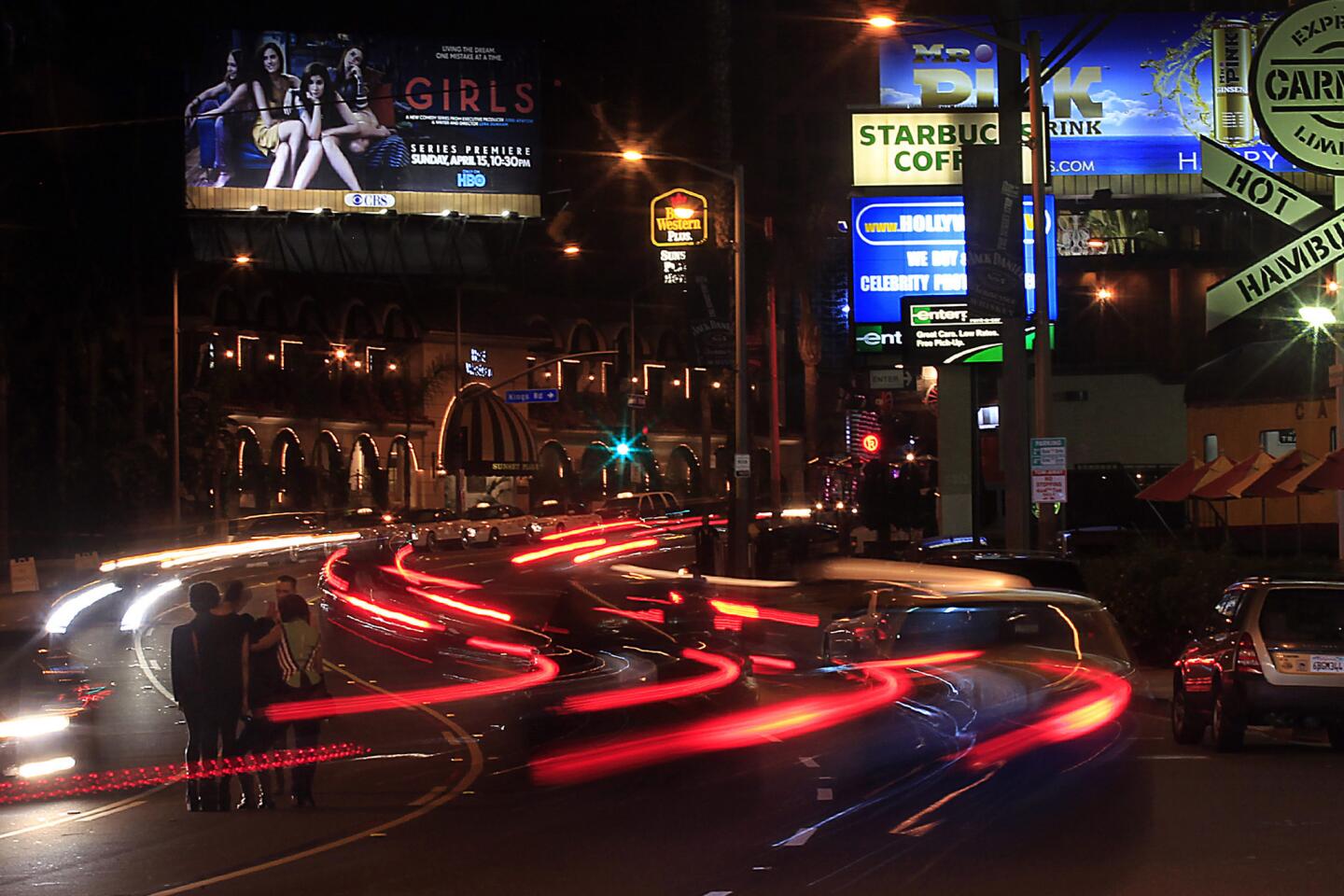
MORE: Christopher Hawthorne’s On the Boulevards Project (Luis Cinco / Los Angeles Times)
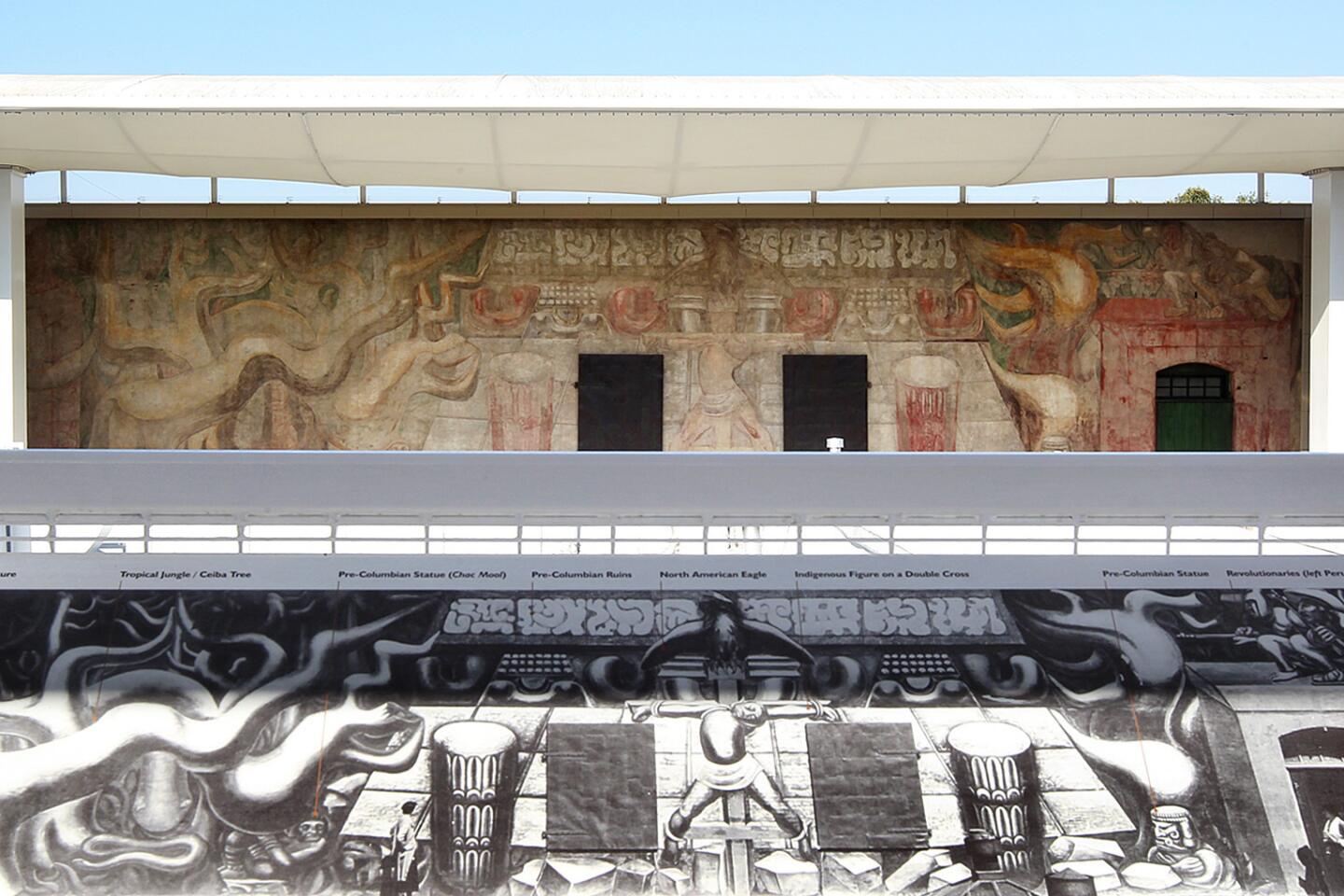
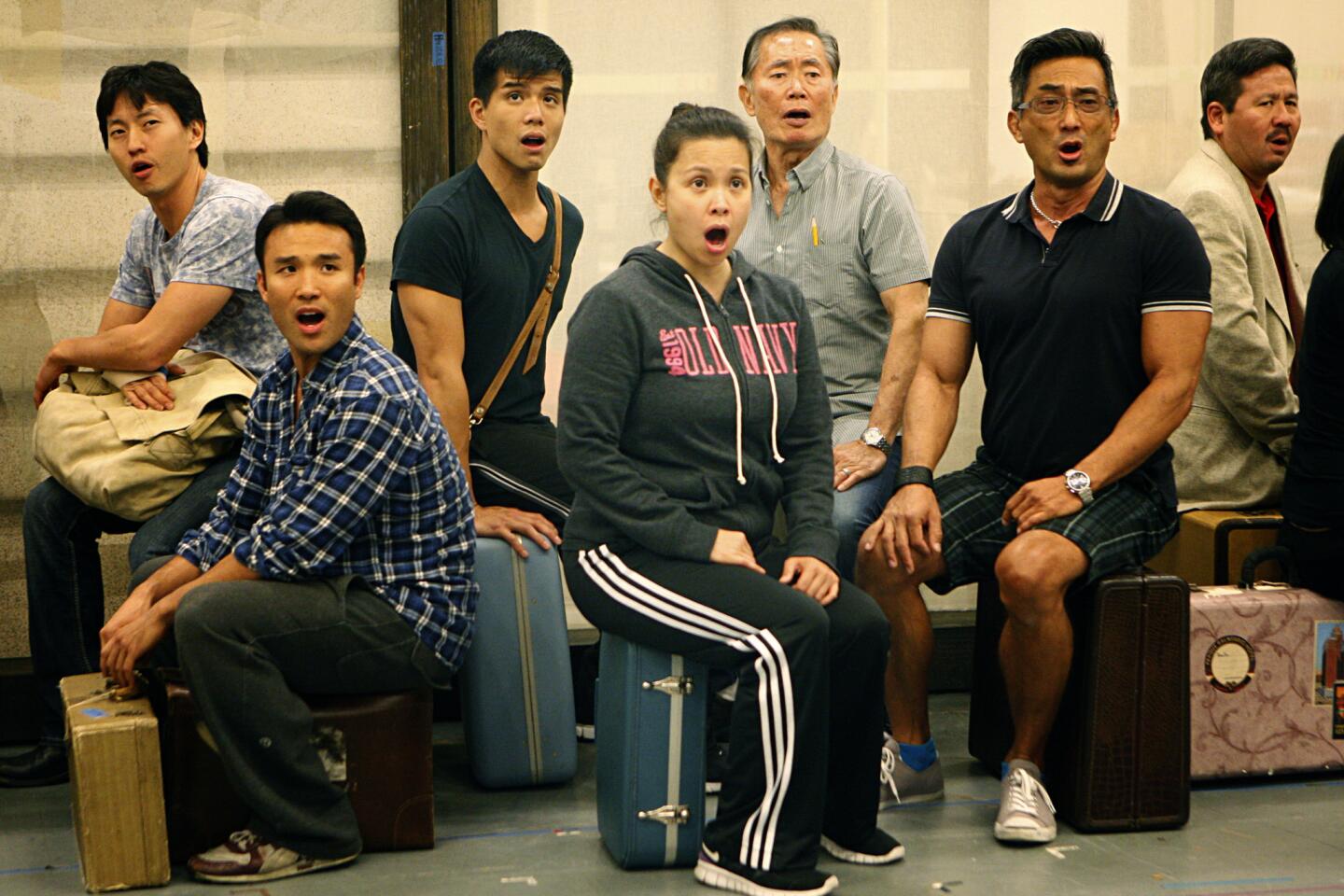
MORE: George Takei builds on legacy with ‘Allegiance’ at the Old Globe (Don Bartletti / Los Angeles Times)
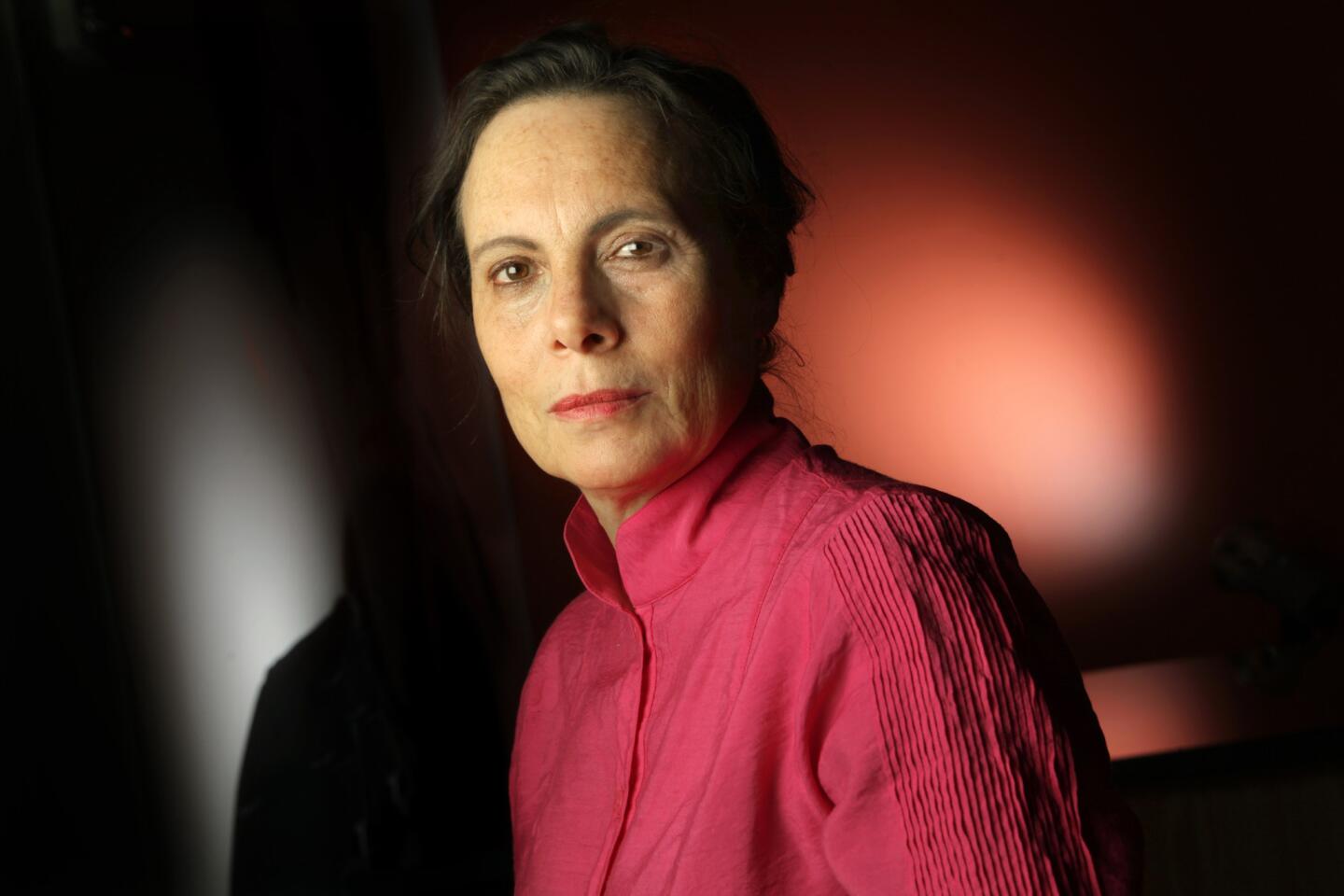
MORE: Emily Mann a natural to direct ‘Streetcar’ and ‘The Convert’ (Carolyn Cole / Los Angeles Times)

REVIEW: Lackluster Expo Line reflects Metro’s weak grasp of design (Mark Boster / Los Angeles Times)
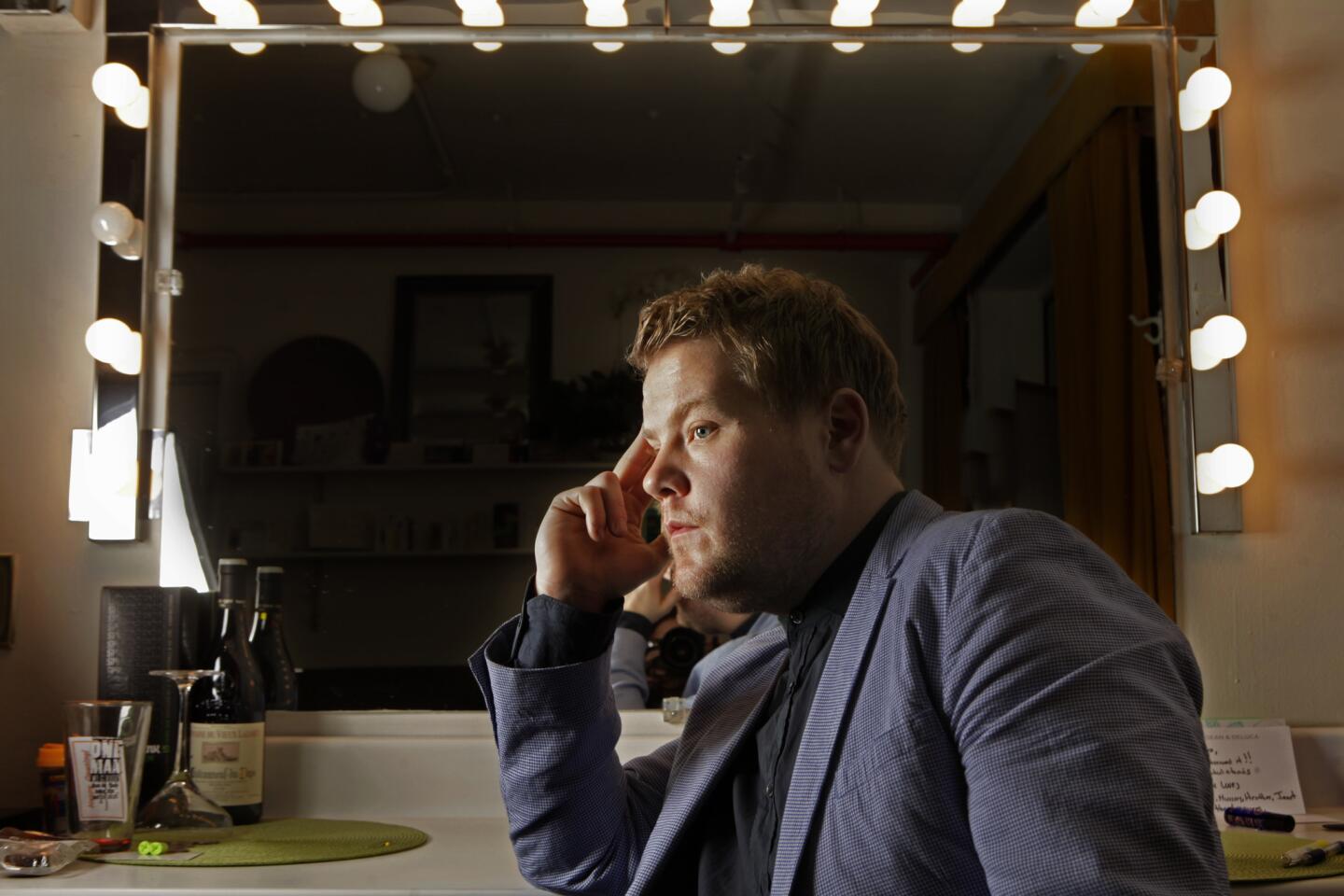
MORE: James Corden, ‘One Man’ and a plethora of talent (Carolyn Cole / Los Angeles Times)
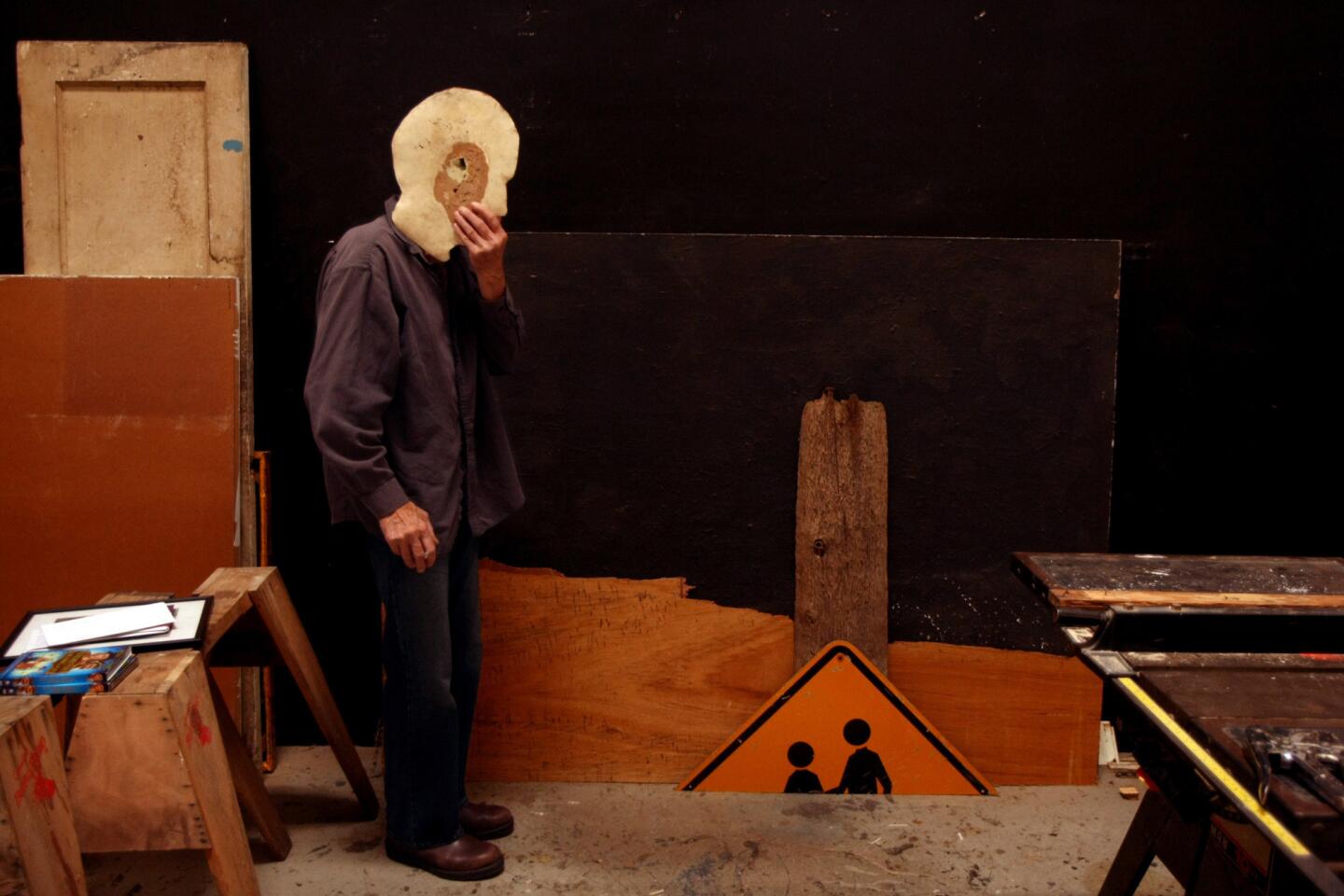
MORE: Llyn Foulkes’ art of raw emotion (Genaro Molina / Los Angeles Times)
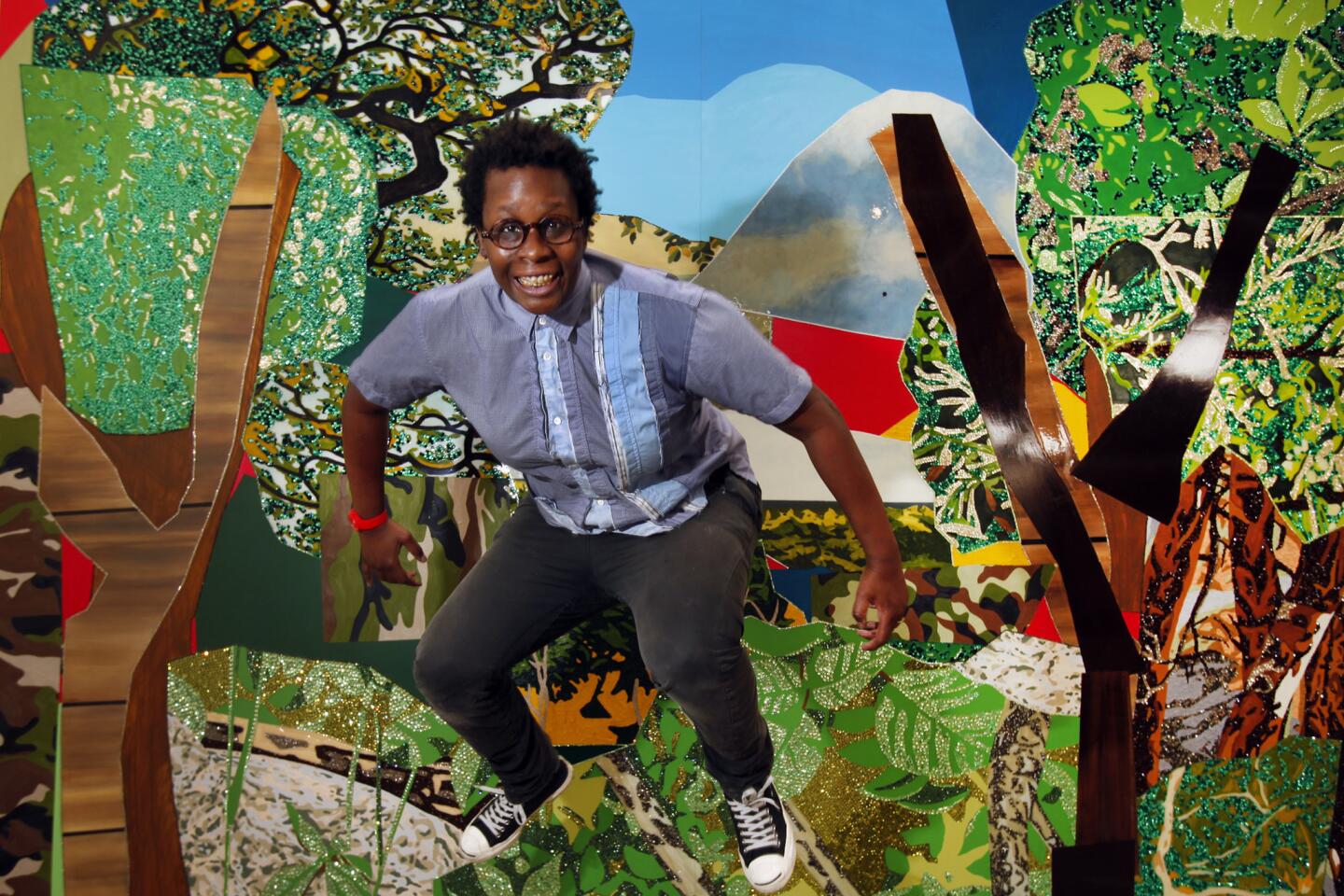
MORE: Mickalene Thomas, up close and very personal (Al Seib / Los Angeles Times)
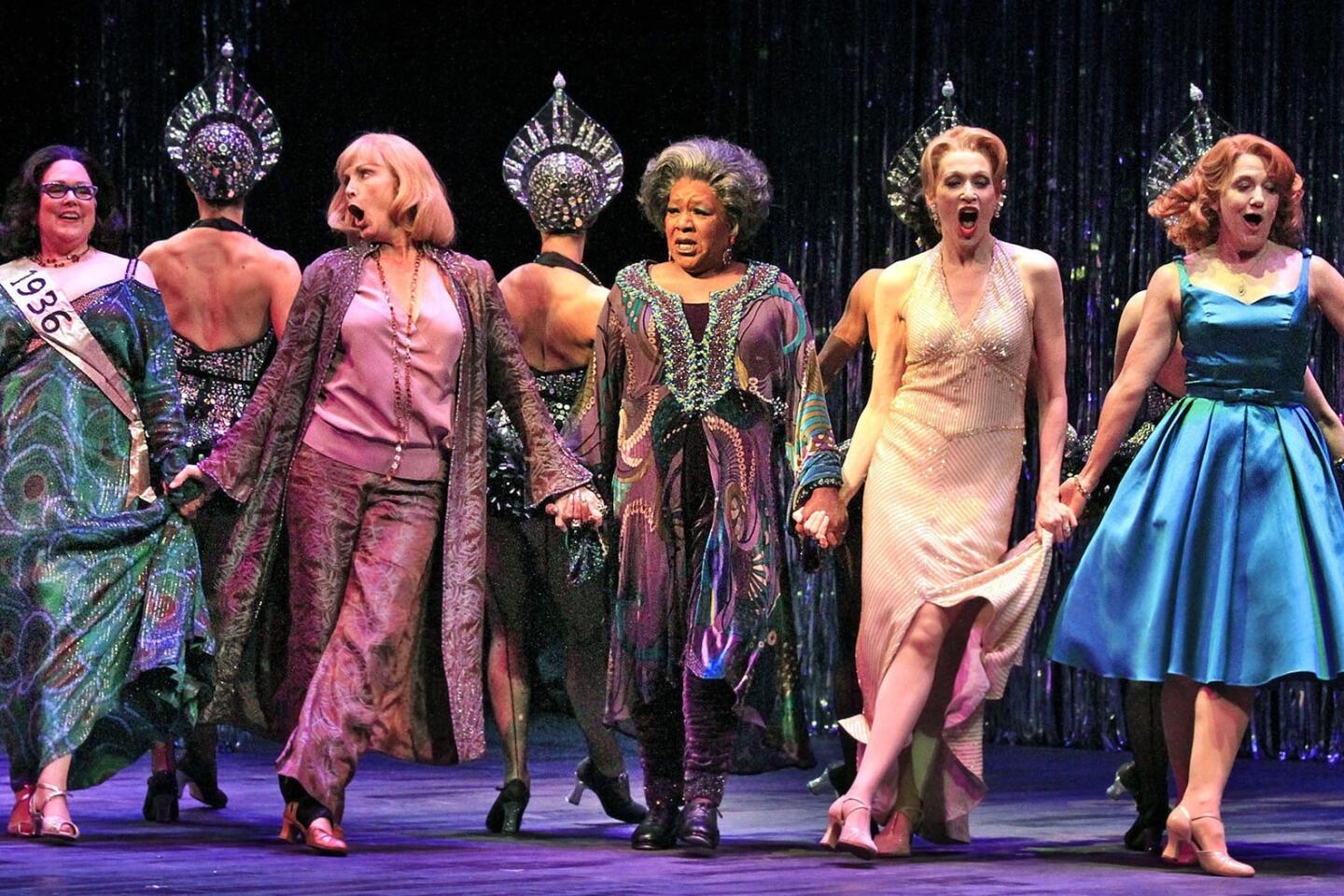
REVIEW: “Follies” is a source of heartache and razzmatazz (Glenn Koenig / Los Angeles Times)
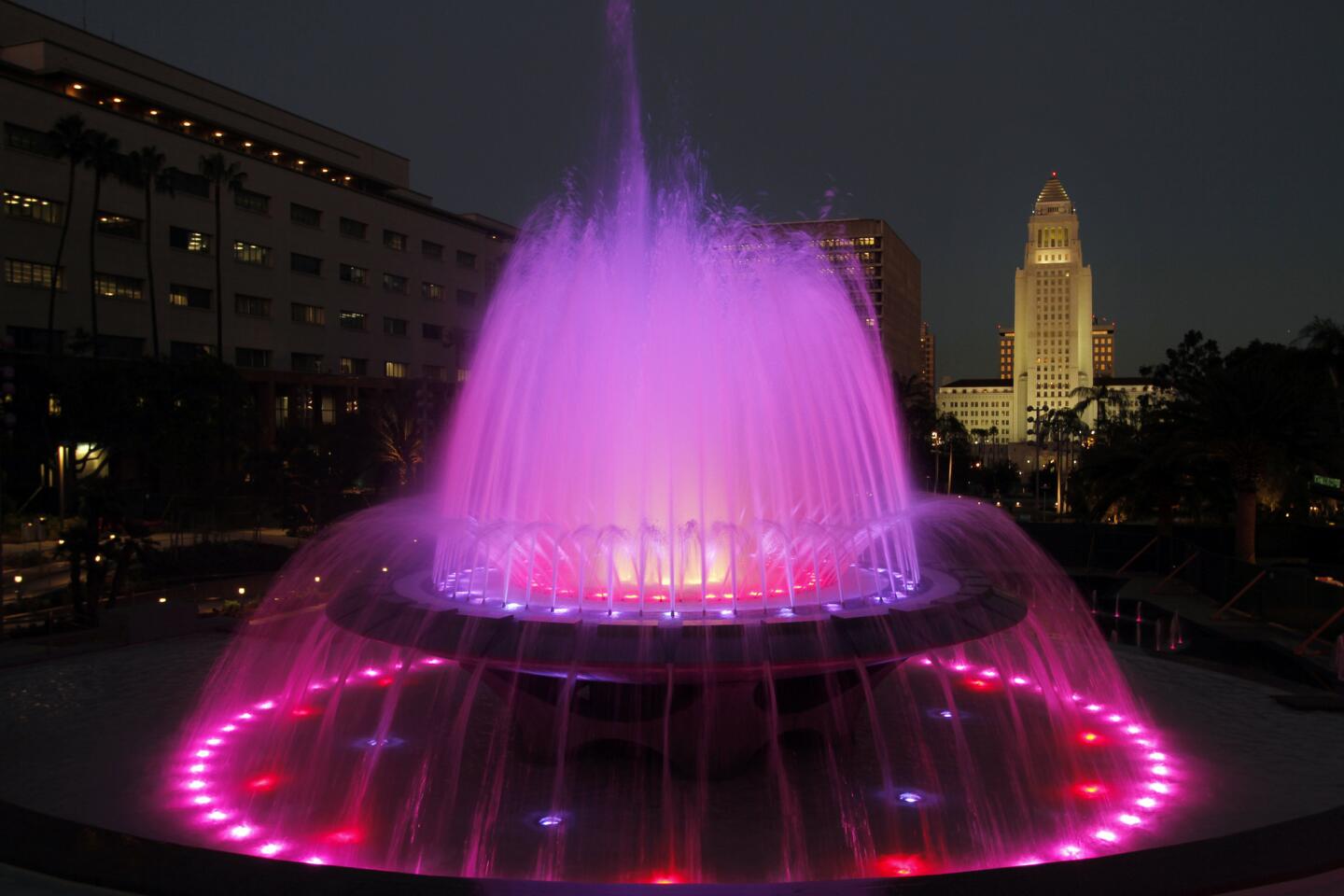
MORE: Will downtown L.A.’s Grand Park succeed? | Photos (Francine Orr / Los Angeles Times)
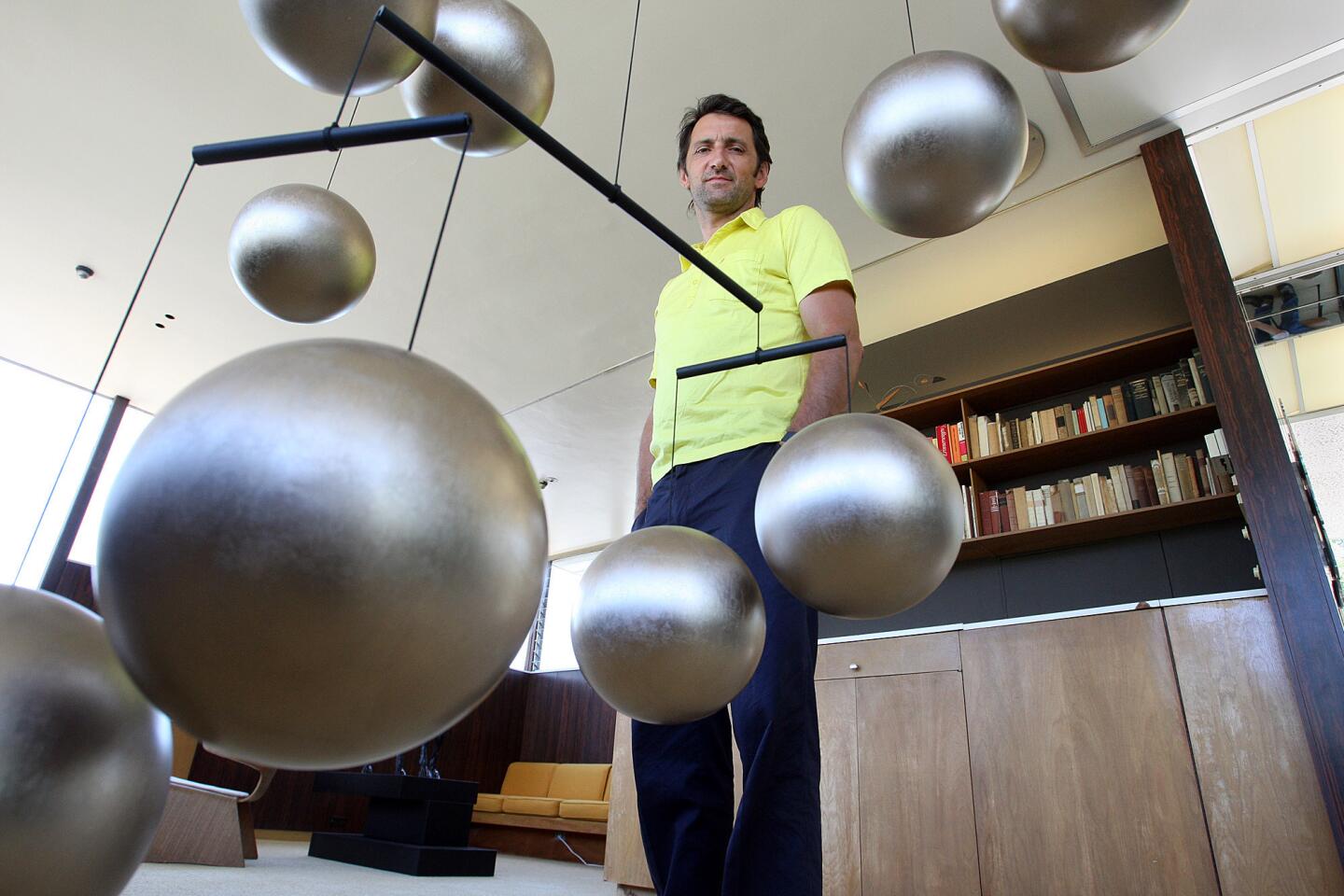
MORE: Artist Xavier Veilhan casts Richard Neutra’s VDL House in a new light (Gary Friedman / Los Angeles Times)
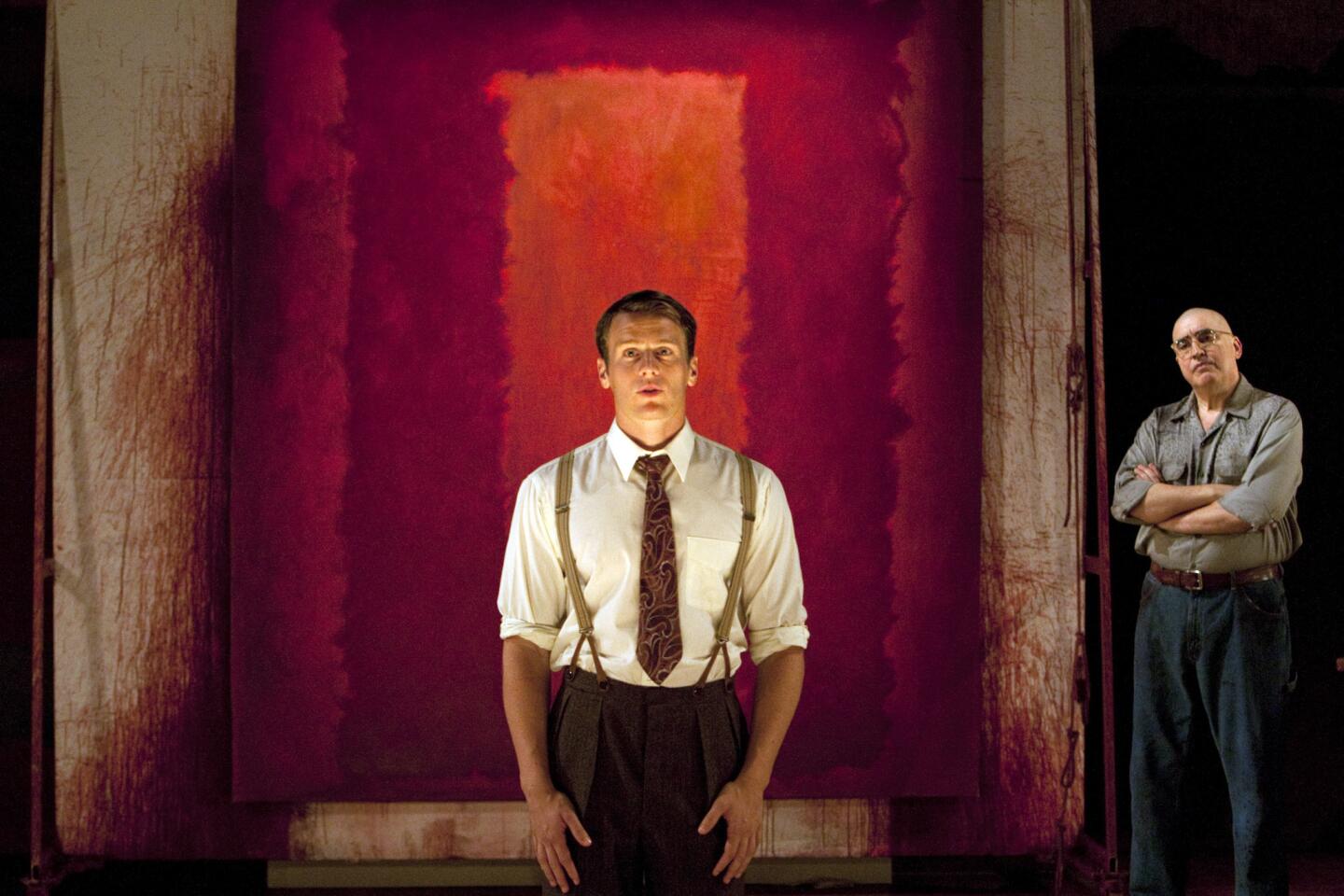
REVIEW: A blazing “Red” with Alfred Molina as Mark Rothko (Gina Ferazzi / Los Angeles Times)
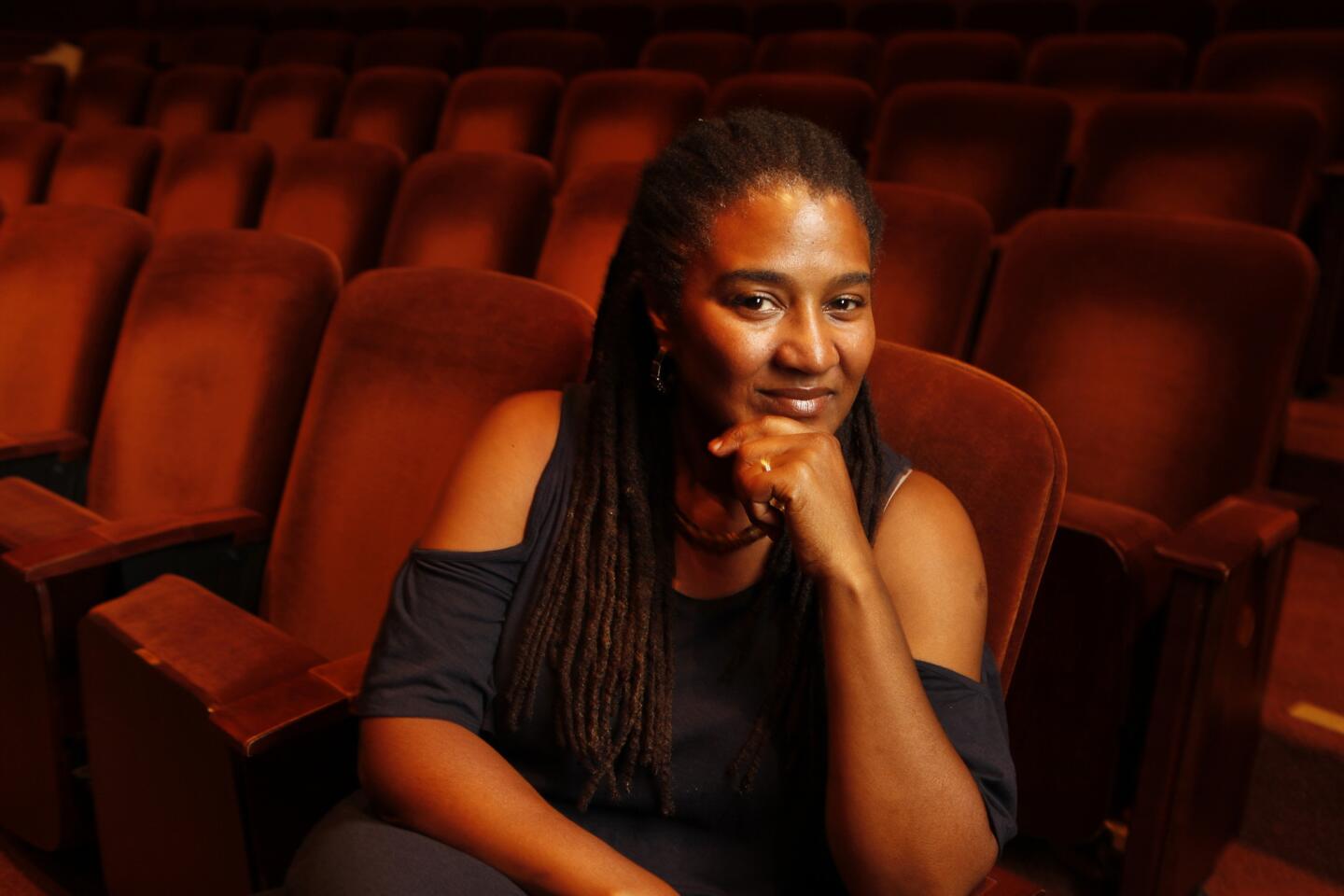
MORE: Lynn Nottage wants “Vera Stark” to be a conversation starter (Al Seib / Los Angeles Times)
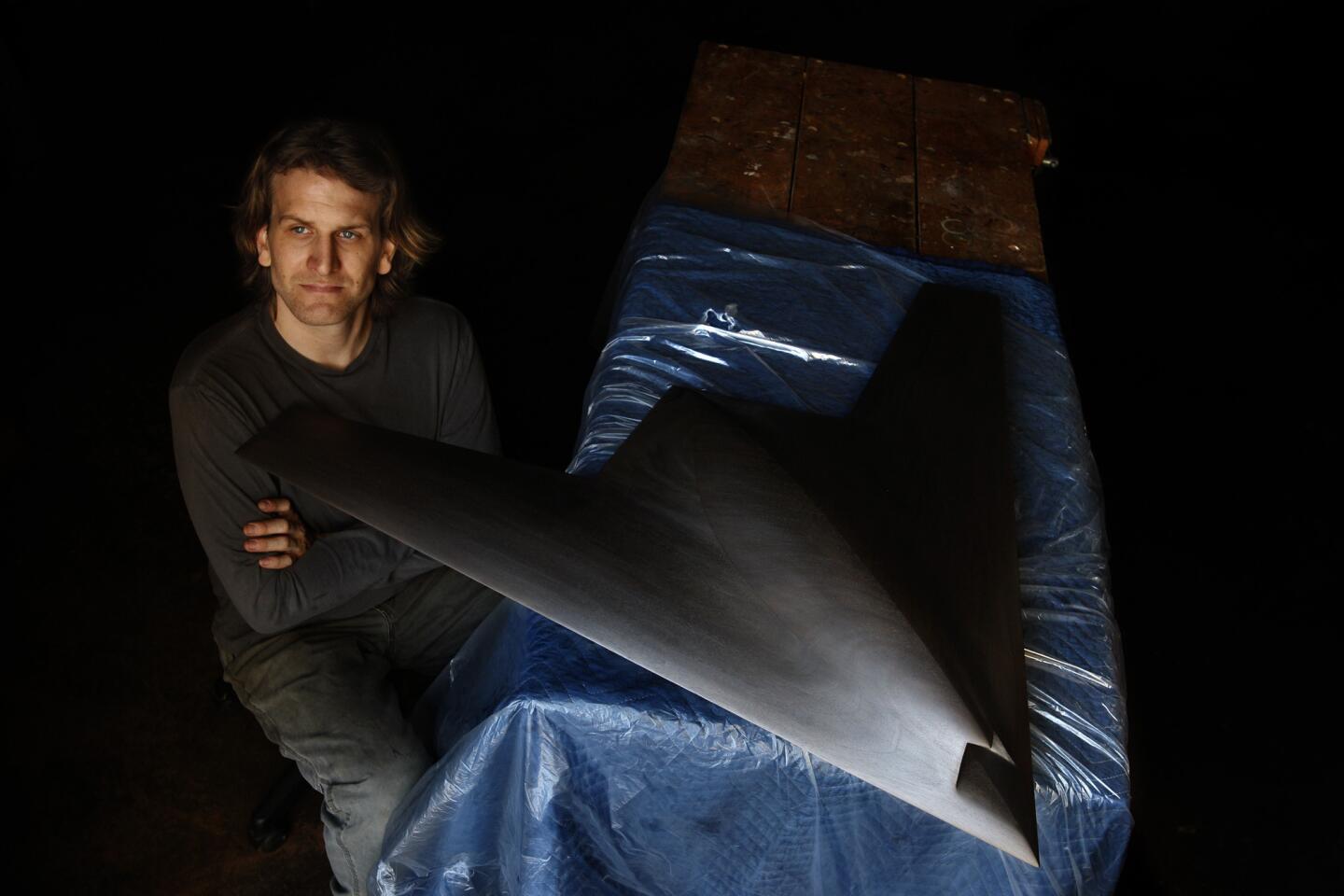
MORE: In the Studio: Ben Jackel uses broad ax strokes (Genaro Molina / Los Angeles Times)
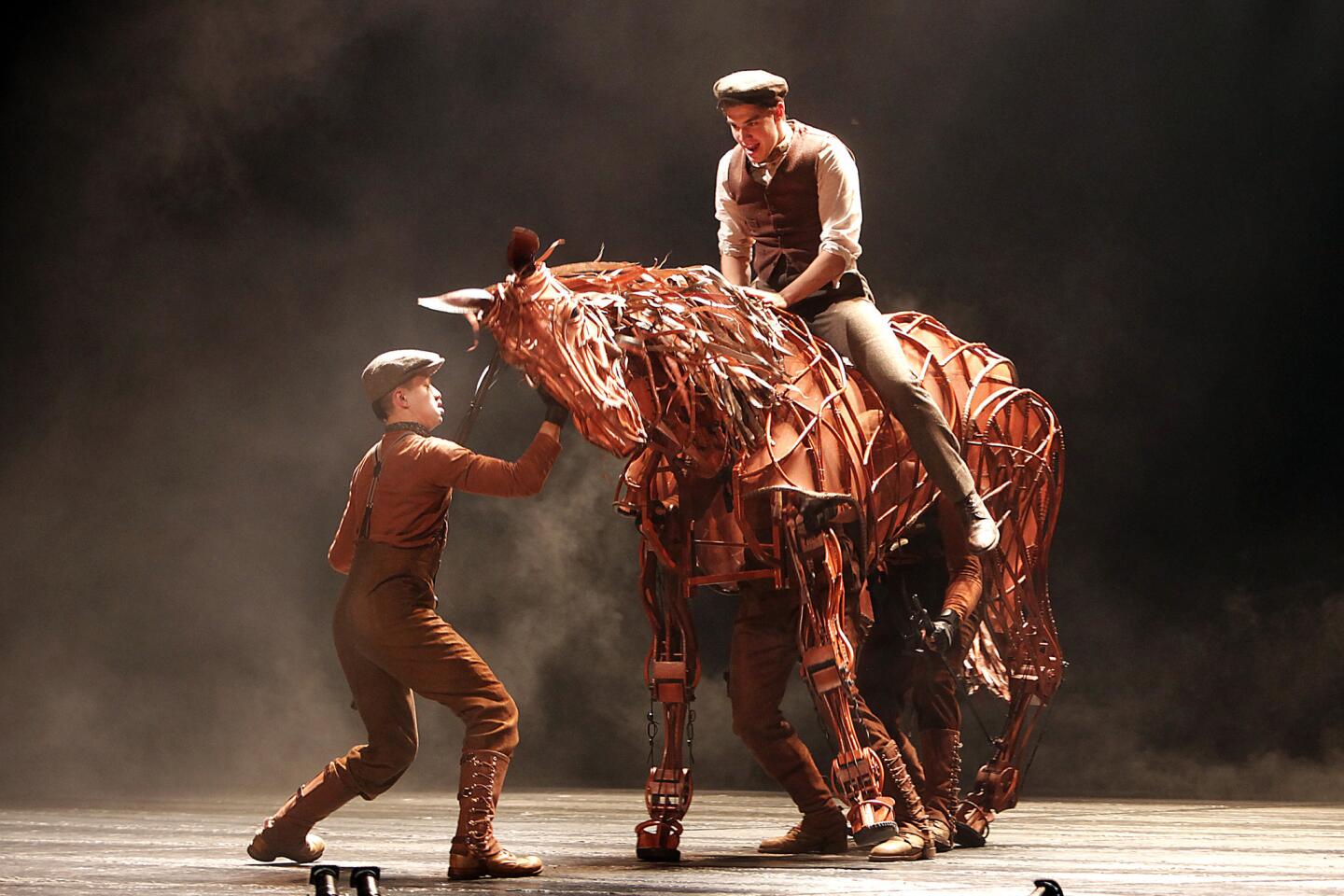
Review: “War Horse” at Ahmanson Theatre is a marvel of stagecraft | Photos (Kirk McKoy / Los Angeles Times)
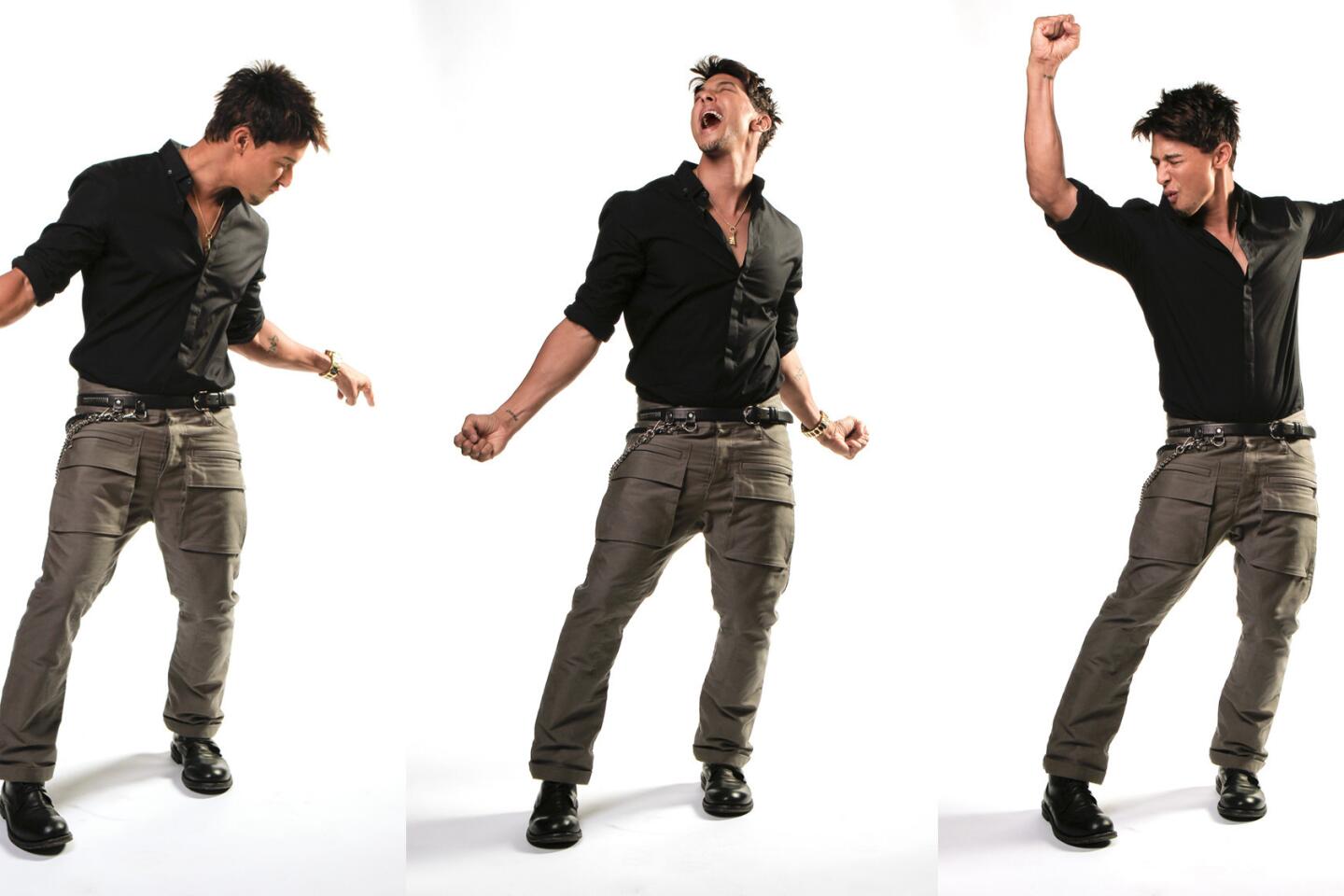
More: A pop choreographer with a busy schedule (Ricardo DeAratanha / Los Angeles Times)
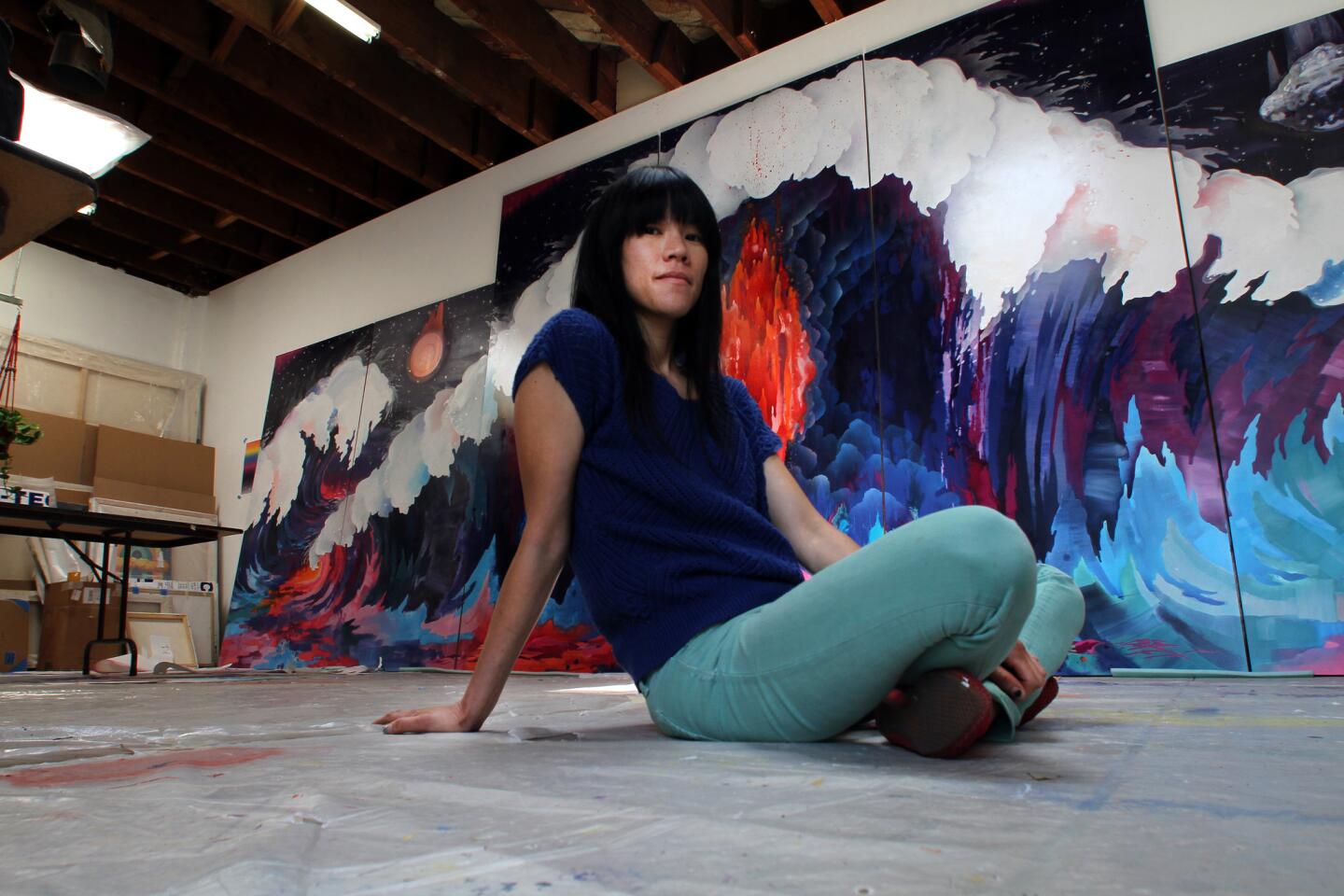
More: Hammer biennial lends artists a helping hand (Kirk McKoy / Los Angeles Times)

More: Plácido Domingo leads an uptempo life (Robert Gauthier / Los Angeles Times)
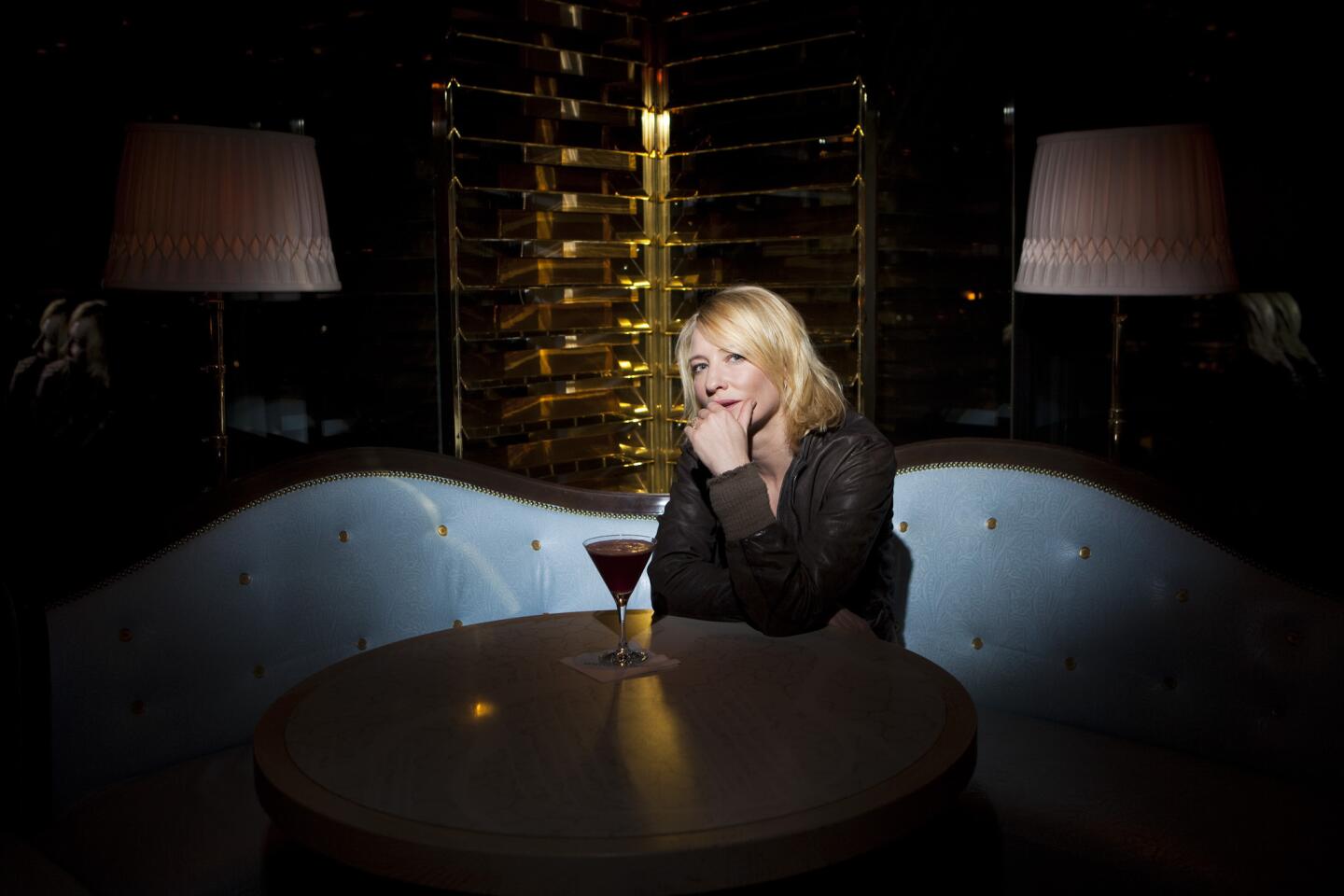
More: In the moment with Cate Blanchett (Jay L. Clendenin / Los Angeles Times)
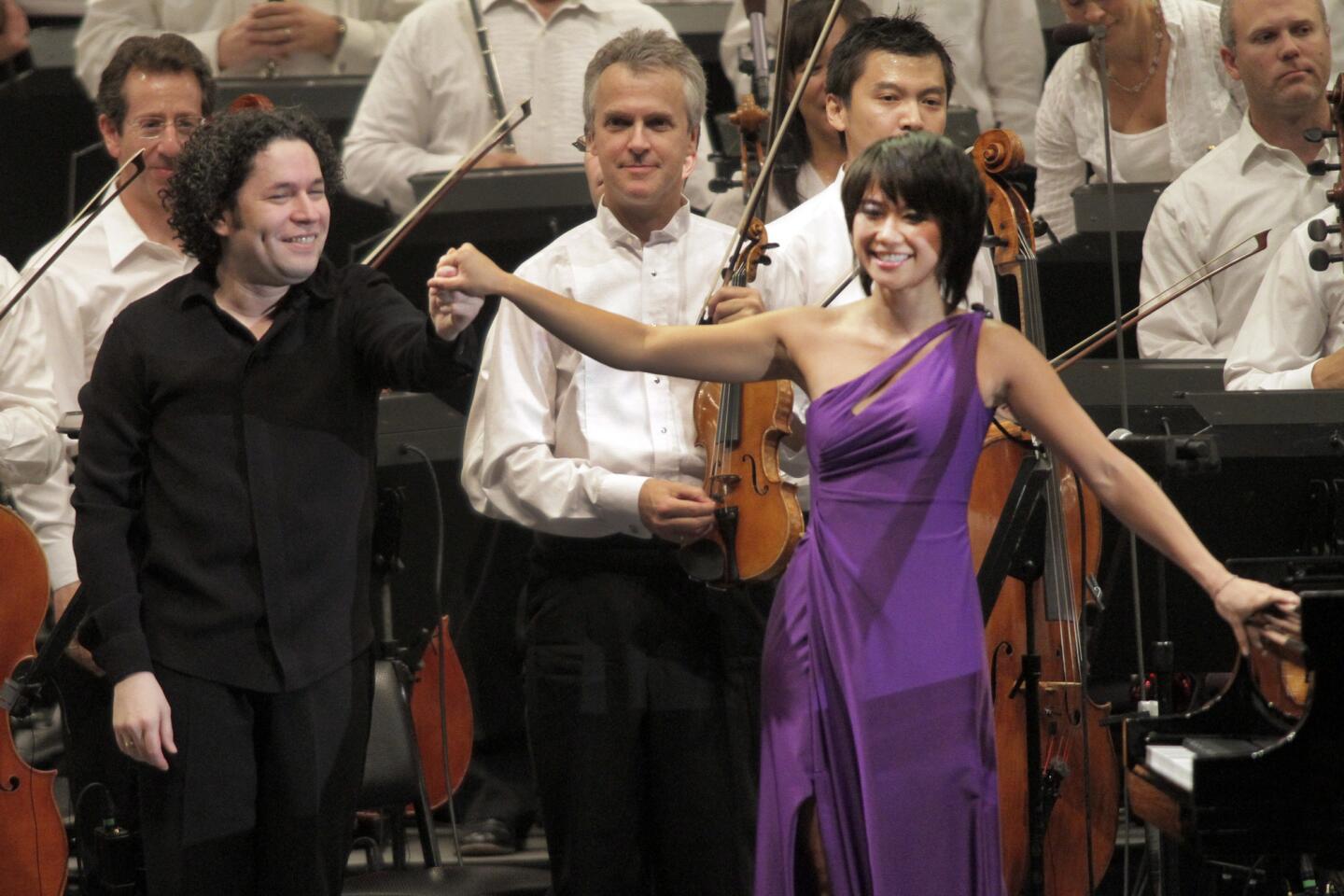
More: Yuja Wang turns heads at the Hollywood Bowl with a purple gown Photos (Lawrence K. Ho / Los Angeles Times)
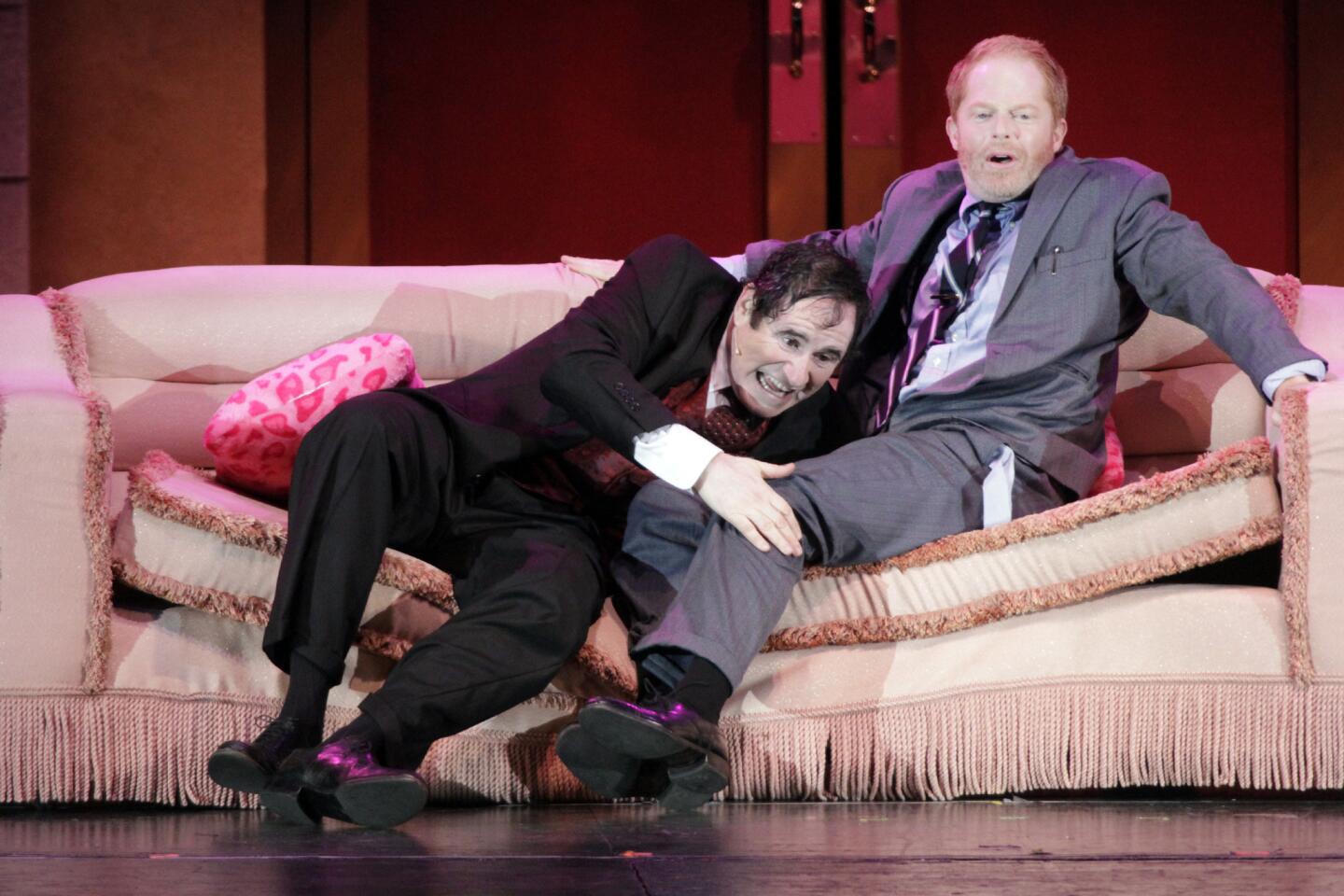
More: Jesse Tyler Ferguson takes on ‘The Producers’ at the Bowl | Review | Photos (Lawrence K. Ho / Los Angeles Times)

Review: LACMA’s new hunk ‘Levitated Mass’ has some substance | Critic’s Notebook: Art on an architectural scale at LACMA (Gina Ferazzi / Los Angeles Times)
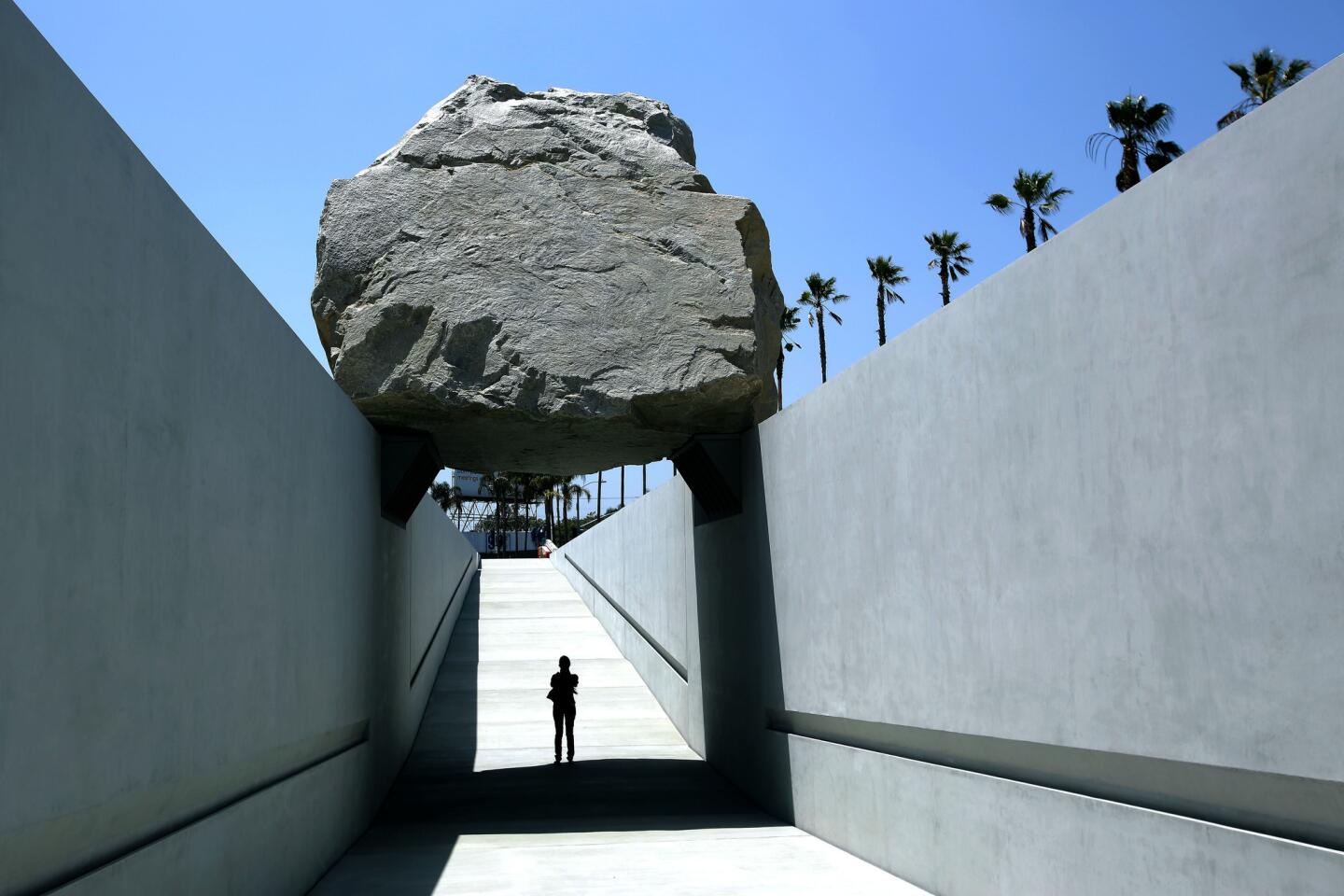
Review: LACMA’s new hunk ‘Levitated Mass’ has some substance | Critic’s Notebook: Art on an architectural scale at LACMA (Mel Melcon / Los Angeles Times)
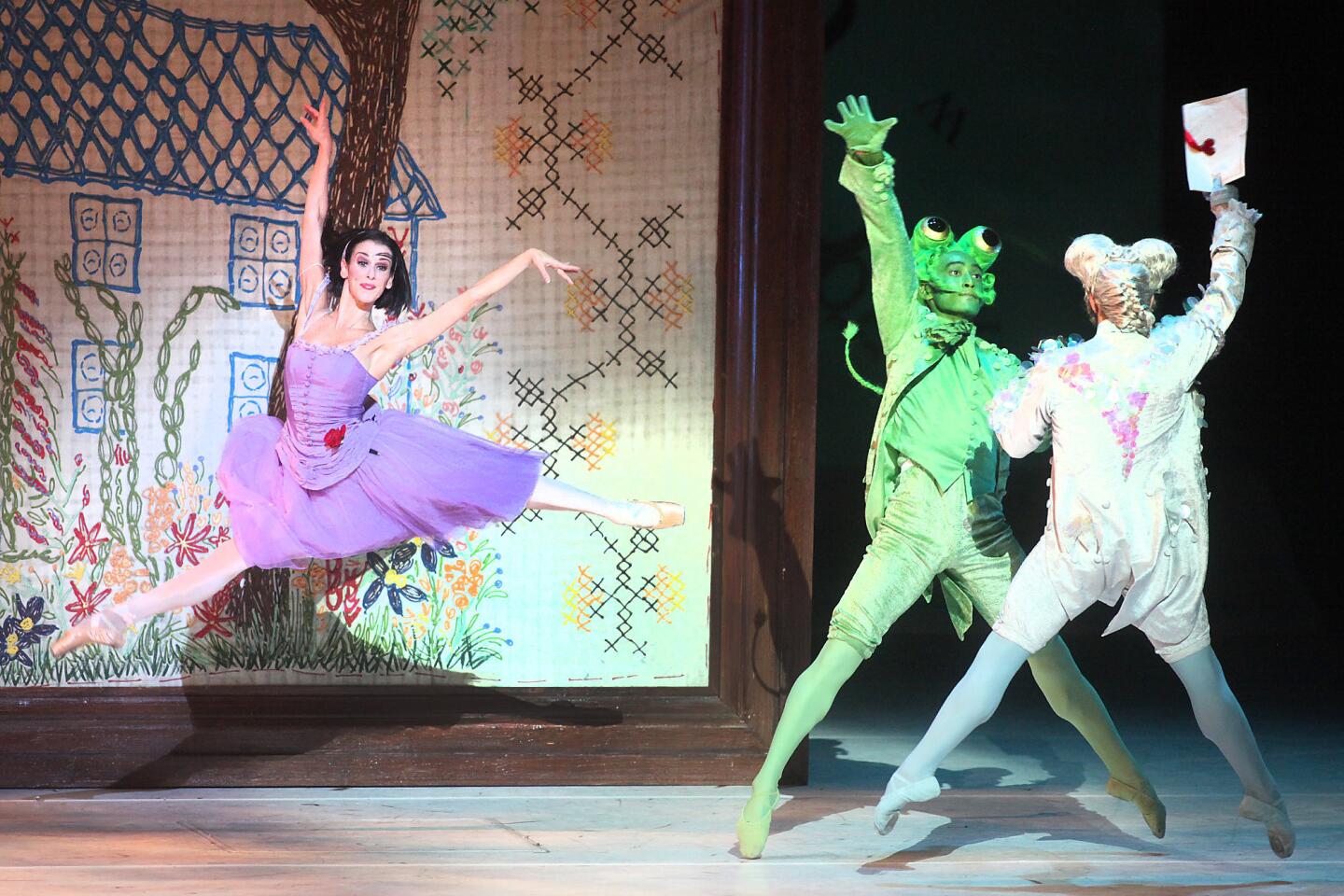
Review: Antic ‘Alice’s Adventures in Wonderland’ a scenic spectacle | More photos (Brian van der Brug / Los Angeles Times)
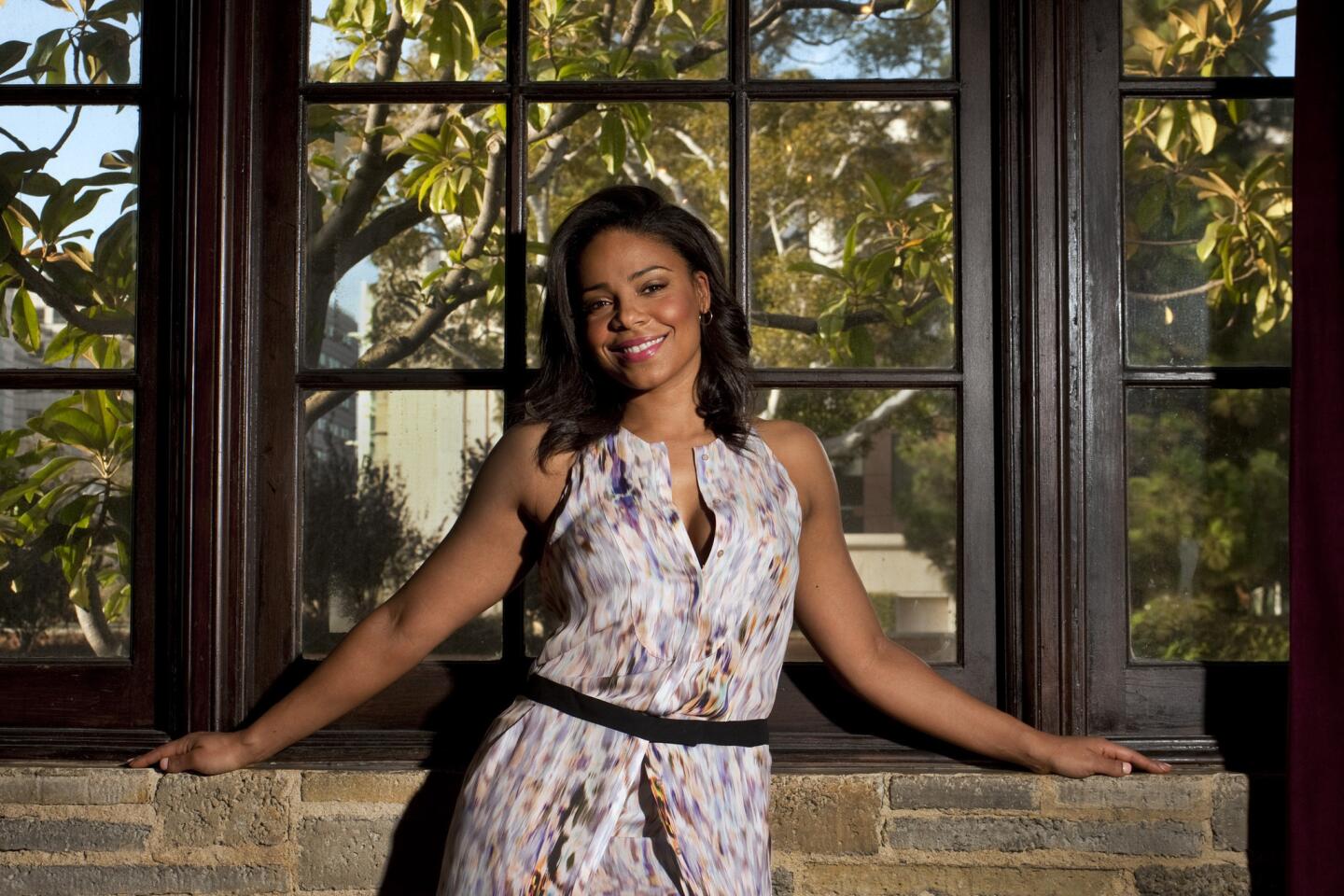
More: Q&A: Sanaa Lathan (Allen J. Schaben / Los Angeles Times)
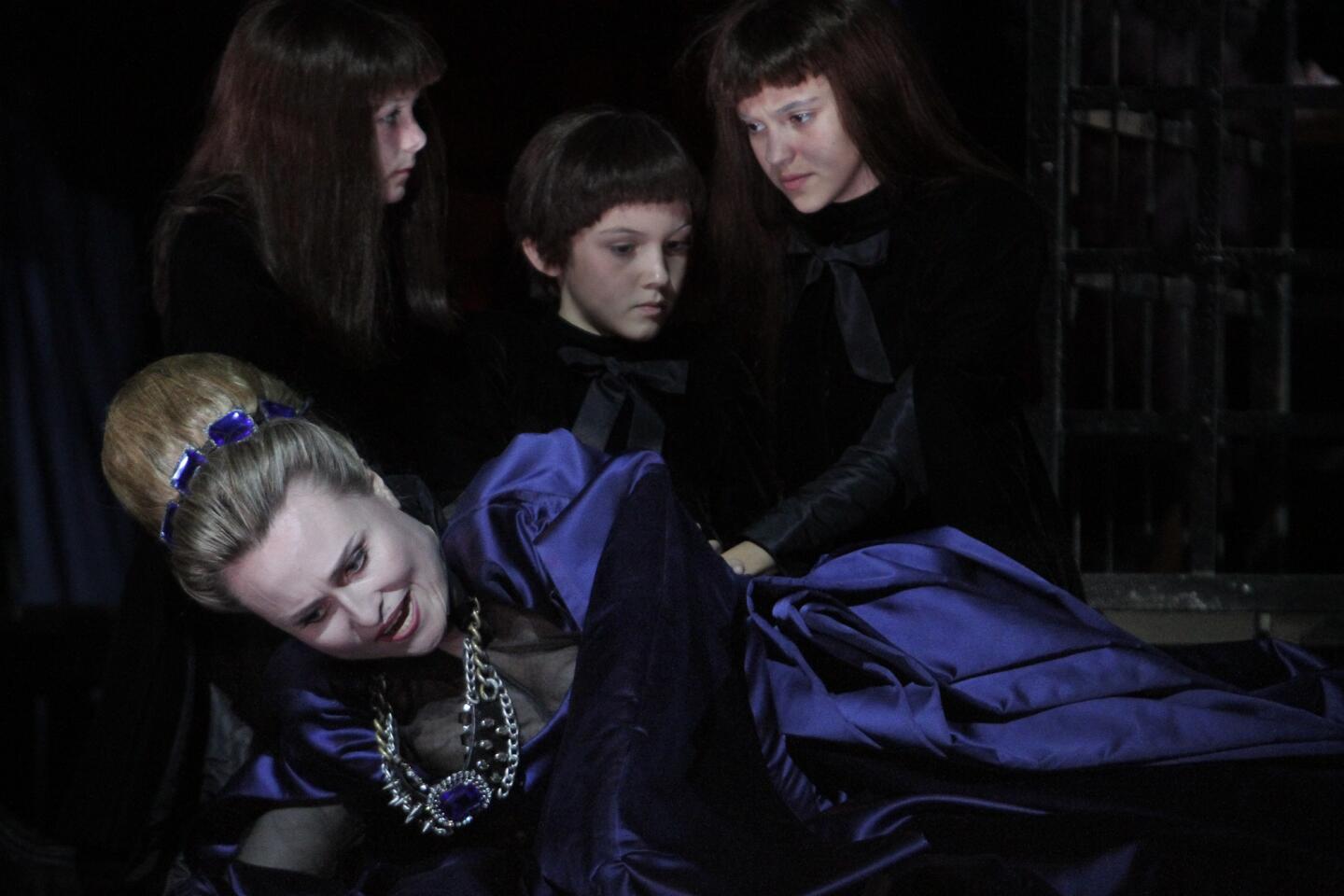
More: Los Angeles Opera takes fresh look at Verdi’s ‘The Two Foscari’ | Review (Lawrence K. Ho / Los Angeles Times)
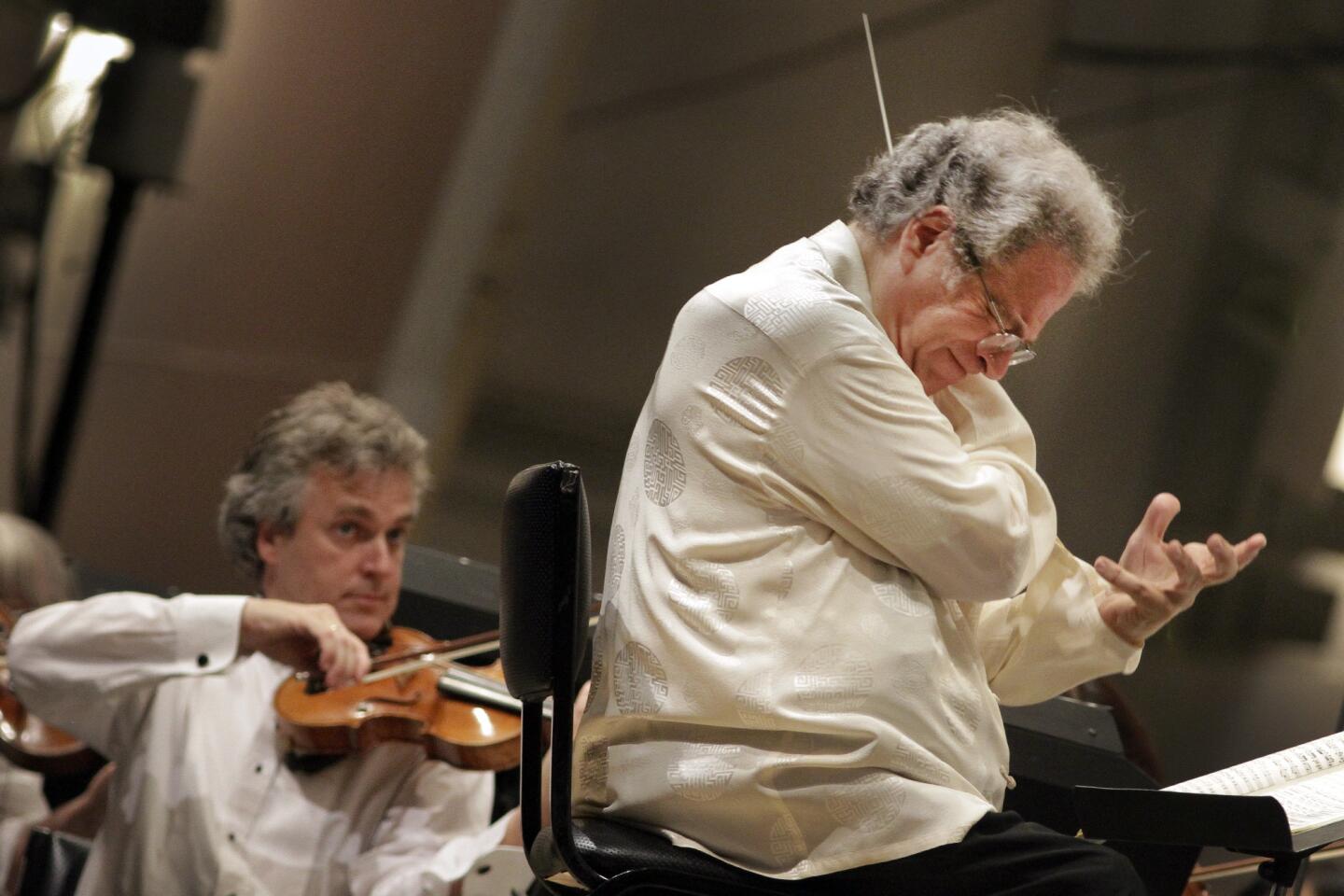
Review: Itzhak Perlman closes Hollywood Bowl classical season (Lawrence K. Ho / Los Angeles Times)
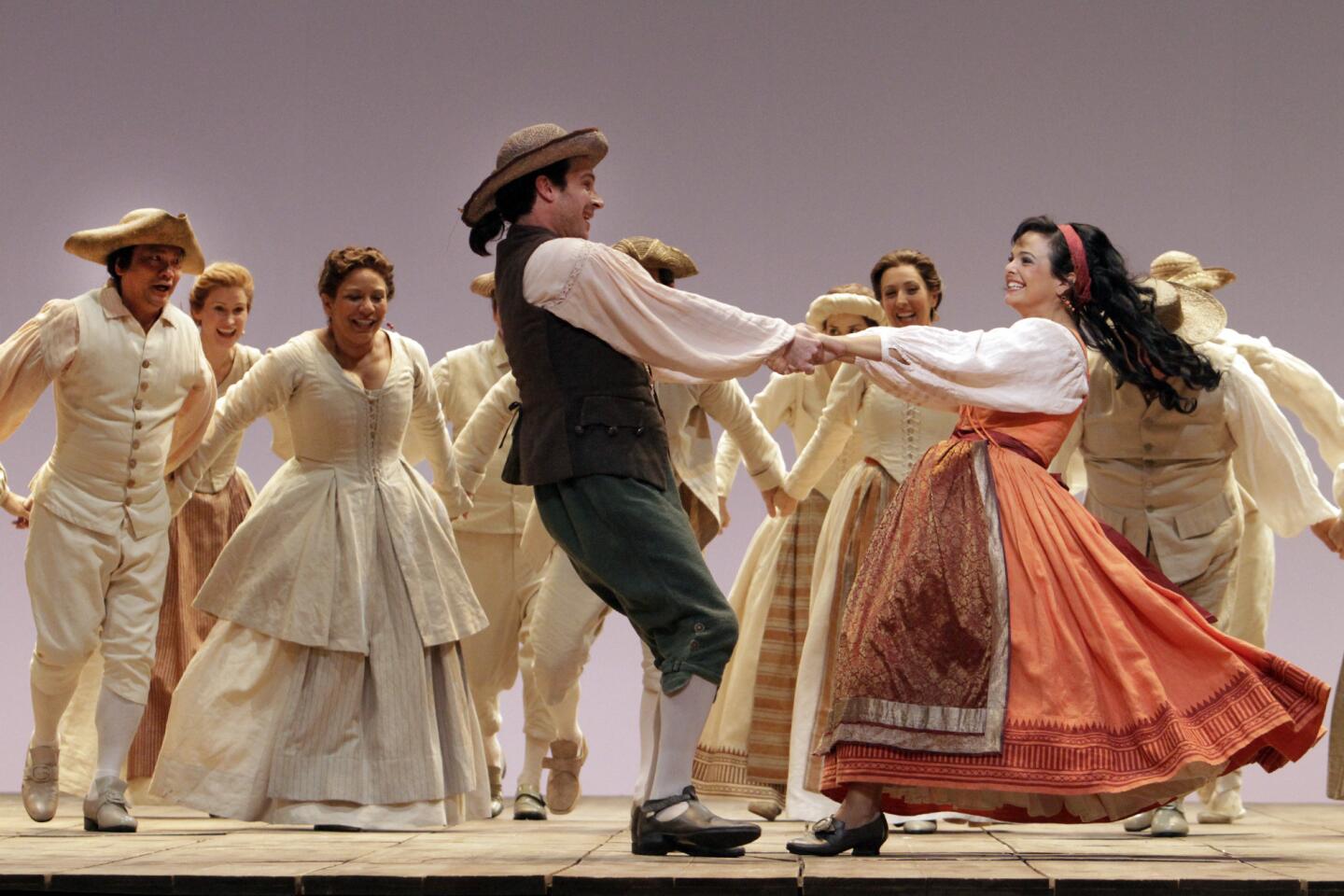
Review: L.A. Opera’s ‘Don Giovanni’ upholds tradition expertly | Photos (Lawrence K. Ho / Los Angeles Times)
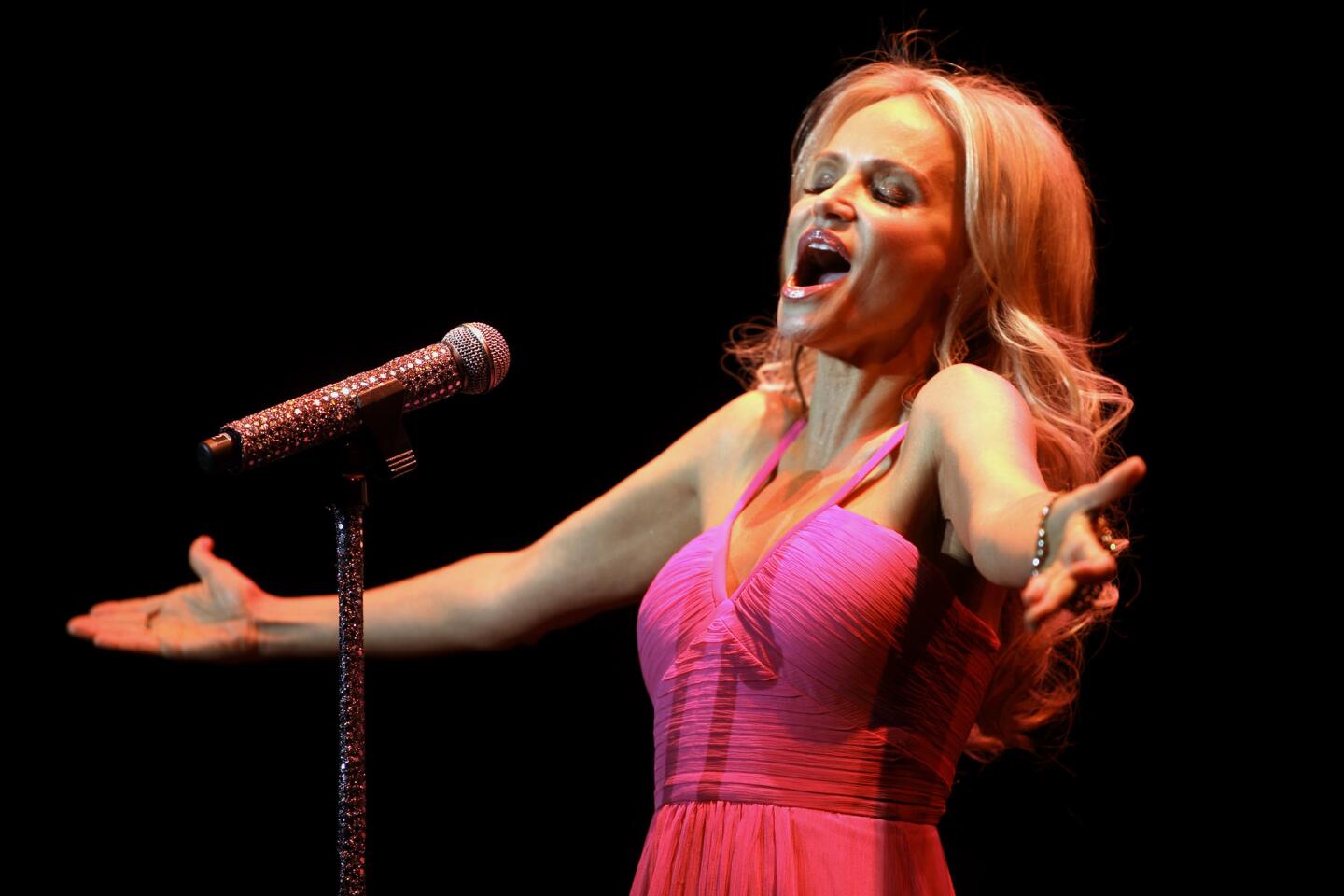
More: Kristin Chenoweth warms up for California concerts (Carolyn Cole / Los Angeles Times)
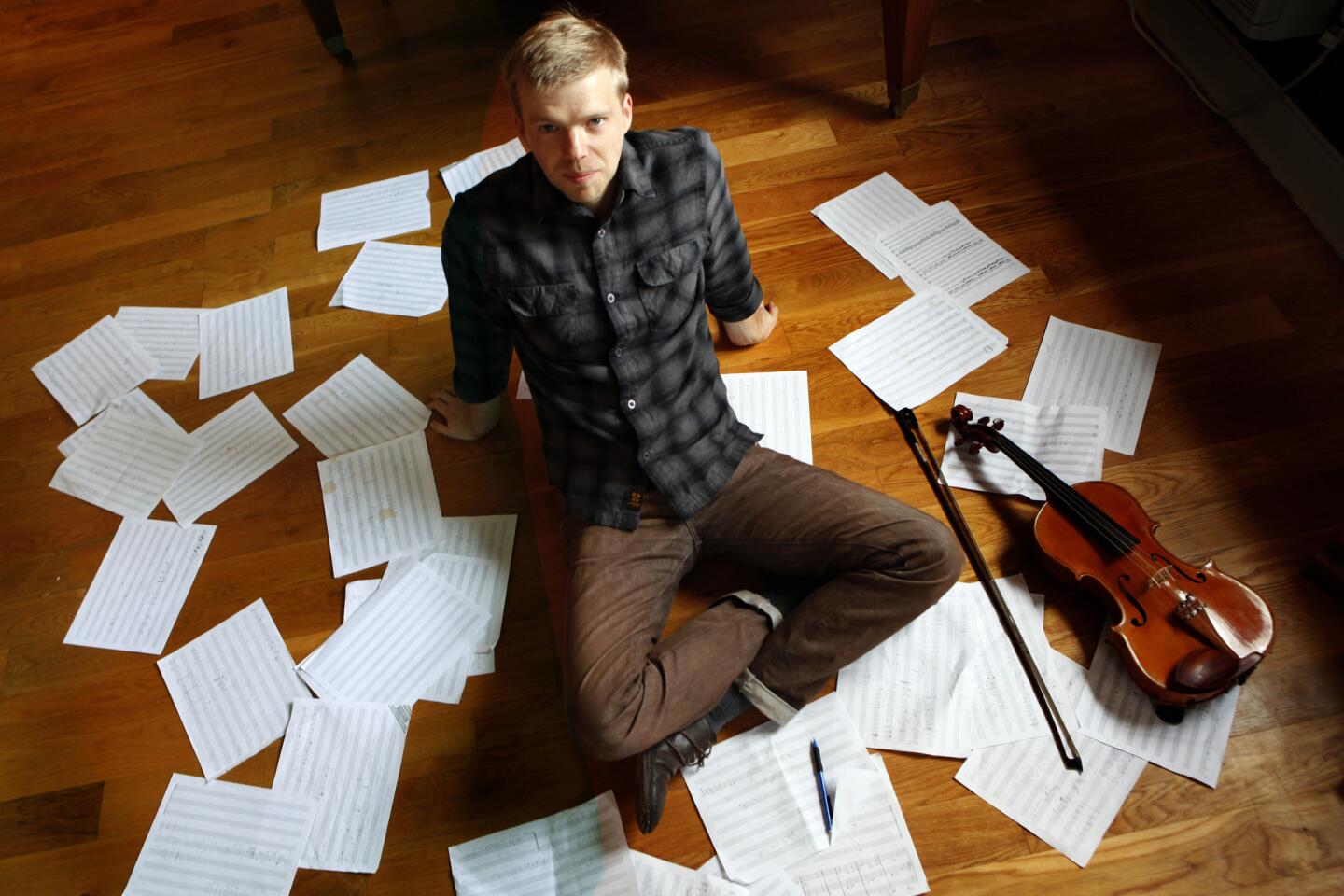
More: Composer Andrew Norman’s imagination has taken residence (Carolyn Cole / Los Angeles Times)
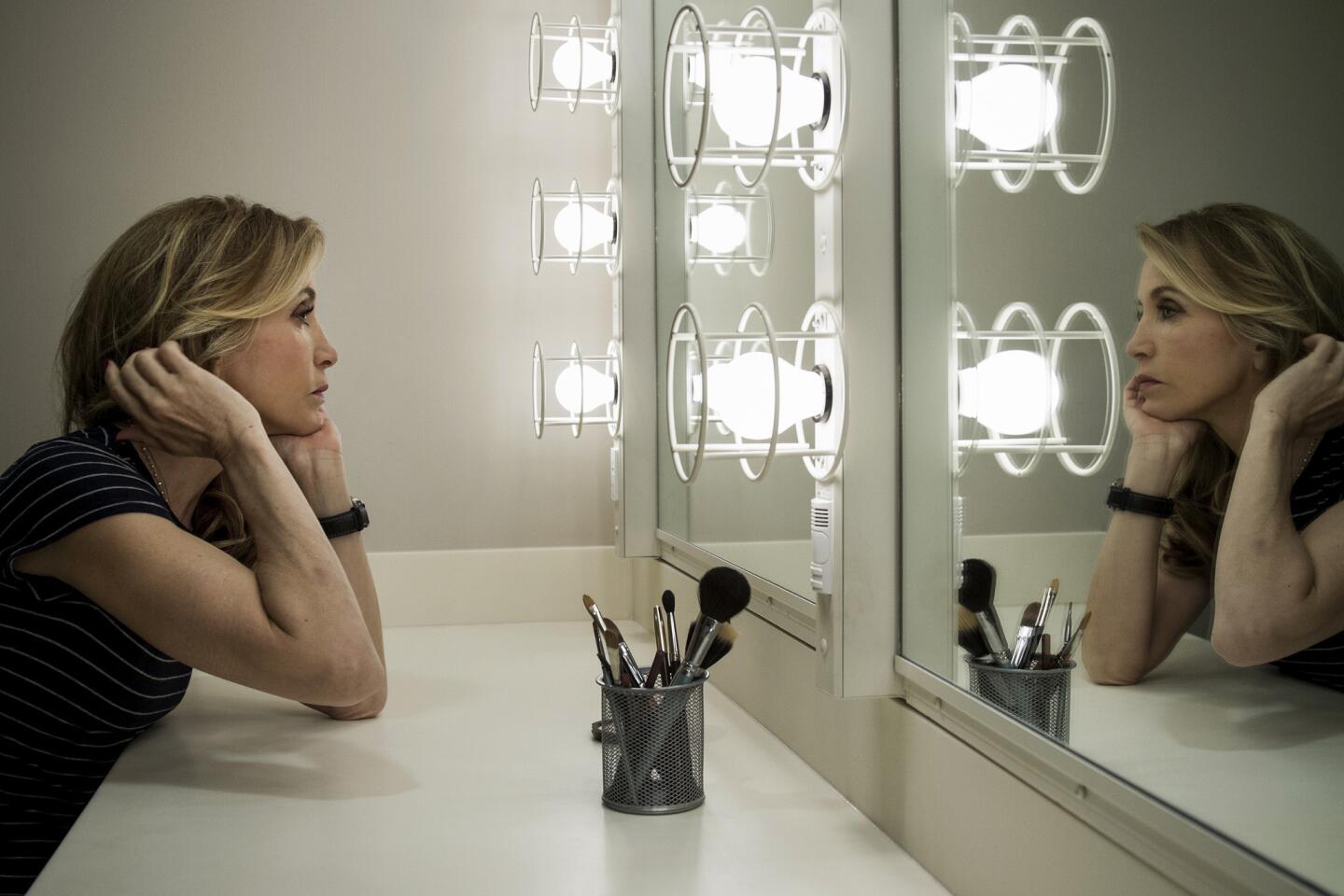
More: It’s no easy act for Felicity Huffman (Jay L. Clendenin / Los Angeles Times)
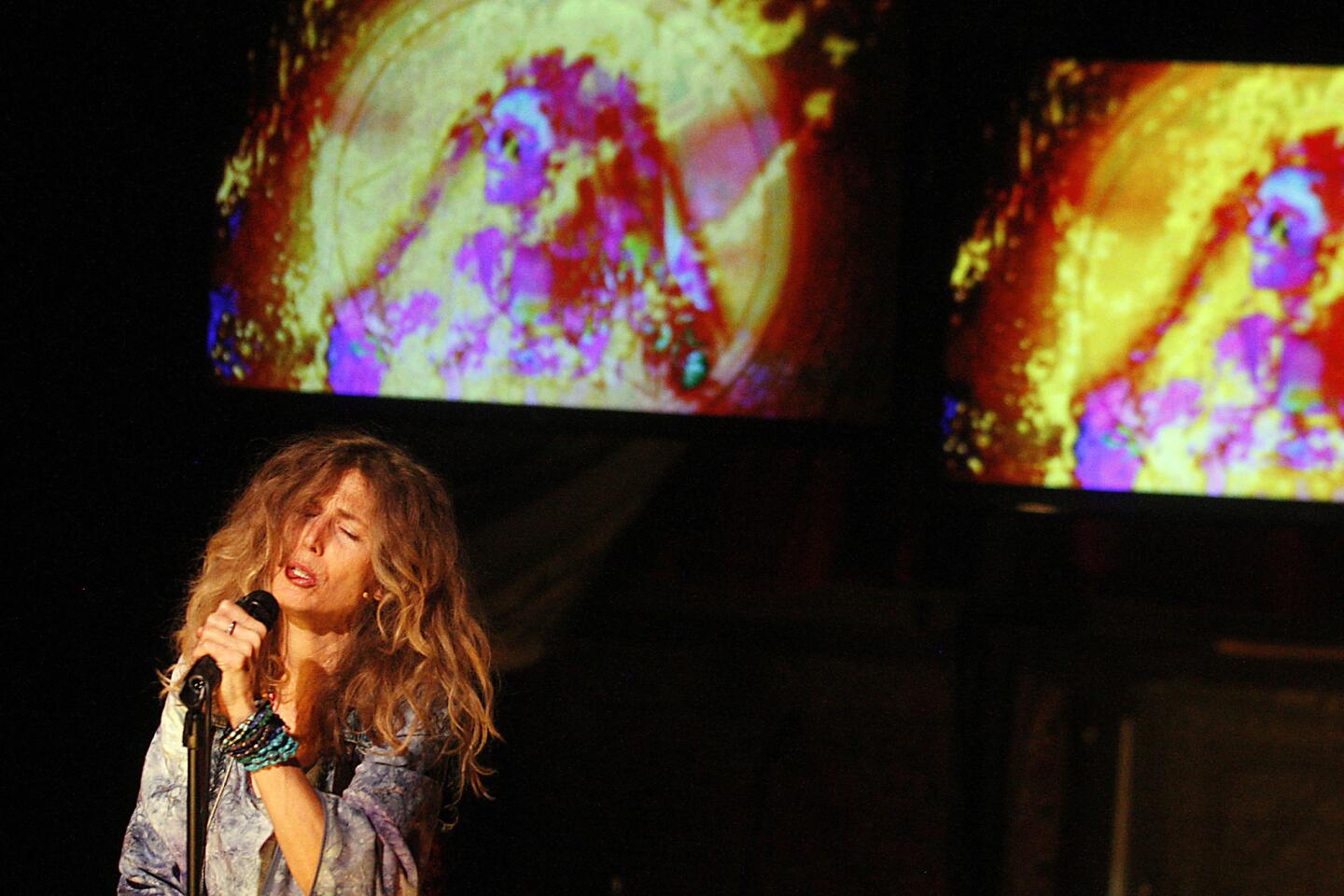
More: Sophie B. Hawkins channels Janis Joplin’s spirit in ‘Room 105’ (Luis Sinco / Los Angeles Times)
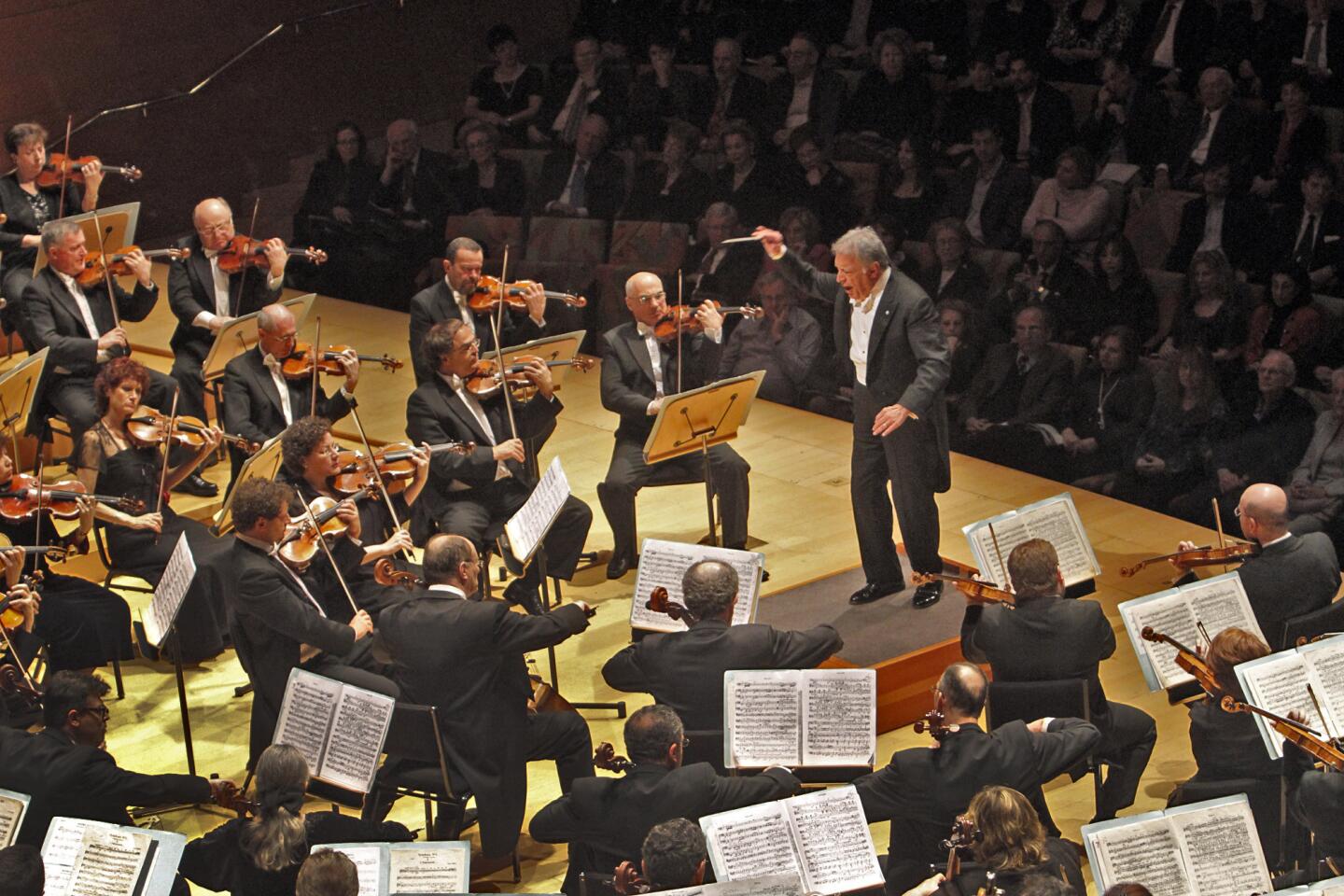
Review: Israel Philharmonic, rising above differences (Lawrence K. Ho / Los Angeles Times)
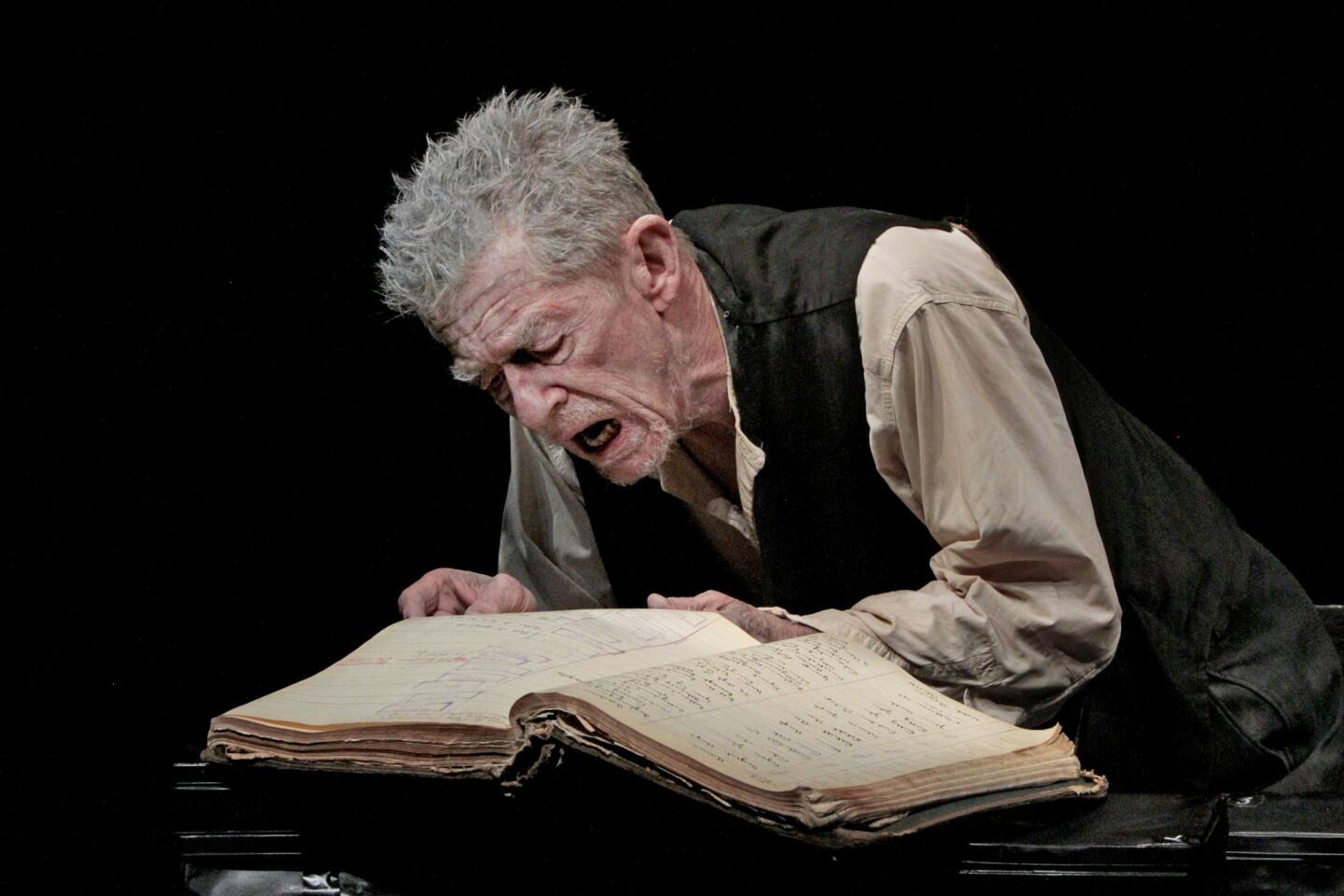
More: John Hurt plays back ‘interrupted pause’ of ‘Krapp’s Last Tape’ | Review (Anne Cusack / Los Angeles Times)
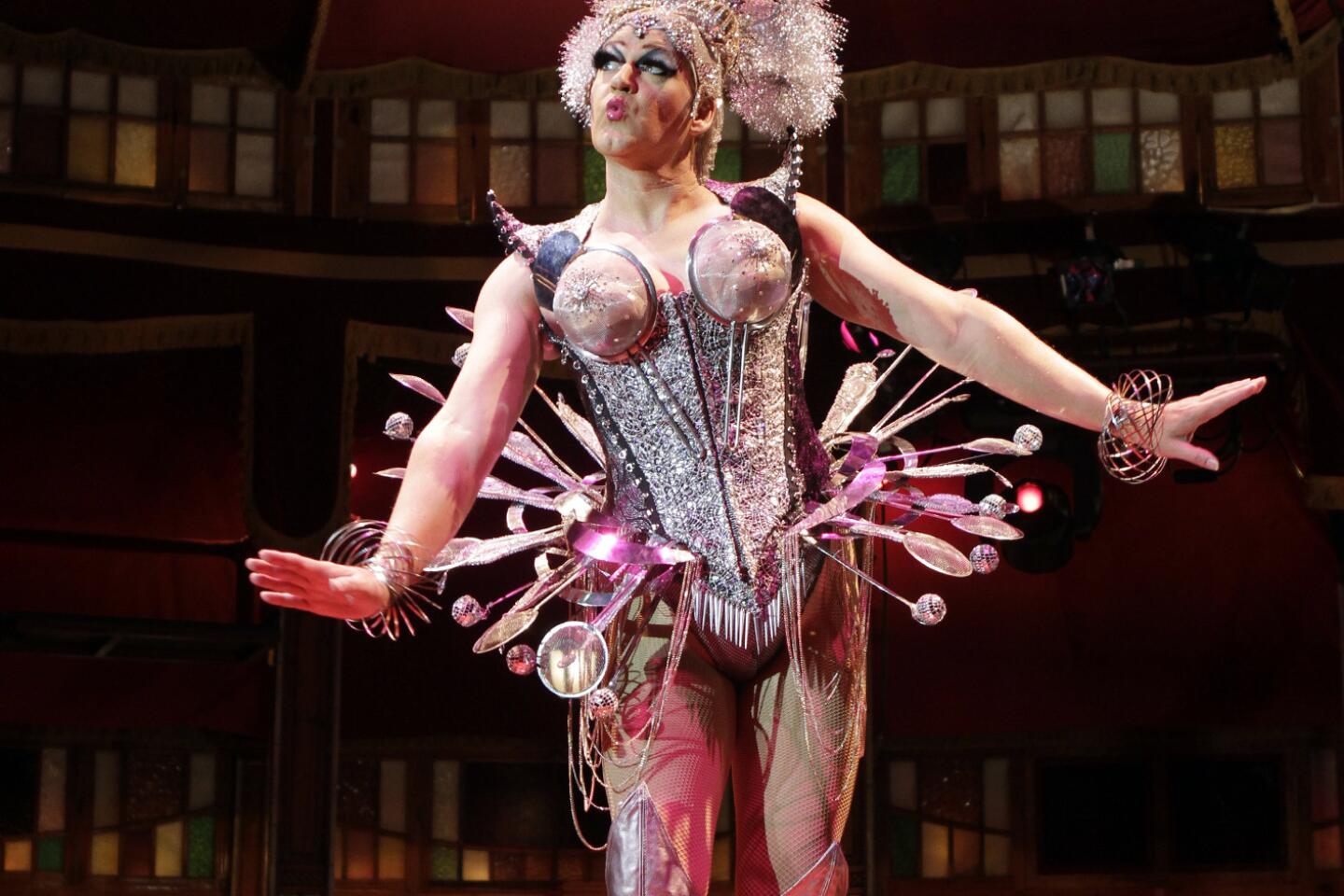
More: Teatro ZinZanni sets up a tent and fills it with elegant chaos (Lawrence K. Ho / Los Angeles Times)
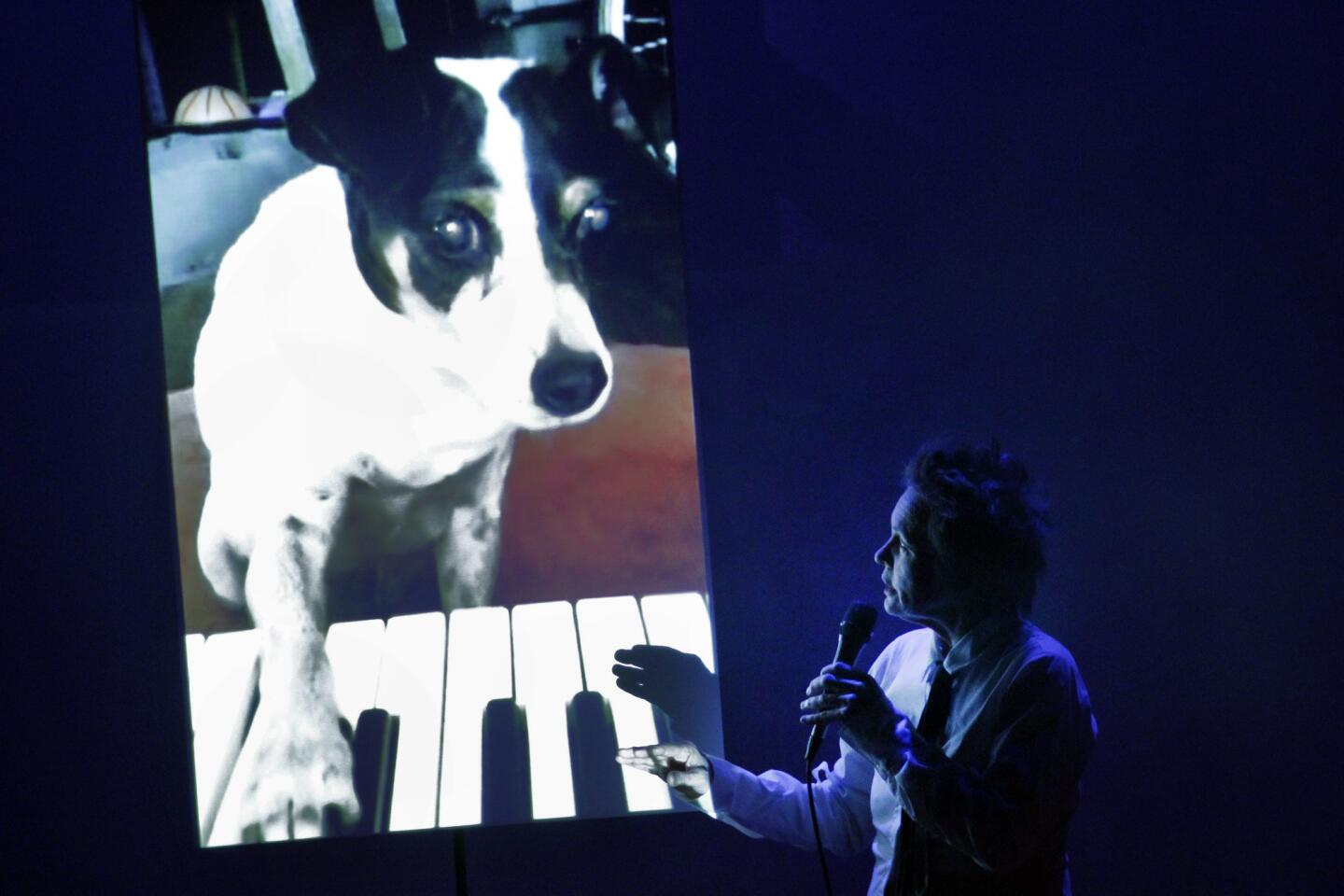
More: Performance review: A down-to-Earth ‘Dirtday!’ (Lawrence K. Ho / Los Angeles Times)
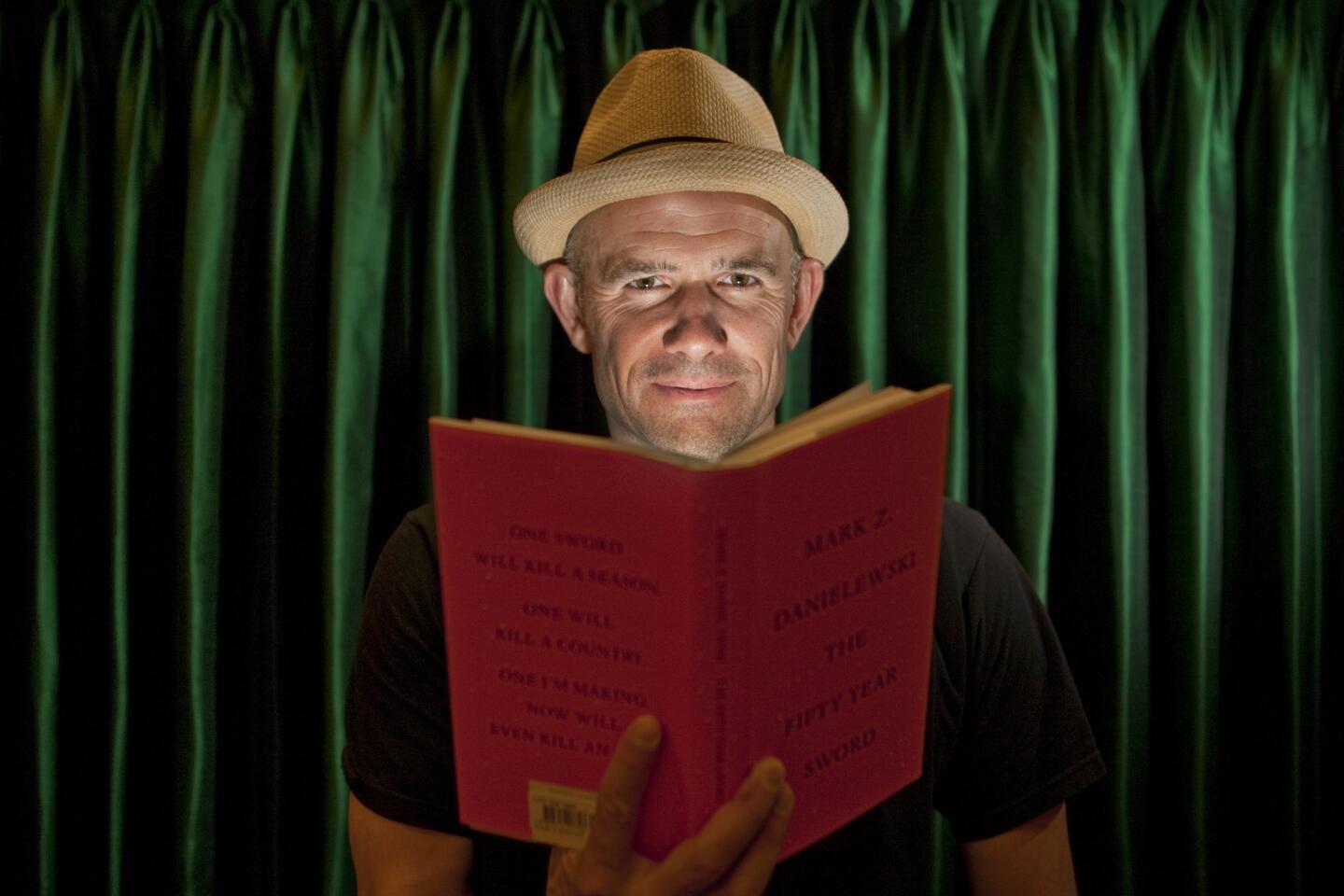
More: Mark Z. Danielewski: The writer as needle and thread (Allen J. Schaben / Los Angeles Times)
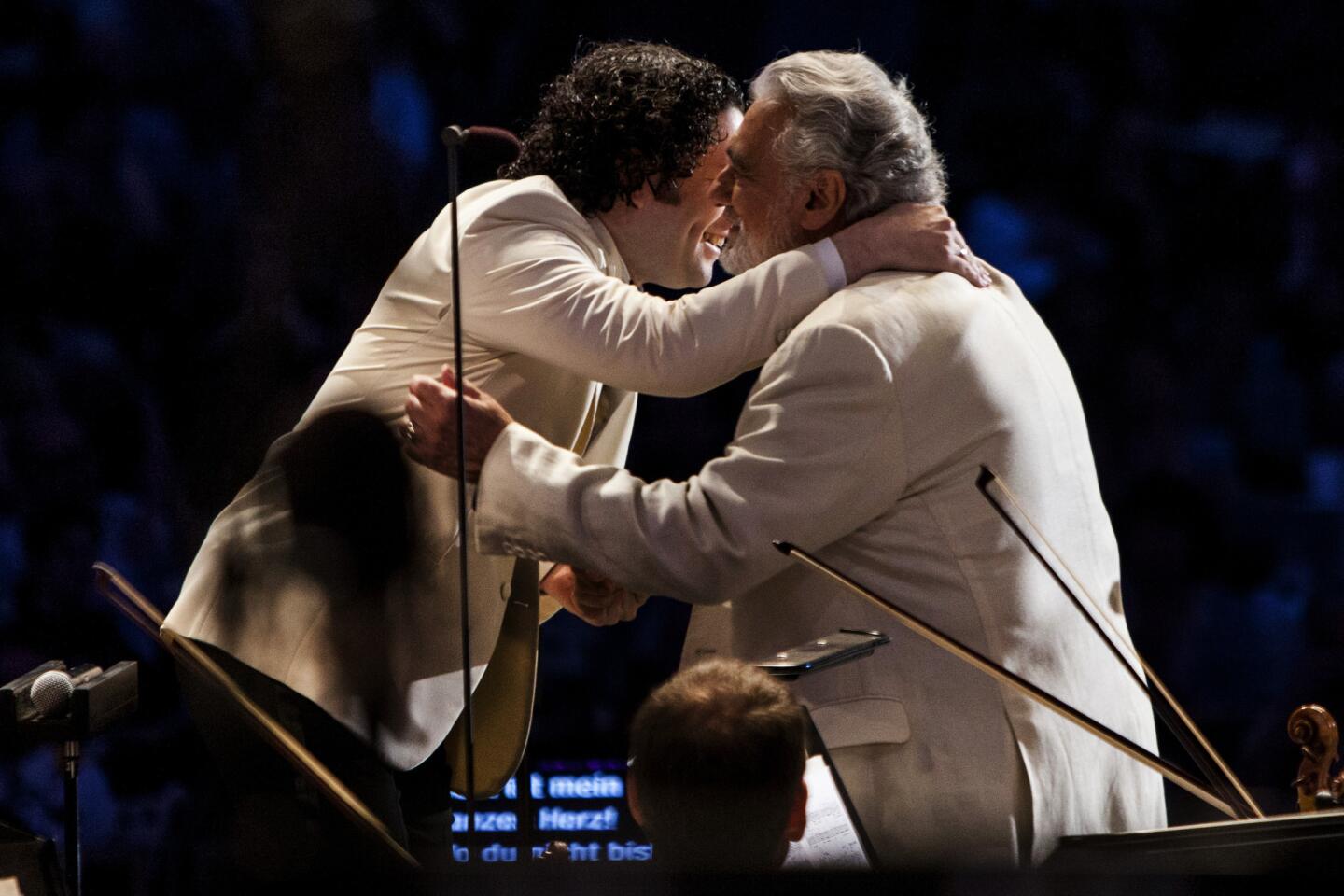
More: Gustavo Dudamel’s captivating theatrics serve the music | More photos (Jay L. Clendenin / Los Angeles Times)
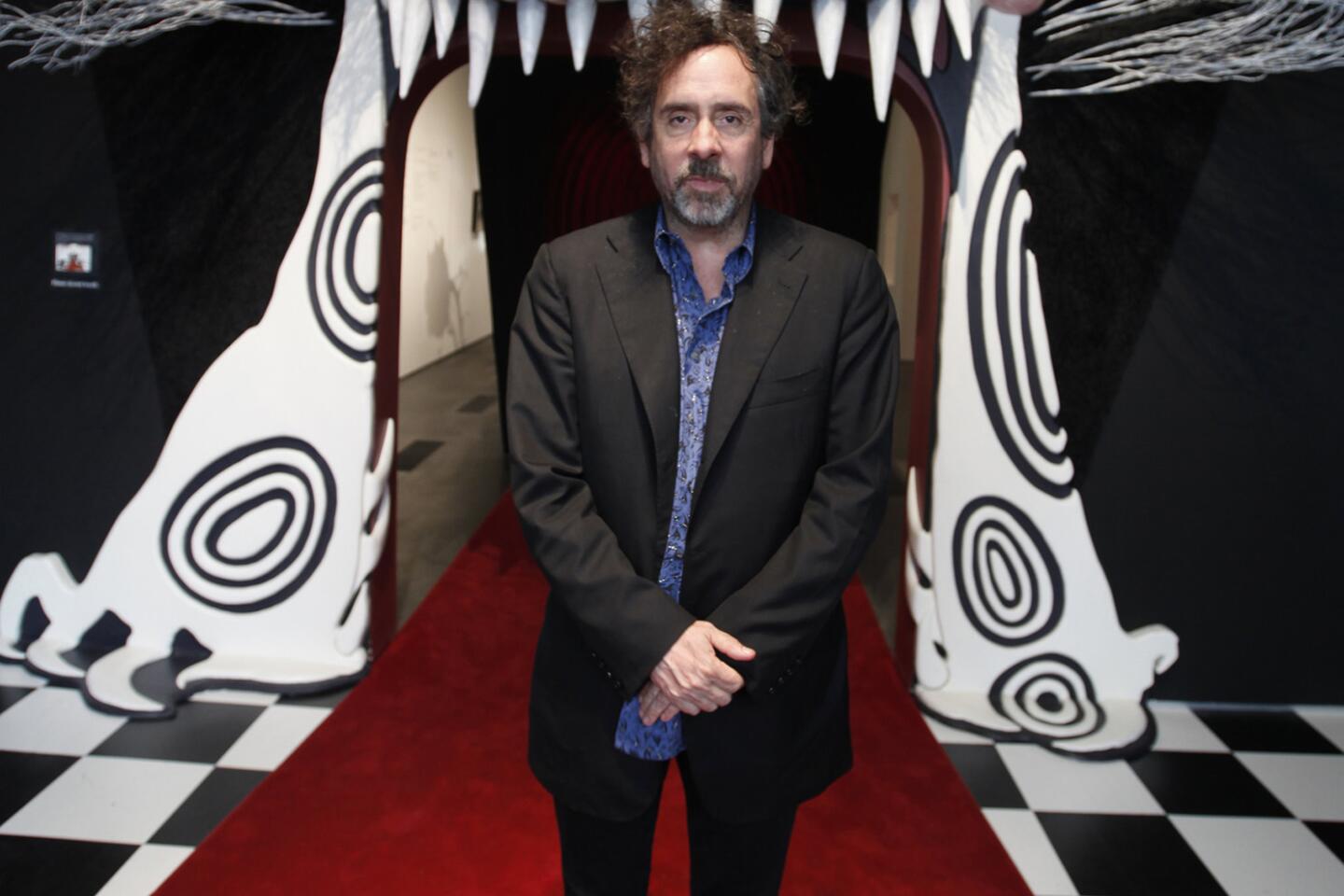
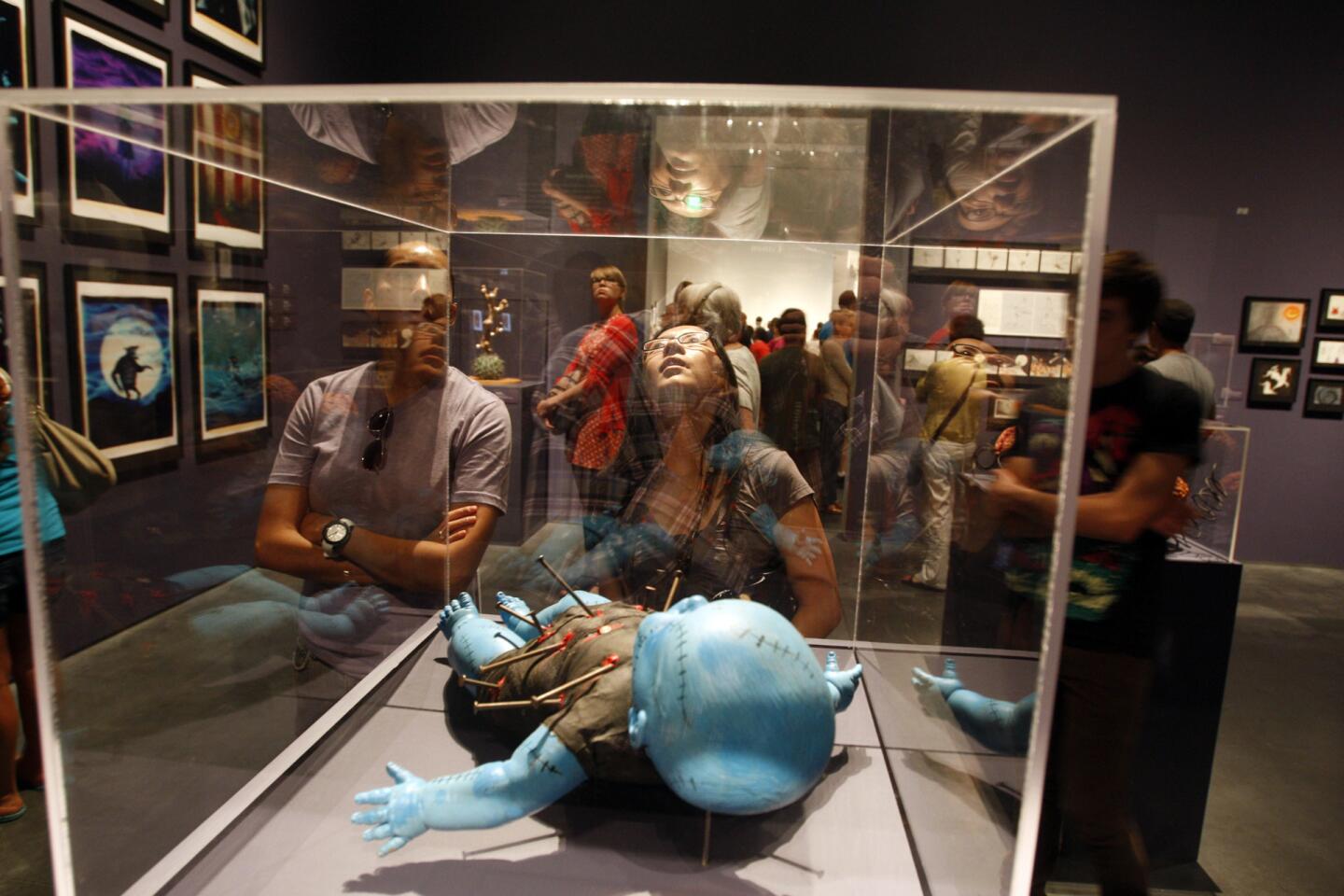
MORE: Doing the numbers on LACMA’s Tim Burton show (Gary Friedman / Los Angeles Times)
“Trudy and Max in Love,” a new play by Zoe Kazan now at South Coast Repertory, might sound like an innocent romantic frolic, but red roses and sweet nothings have little to do with it.
For the navel-gazing characters in Kazan’s well-observed yet ultimately facile drama, being “in love” is a condition so extreme it may require medical intervention. Sure, it feels great in the beginning, but like any addiction it robs you of yourself.
A study of an adulterous relationship, from its tentative beginnings to its unsurprising conclusion, the play has the contemporary sheen of a premium cable drama. Kazan, an actor and writer of famous lineage (her grandfather is that Kazan), is very good at etching the lineaments of a storybook urban milieu.
Like the Los Angeles of “Ruby Sparks,” the film she wrote and starred in, the Brooklyn of “Trudy and Max” is the kind of place where creative types gambol freely and rent isn’t the primary topic of conversation. But though this fable wrestles honestly and intelligently with the fiction of happy endings, the dramatic stakes are small for everyone but the self-absorbed title characters.
A 39-year-old novelist who moved from Los Angeles to bohemian Brooklyn, Max (seductively played by Michael Weston) is both attractive and suspiciously single. His background includes a glamorously miserable childhood and a model ex-girlfriend he’s desperately trying to keep at bay.
He first encounters Trudy (the captivating Aya Cash), a married author of young adult fiction still in her 20s, at a shared writers’ office, in which hipsters don’t have to be completely alone while cranking out prose. The two whisper flirtatious banter about coffee.
Trudy: You like this black?
Max: Cream, sugar.
Trudy: That’s disgusting.
Cupid strikes a direct hit, but the course of love will not run smoothly for all the obvious reasons. Kazan dramatizes each errant stage of this amorous journey as though it were the only one of its kind and not a confirmation of a predictable pattern.
Trudy loves her reporter husband, who’s away covering the presidential election, but feels as though she’s disappearing in a marriage that has lost some of its luster. Her fugitive romance with Max provides a perilous yet thrilling way for her to reclaim her identity. In what may be the worst line in the play, she tells her therapist, “Eros is the opposite of Thanatos. Lust conquers death.”
Blanche DuBois put it more memorably when she said of death that “the opposite is desire.” But then Blanche’s poetic eloquence is supported by the architecture of Tennessee Williams’ drama. Kazan’s philosophical musings, by contrast, give the sense of an author who is anxious that her play isn’t reaching high enough.
“Trudy and Max” showcases Kazan’s facility for capturing small moments that reveal both the psychology of her characters and the tenor of the times. But one of Kazan’s strong suits as a writer — her refusal to judge her characters — turns into a shortcoming when Trudy, a character every bit as narcissistic as Max, becomes the mouthpiece of the play’s wisdom at the end.
Chekhov didn’t judge his bungling characters either, but the ironies compiled in each of his plays speak more profoundly than any individual voice. That grander critical vision is conspicuously absent in Kazan’s work. No one, of course, expects a fledgling playwright to live up to the standard of the father of modern drama, but there’s a lesson here: In giving more weight to Trudy’s interior journey than to Max’s, Kazan winds up implicitly endorsing one problematic perspective over another. Max gets the last word but Trudy’s enlightenment gets pride of place.
The production, directed by Lila Neugebauer, is commendably inhabited by the leads. The relationship of Trudy and Max may be torturously drawn out, but Weston and Cash generate steady interest through the spontaneous combustion of their acting.
Cash’s pixieish charm invokes Kazan’s, which sets up a distracting autobiographical parallel. And she can seem more like a dilettante than a professional writer sweating a deadline. But the agony and the ecstasy of Trudy and Max’s bond is convincingly rendered, thanks in large part to the freedom of Weston’s performance and its enticing effect on Cash.
Celeste Den and Tate Ellington, the only other cast members, perform a multitude of supporting roles. Ellington is remarkably adept at differentiating his characters. Den’s comic flamboyance scores laughs but her portrayals blend together, and the outrageousness of her handling of Rochelle, a vixenish sharer of the writers’ space, makes a crucial plot point implausible.
Laura Jellinek’s multipurpose apartment/office set doesn’t concern itself with realistic trappings. Lap Chi Chu’s lighting, Cricket S. Myers’ sound design and Melanie Watnick’s costumes all contribute to the production’s cheap chic modern surface.
While watching “Trudy and Max in Love,” I kept having to remind myself that I was in a theater and not on my couch watching an HBO stab at high-minded reality television. The play, in sacrificing scope for texture, reveals that a playwriting talent can be at once precocious and immature.
“Trudy and Max in Love”
Where: South Coast Repertory, 655 Town Center Drive, Costa Mesa
When: 7:45 p.m. Tuesdays-Fridays, 2 and 7:45 p.m. Saturdays-Sundays. (Call for exceptions.) Ends Jan 26.
Tickets: $22-$72
Contact: (714) 708-5555 or https://www.scr.org
Running time: 2 hours, 15 minutes
More to Read
The biggest entertainment stories
Get our big stories about Hollywood, film, television, music, arts, culture and more right in your inbox as soon as they publish.
You may occasionally receive promotional content from the Los Angeles Times.
Charles McNulty is the theater critic of the Los Angeles Times. He received his doctorate in dramaturgy and dramatic criticism from the Yale School of Drama.






